2023 - 2024
The Institute of Masters of Wine
Fostering excellence, interaction, and learning across all sectors of the global wine community.
Established 1955
CHAIR’S REPORT
My report in the 2023 Annual Review focused on two words which, at that time, I believed were important to the IMW’s future - ‘resilience’ and ‘relevance’. I did not change my mind during the 12 months that followed and, as I write this, I remain convinced that focusing on these areas will enable the IMW to flourish in a global wine industry that was re-shaped by Covid.
This opinion is shared by my fellow Council Members and, importantly, our fellow Masters of Wine whose advice, ideas and comments we received before, during and after the information sessions held in May ahead of members indicating whether they would support an investigation into a tiered membership structure.
The high level of engagement and obvious commitment to the IMW during that period was invigorating, and has helped shape the IMW’s plan for the future, Strategy 2030. This is a product of all that Council and the IMW’s Senior Executive Team has heard over the past 18 months, from the IMW’s members as outlined above and from its Principal and Major Supporters who shared their ideas at our first in-person Supporter Summit in many years.
I sincerely hope that Strategy 2030 clearly communicates how the IMW will build its resilience and relevance over the next five years, and that it is adopted by the members at the September 2024 AGM.
Having spoken about the future, personal highlights of the last 12 months include awarding the IMW Winemakers’ Winemaker Award to Michael Brajkovich MW and the Lifetime Achievement Award to Jancis Robinson MW. This year I also had the pleasure of seeing many of our supporters in person; meeting with 17 Supporters at ProWein and interacting with Principal and Major Supporters at the Supporters Summit held at Château Pichon Baron. Closer to home, it was a joy to bring 41 MWs to South Africa for the largest and longest MW trip since 2019.
In addition, other reports in this review from our various Committee Chairs highlight their challenges, activities and achievements of the year in review. ‘Giving back’ has always been the cornerstone of the IMW, and so many MWs raise their hands every year to assist in delivering the IMW’s myriad activities. Thank you, so very much. Equally, thank you to Sarah Harrison, Gary Honeyman, Belinda Eaton and the Executive Team for how much they have achieved on behalf of the IMW and its members during 2023/24.
My thanks, too, to all on Council, especially my fellow Honorary Officers, incoming Chair Rod Smith MW and Honorary Treasurer Philip Harden MW. I wish you all the best for the coming years and want you to know that I will always be in your corner.
Finally, to the indefatigable Julian Gore-Booth, our Executive Director. Thank you for saying ‘yes’, and for your resilience.
Cathy van Zyl MW (South Africa)
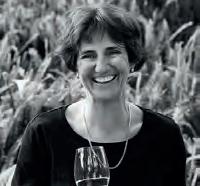
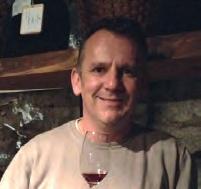
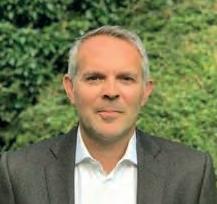
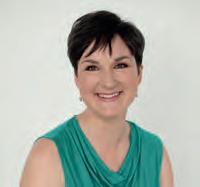
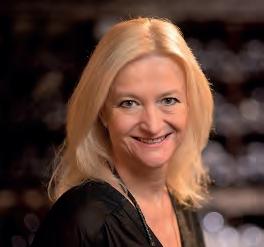
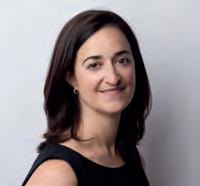
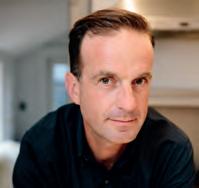
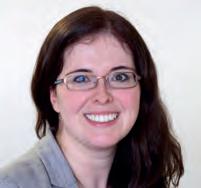

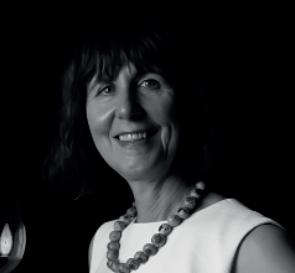
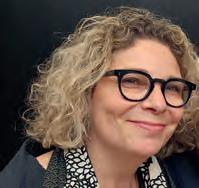
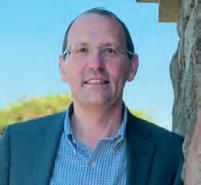
EX-OFFICIO MEMBERS
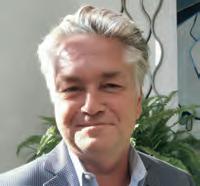
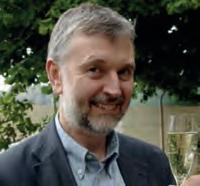
153 STAGE ONE STUDENTS
421 MASTERS OF WINE
COUNTRIES
367 STUDENTS From 40 countries
183 STAGE TWO STUDENTS
31 RP CANDIDATES* *On the 2023–2024 MW study programme
104 MW MENTORS
27 RP ADVISORS
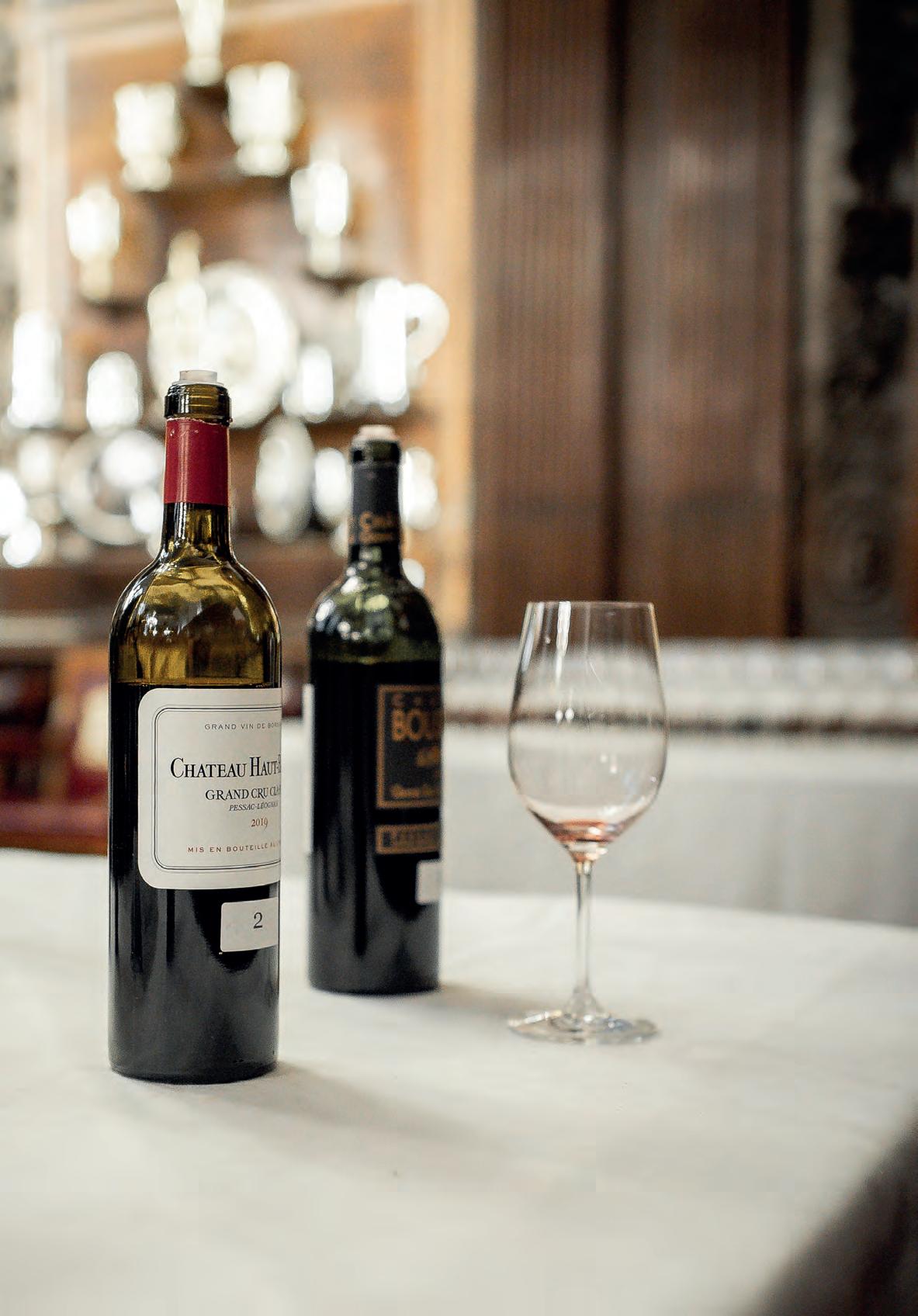
EXECUTIVE DIRECTOR’S REPORT
As I approach my second anniversary at the IMW I could not be prouder of the efforts of the membership and of the executive team. 2023/24 marks a year of peak delivery for the Institute with the demands and achievements of the largest ever student body sitting alongside another full year of events and trips. We have had much to celebrate over the course of the last 12 to 18 months and with applicant numbers remaining high for 2024/25, an engaged membership and a thriving Supporter community we have the ingredients for a successful future.
That said, the financial and human resource challenges faced by the Institute did not miraculously disappear. After a successful symposium and with the help of our Supporters we did achieve a small financial surplus for the second year running, but there is a long way to go before we are out of the woods. The combined effects of Brexit, Covid and inflation continue to work against us and there have been no easy wins along the way.
For the study programme, 2023/24 was a record-breaking year: 161 applications for the programme, 367 students from 40 countries, 145 sitting the exam… these are impressive numbers and are backed up by the frankly stupendous delivery of 7 seminars, 60 course days, nine MW and student trips, eight events, participation at two expos, and the return of the Winemakers’ Winemaker Award and the Lifetime Achievement Award. The task ahead is to match this peak delivery with improved financial performance so that we can generate annual surpluses that build back the Institute’s reserves and turn our attention to building an endowment of a size that can make a genuine contribution to our mission.
Strategy 2030 provides a roadmap towards a more sustainable future for the IMW. Within that a degree of change is inevitable and, whilst managing change is never easy, I hope that we can find a way to derive additional value from the IMW’s obvious assets and more firmly position the Institute and its members as leaders and influencers in the world of wine. It’s a lot to ask, but with information, imagination and positivity I am sure we can make it happen.
Thanks as always to the amazing executive team, to the MWs working on the study programme and exam, to those on committees, to Council and to the Honorary Officers who always go the extra mile for the Institute, their service is outstanding. On which subject, particular thanks to Cathy van Zyl MW, who will always be my first IMW Chair and whose dedication, patience and care knows no bounds.
Julian Gore-Booth (UK)
EXECUTIVE TEAM 2023–2024
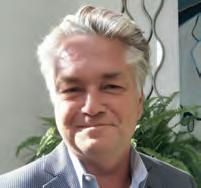
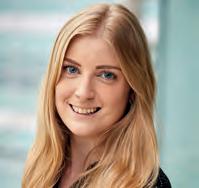

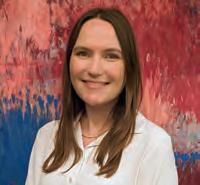
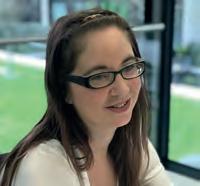
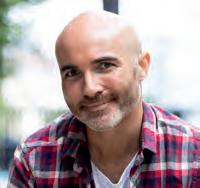
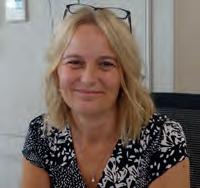
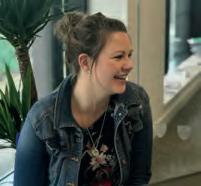
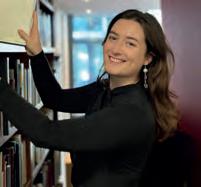
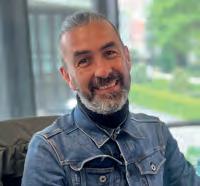
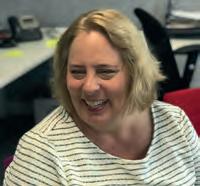
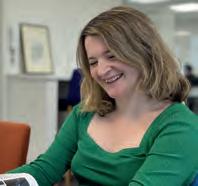
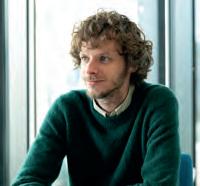
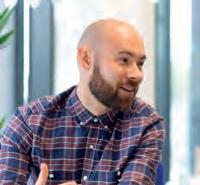

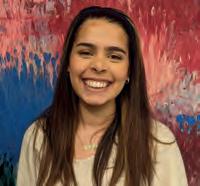
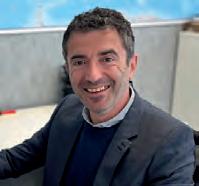
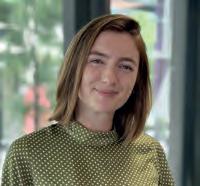

THE NEW MASTERS OF WINE
From February 2024 to August 2024, the IMW welcomed ten new MWs to the membership.
FEBRUARY 2024
Emily Brighton MW (UK – England)
Emily Brighton is Head of Technical at North South Wines, the first UK wine importer and distributor to achieve B Corp accreditation – the subject of Emily’s research paper. Emily’s passion for wine began whilst reading Law at Bristol University, where she joined the Wine Society and discovered blind tasting. Emily embarked on the MW programme having won the Derouet Jameson scholarship for her WSET Diploma results in 2018. She also received the Lallemand Prize in 2021, and the Vintners’ Company Davies Langton Award in 2017. Most recently, Emily was shortlisted for the IWSC Emerging Talent in Wine Award in 2024. Emily becomes the current youngest female MW, and, with dual-citizenship, the first Latvian MW.
Research paper: Sustainable accreditation for UK wine distributors – investigating the impact of B Corp certification on wine distributors: a case study of North South Wines
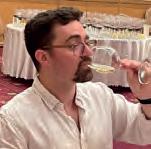
Christopher Martin MW (UK – England)
Chris has a background in education, with over 18 years of teaching a range of students from primary school to graduate-level courses. His love of wines flourished while he was living in Austria for several years. Finally, in 2013 he started to formalise his interest, taking the WSET Level 3 course. This was followed quickly with the Diploma, finishing in 2016. Chris later developed a multi-part wine course at the university he was working for, which led to him joining the WSET in the business development team, where he spent time teaching and growing WSET in the Asia Pacific region. In 2018, he became Head of Educator Development, leading the team responsible for training future WSET educators. Chris is also a wine judge, hosts masterclasses at trade shows and teaches regularly.
Research paper: Developing effective wine educators: integrating the theory of pedagogical content knowledge into wine educator train-the-trainer programmes

Robert Mathias MW (UK – England)
Robert is a wine buyer with a particular specialism in the wines of Bordeaux, Burgundy and the Rhône. His journey into wine began at the University of Cambridge where he studied an MA in Musicology and Social Theory. It was at this time that he started studying WSET courses and working at Cambridge Wine Merchants alongside his degree. Finding a number of transferrable skills between the world of Music, Sociology and Wine, he started working at Bibendum. It was here, through travelling widely and working alongside many wine trade greats, that he quickly became a Fine Wine Buyer, later taking a role across the group buying all French wine. In 2023, Robert joined the buying team at Bordeaux Index. Based in London, he continues to travel, taste, and explore the growing world of wine.
Research paper: Sparkling assets? An analysis of the contributing factors behind the growth in value of the secondary market for investment level champagne from the 2002, 2008 & 2012 vintages

Dror Nativ MW (UK – England)
Dror is a wine buyer at Marks & Spencer, responsible for Champagne & sparkling wine from England, Bordeaux, Burgundy and South America. Dror’s career in the world of drinks started in the hospitality industry, opening and running the first Irish pub in Tel Aviv. His love of wine developed when he worked for a fine wine importer in London, and his retail wine buying career in the UK spans SPAR, Sainsbury’s and M&S. Dror has a passion for the growing English wine industry. He lives in Hertfordshire with his wife and three children.
Research paper: An investigation into the development of English tank method sparkling wines

Pietro Russo MW (Italy)
Pietro is an Italian winemaker who grew up in Sicily, surrounded by the aroma of Marsala ageing in his grandparents’ garages. His first degree was in Viticulture and Oenology in Conegliano, followed by a Masters in Montpellier and Bordeaux. He accumulated hands-on experience by working harvests in France, Spain, New Zealand, Piedmont, and Sicily. From 2010 Pietro has held the role of the senior winemaker at Donnafugata, a successful and dynamic Italian wine brand. He crafts unique wines from the most compelling viticultural areas of Sicily; Etna, Pantelleria, Vittoria and Contessa Entellina. Technical expertise, a market and consumer-led approach and a profound commitment to preserve typicity informs his career in the wine industry. He speaks Italian, French, English and Spanish, and regularly judges at international wine competitions. Pietro lives in Marsala with his family, and when not travelling, he loves gardening, spearfishing and taking care of his two children.
Research paper: Comparative analysis of different tartaric stabilization techniques, including the impact of new ingredient labelling rules, for Grillo and Nero d’Avola wines from Sicily

AUGUST 2024
Neil Bernardi MW (United States)
Neil Bernardi is Chief Operating Officer of Colgin Cellars in Napa Valley, with over two decades of leadership experience in many facets of the wine trade. Prior to joining Colgin, Neil spent 15 years with The Duckhorn Portfolio, where he held numerous leadership positions, including VP of Winemaking, General Manager for Sonoma County winegrowing, and Winemaker of Migration Winery, before becoming Vice President and General Manager of Kosta Browne, Canvasback, and Goldeneye wineries. Prior to that, he was Associate Winemaker for Littorai Wines. Bernardi holds a B.A. in Italian and a B.S. in Viticulture and Enology from UC Davis, as well as being an Eagle Scout. In 2018, Wine Enthusiast recognized Bernardi as one of the “trailblazers shaping the future of wine in America,” naming him a “Top 40 Under 40 Tastemaker.” Neil lives in Northern California with his wonderfully supportive wife and three children.
Research paper: Sensory impact of lees mixing treatments on traditional method sparkling wine
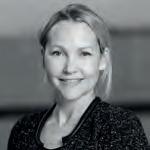
Tone Veseth Furuholmen MW (Norway)
Tone lives and works in Oslo. She is a Senior Product Manager for the Norwegian Wine Monopoly with responsibility for Italy, Portugal, Spain, Lebanon and Greece. Tone’s passion for wine began during language studies in Italy where she spent five years before working as a trade analyst for the Italian Trade Commission in Oslo. She then joined the wine importer Arcus Group (Anora) and finally the Monopoly. She holds a Master of Management degree from BI business school. She currently teaches Sommelier Education and WSET Diploma in Oslo. Tone’s expertise covers different parts of the wine industry such as product development, branding, marketing, PR, distribution, education, sensory research and in-depth knowledge regarding the purchasing systems of the Scandinavian Monopolies. When Tone is not drinking wine based on rare and nearly extinct Italian or Portuguese varieties, she trains dressage with her Portuguese Lusitano horse or spends time with her husband and two sons.
Research paper: Mousiness in wine: An investigation into the effects of repeated exposures and systematic training on wine professionals’ sensitivity to mousiness

Benjamin Hasko MW (Singapore)
Benjamin is a passionate wine professional with 15+ years of experience in the AsiaPacific region, having lived in Singapore for the past five years. Benjamin is the beverage director for a leading restaurant group, overseeing a team of sommeliers and curating wine lists for award-winning venues. Benjamin imports wines into Australia and Singapore, working with small producers focused on sustainability from Northern Italy, Germany, and Central Europe. Benjamin also supports wine education as a presenter and examiner. His passion for wine extends beyond work, leading him on global travels to discover emerging countries, regions and producers. Benjamin and his wife Meredith stay busy raising their three young children.
Research paper: Understanding the value of sub-regional identity in Margaret River: consumer perspectives from Singapore
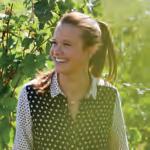
Victoria Mason MW (United Kingdom – England)
After obtaining her BA in English Literature at Warwick University and her MPhil at Cambridge University, Victoria moved to London and started on the Waitrose graduate scheme. While the seeds may have been sown at Friday-night postgraduate dinners, it was later – in 2013 – that she well and truly tumbled down the wine “rabbit hole”. After three years as a horticulture buyer, spending much of her time on the ground, she made the seamless transition into Waitrose’s wine buying team in 2016. She went on to win the Wines from Spain Prize for outstanding results in her WSET Diploma and became a South Africa specialist. Victoria has spent almost all her time immersed in wine since then – tasting, travelling, judging, helping with harvest – with viticulture and soil life emerging as real passions. After Waitrose, she bought for fine wine merchant and trader, Bordeaux Index, before joining The Wine Society’s buying team in May 2024.
Research paper: An investigation into the enablers and barriers to the adoption and practice of regenerative viticulture in Stellenbosch

Wei Xing MW (China – Mainland)
After graduating from the Philosophy Department of Renmin University of China, Wei Xing developed a strong interest in wine during his postgraduate studies in France. Upon completing his studies in 2014 and returning to China, he began his journey as a wine educator, working alongside Fongyee Walker MW and Edward Ragg MW. During this period, he achieved the WSET Diploma and became a certified educator by WSET and several wine-producing countries and regions. Throughout his MW journey, he has explored various roles within the wine industry. He founded a hybrid wine specialty store that integrates drinking, learning, and purchasing wine and has also contributed significantly to online wine education and social media video creation, amassing approximately 400,000 followers. Wei currently serves as an independent wine educator and judge, teaching WSET and various wine courses across China, while conducting promotional masterclasses for wine associations and producers at exhibitions nationwide.
Research paper: Factors affecting Chinese wine consumers’ preferences for wine in ontrade and off-trade channels
EVENTS COMMITTEE (EVENTSCOM)
CHAIR’S REPORT
With the financial sustainability of the Institute under pressure and inflation causing huge increases in wine logistics and other costs, events over this academic year have had to be critically evaluated for likely profitability prior to execution.
It was with great honour and excitement that I stepped into the role of European Chair last year and one of the first changes executed was to merge our regional committees in to one global team. Moving to a global committee sets the platform for us to be able to replicate our sponsor and supporter events in the most resource and cost-effective manner, and benefits each region as well as our total membership community.
The Bordeaux tasting in London took place in late October, with an overview of the 2019 vintage followed by the Annual Awards ceremony. After a hiatus due to the pandemic the Bordeaux tastings recommenced in February in Napa with two dates, showcasing the 2016 and 2017 vintages. Similarly, we were able to reinstate the tasting in Sydney in March with the 2017 vintage. In December, the book launch of Bordeaux Grands Crus Classés 1855 Wine Châteaux of the Médoc and Sauternes was hosted in London in collaboration with Le Conseil des Grands Crus Classés en 1855.
In January, an impressive English Sparkling Wine Masterclass was hosted at 67 Pall Mall London with four industry legends, which was followed by a walkaround tasting the next day in the IMW office.
We were busy at trade fairs and, in February, Vinexpo Paris celebrated the welcome return of the Institute of Masters of Wine Lifetime Achievement Award, which was awarded to Jancis Robinson MW. In March at ProWein Düsseldorf, thanks to the generosity of the VDP and Messe Düsseldorf, the IMW deepened its involvement in the exhibition with an expanded programme of activities including the launch of the new ‘Meet the Masters of Wine’. This enabled delegates to drop in on the IMW stand, find out how to become an MW and what membership of the Institute really means. Two other sessions hosted by MW’s covered ‘Sustainability Across Markets’ and ‘Taste like an MW’.
This year’s ‘Winemakers’ Winemaker’ award was presented to Michael Brajkovich MW at the annual reception, which was co-hosted with the drinks business.
In London, other calendar events included a tasting in collaboration with D.O. Cava in November and Australia’s Old Vine Heritage in April.
The deep dive into the Garnacha grape (originally held in London in October 2022) was held in Singapore, hosted at 67 Pall Mall in May.
My heartfelt thanks goes out to our generous Supporters and sponsors and our hardworking MWs and executive team, who have contributed so much to our events over the last year.
Additionally, my thanks to other Supporters and sponsors who proposed ideas which have not yet been executed. I look forward to working with you all in the next academic year.
Annette Scarfe MW (Singapore)
EVENTSCOM
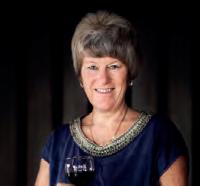
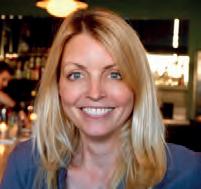
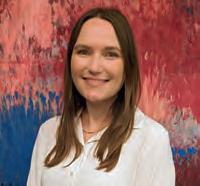
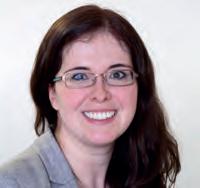
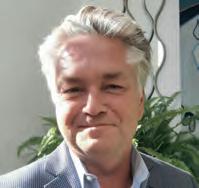
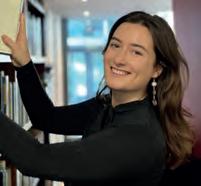
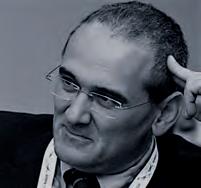
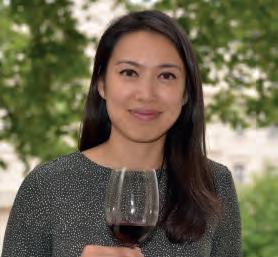
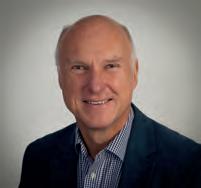
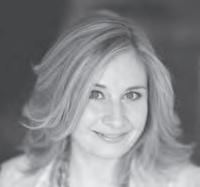

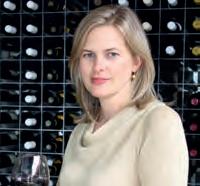
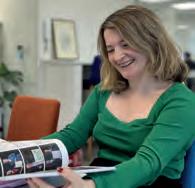
PUBLIC EVENTS
ANNUAL BORDEAUX TASTING (2019 VINTAGE)
31 October 2023
Vintners’ Hall, London, UK
ENGLISH SPARKLING WINE MASTERCLASS
24 January 2024
67 Pall Mall, London, UK
Panel: Stephen Skelton MW (moderator), Josh Donaghay-Spire (winemaker, Chapel Down), Charlie Holland (winemaker, Jackson Family Wines), Cherie Spriggs (winemaker, Nyetimber) and Dermot Sugrue (winemaker, Sugrue South Downs).
ENGLISH SPARKLING WINE WALKAROUND TASTING
25 January 2024
IMW HQ, London, UK
BORDEAUX TASTING (2016 VINTAGE)
9 February 2024
Napa, USA
BORDEAUX TASTING (2017 VINTAGE)
16 February 2024 Napa, USA
BORDEAUX TASTING (2017 VINTAGE)
24 March 2024
Sydney, Australia
AUSTRALIA’S OLD VINE HERITAGE
8 April 2024
67 Pall Mall, London, UK
Panel: Sarah Abbott MW, Andrew Caillard MW (Author, The Australian Ark) and Angus Hughson (Australian Editor, VINOUS).
MASTERING GARNACHA IN SPAIN
21 May 2024
67 Pall Mall, Singapore Presented by Norrel Robertson MW
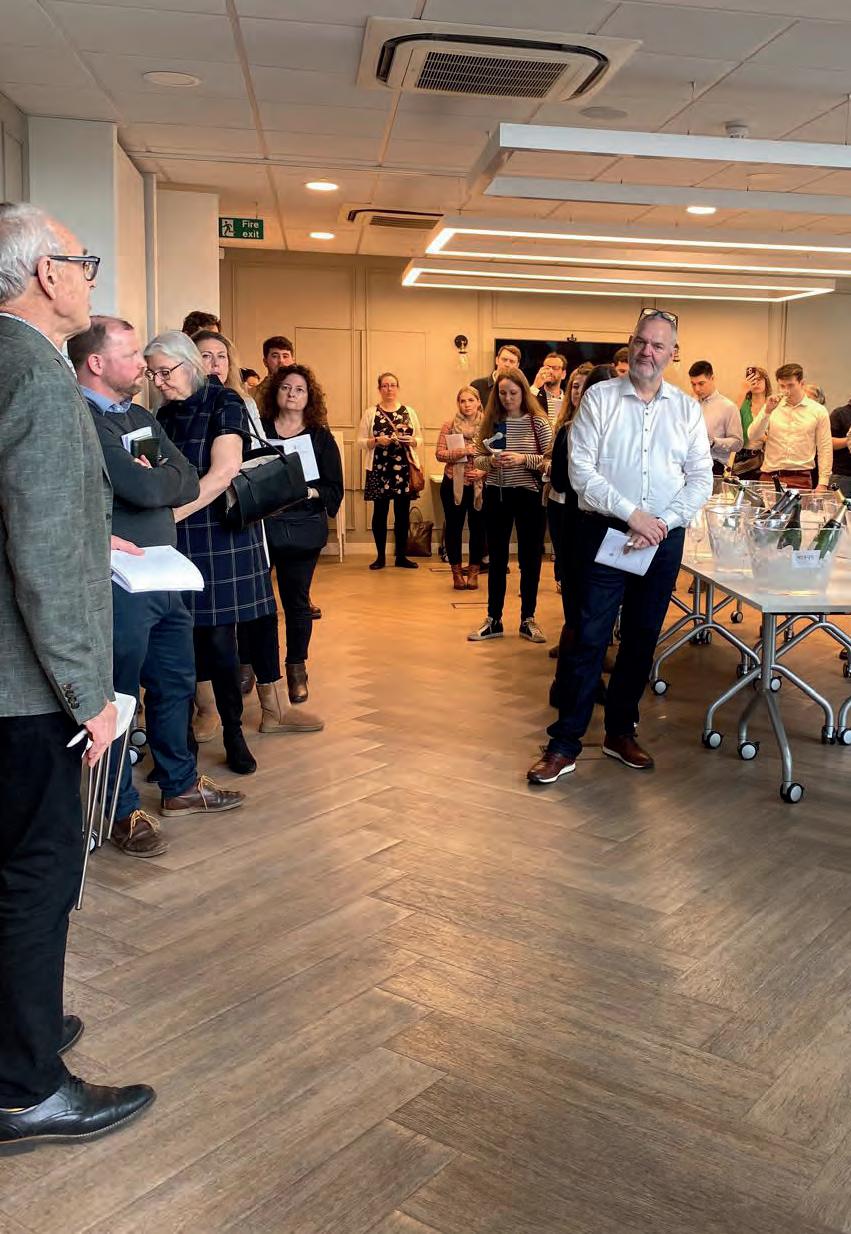
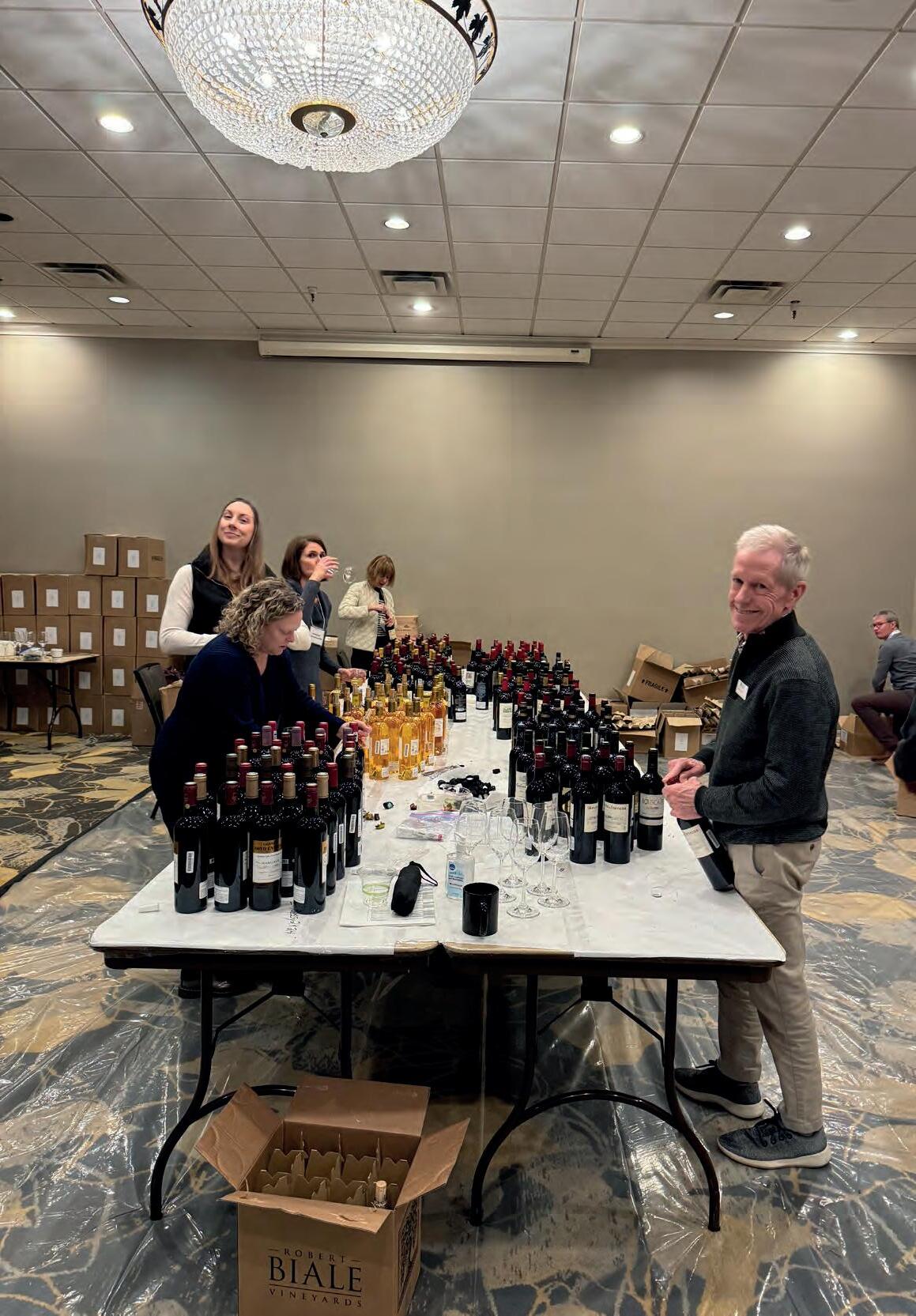
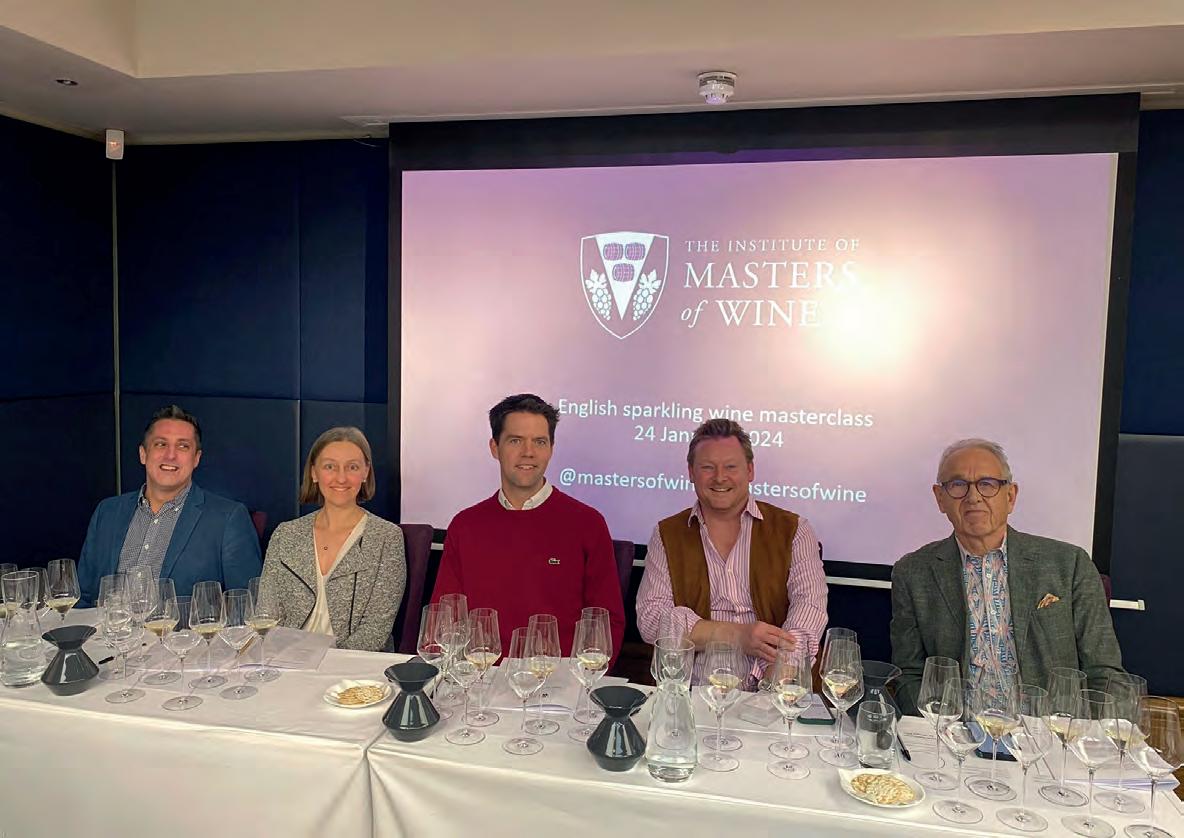
ANNUAL BORDEAUX TASTING (2019 VINTAGE)
31 October 2023 - Vintners’ Hall, London, UK
Although Bordeaux has enjoyed a strong run of good to outstanding vintages since 2013, there was much excitement in the lead up to this tasting because 2019 has been receiving increasingly impressive reviews. And the wines certainly lived up to their reputation, providing a great deal of pleasure now, yet most clearly underpinned by a firm backbone that shows much promise for the future. It is, as ever, a great privilege to be able to taste these wines side by side and compare the stylistic differences between neighbouring appellations and châteaux that make Bordeaux so fascinating. Many thanks to all the estates for making this event possible and for allowing both experienced professionals and younger students the opportunity to taste so many of the finest wines in the world.
The IMW wishes to express its sincere thanks to IMW supporters, Conseil des Grands Crus Classés en 1855 for assistance with sourcing the wines, and Riedel for the use of their glasses.
This year’s tasting in London attracted an international audience of approximately 180 attendees, including over 50 Masters of Wine, MW students, supporters of the Institute and other senior figures from the wine trade and private collectors.
Richard Bampfield MW (UK) & Charles Taylor MW (UK)
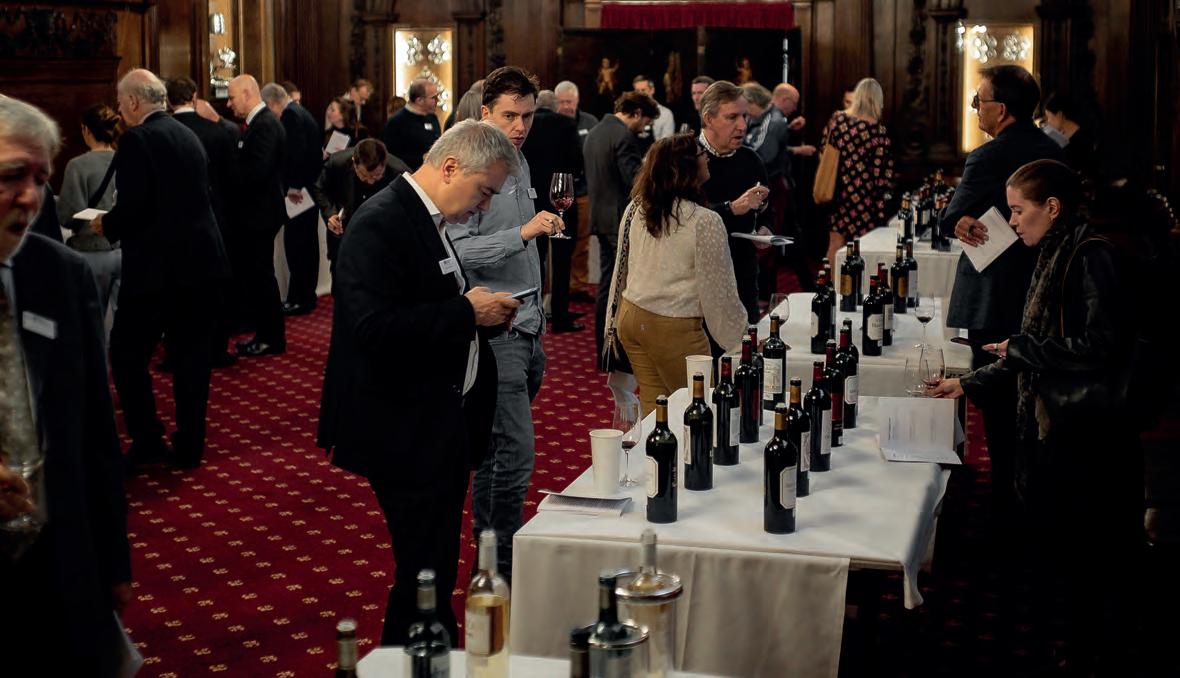

Watch highlights from the tasting
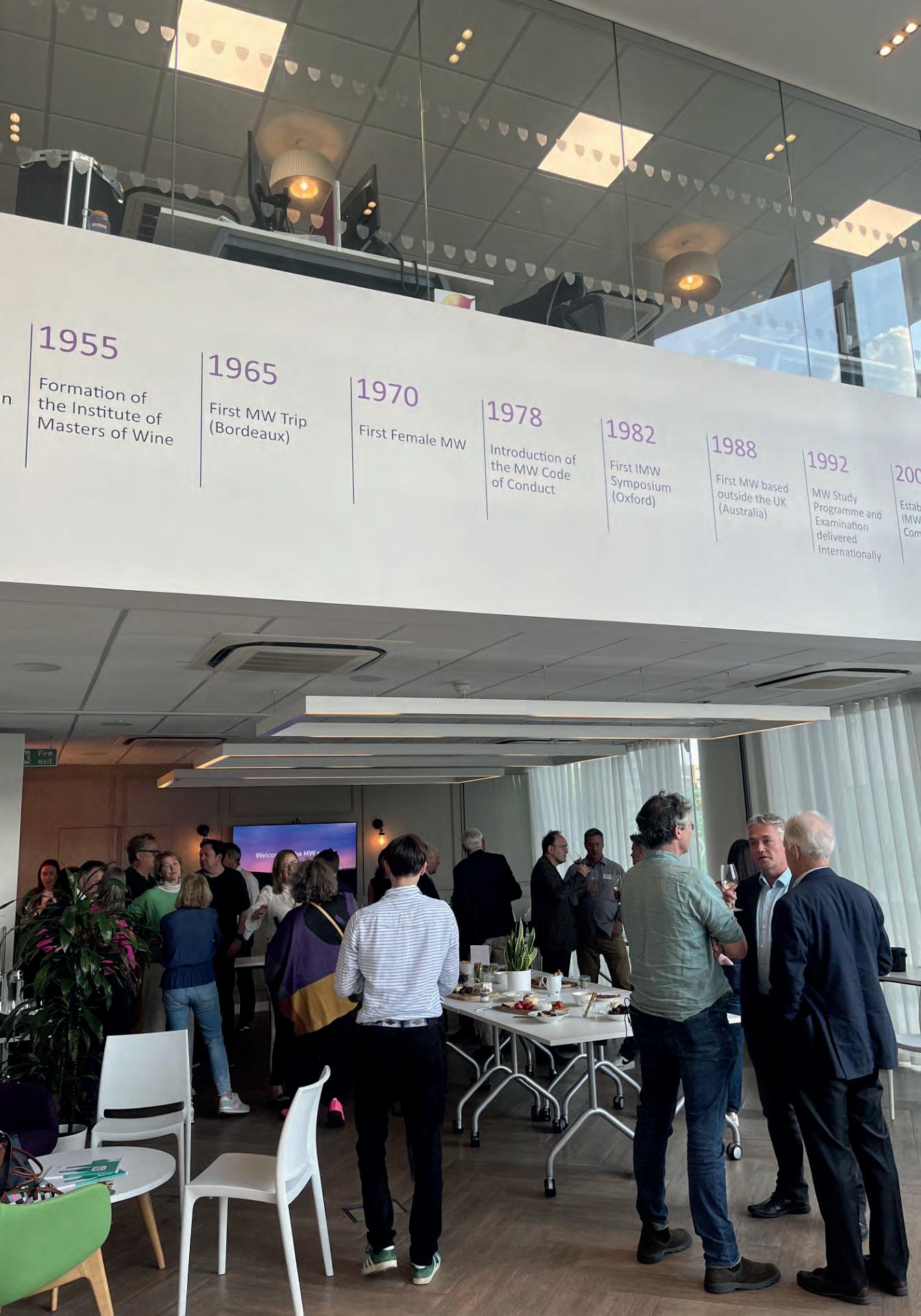
MW SOCIAL
7 May 2024, IMW HQ, London
As MWs converged on London for the judging season, the IMW hosted its annual spring social at its headquarters on the banks of the Thames. It was another wonderful opportunity for members to come together and exchange thoughts and opinions, or simply relax in good company. Thanks go to our Principal Supporter, Champagne Bollinger, for the generous supply of Champagne and to the MWs who brought along their own interesting selections to share and discuss with their fellow members.
LIFETIME ACHIEVEMENT AWARD
Wine Paris / Vinexpo Paris
12 February
2024 saw the triumphant return of the Institute of Masters of Wine Lifetime Achievement Award after a hiatus. Presented in association with the drinks business at Vinexposium’s V d’Or black tie event, the 2024 award went to Jancis Robinson MW OBE for her substantial contribution to the wine industry throughout her career spanning writing, journalism, broadcasting and more across almost five decades. The award was received on behalf of Jancis by Jeannie Cho Lee MW.
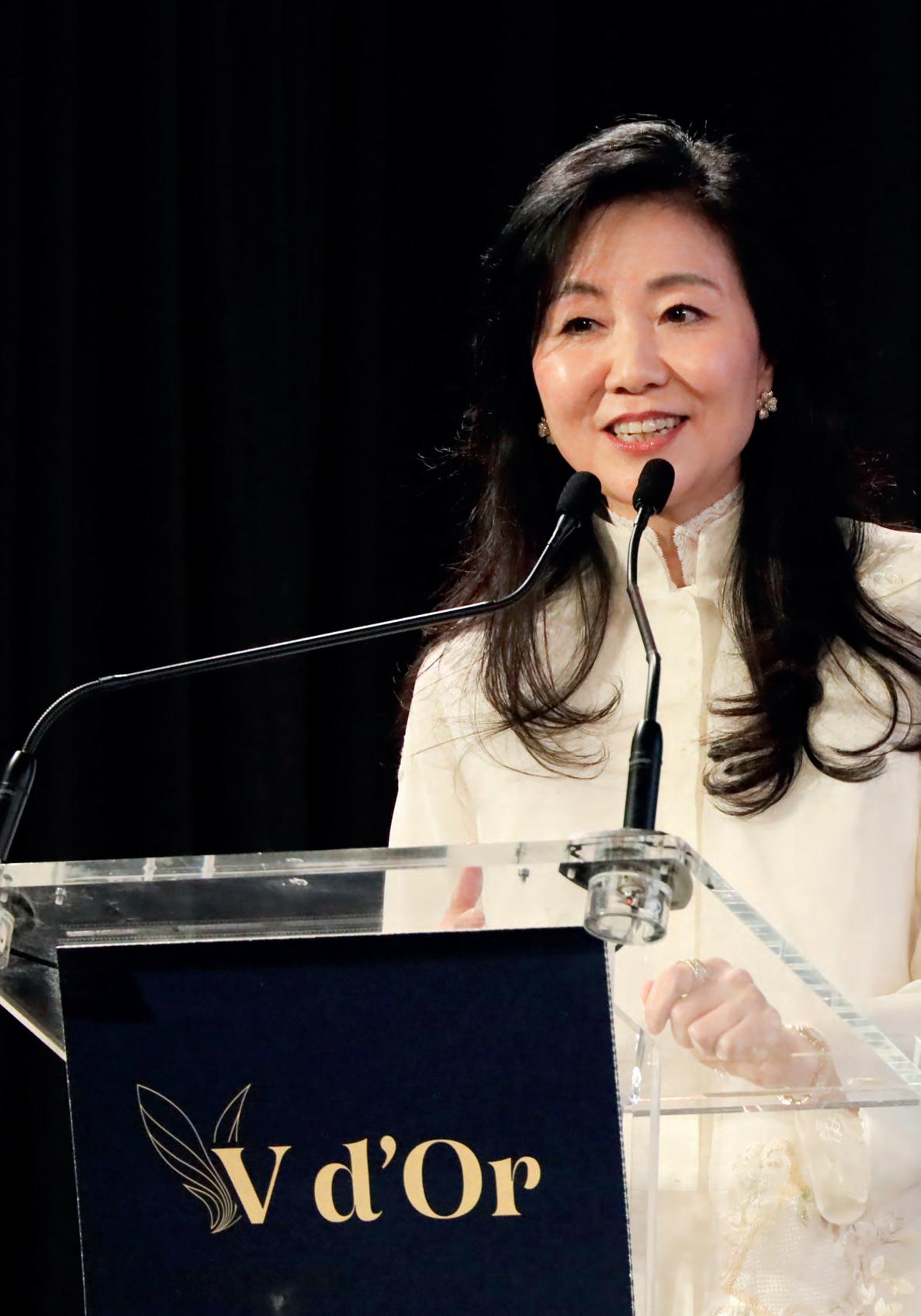
Jeannie Cho Lee MW
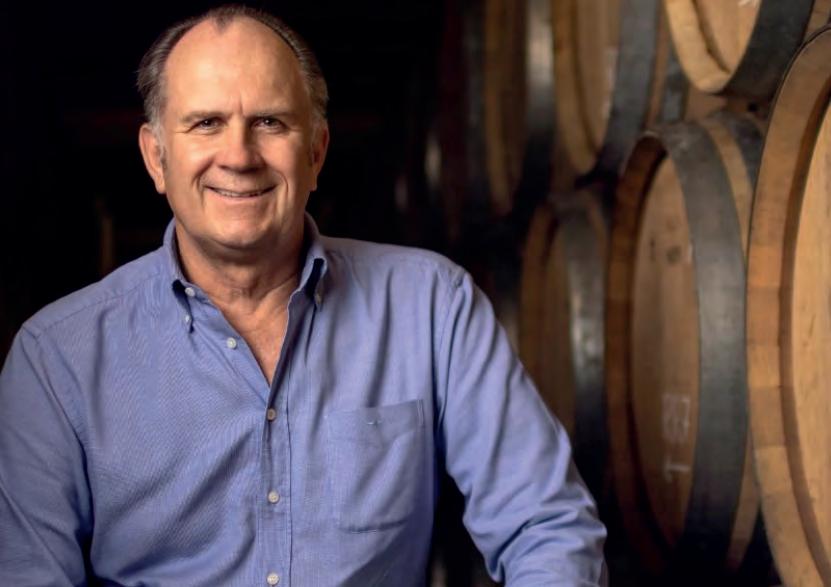
WINEMAKERS’ WINEMAKER AWARD
ProWein, Düsseldorf
11 March
Established in 2011, the 2024 Winemakers’ Winemaker Award was presented to Michael Brajkovich MW at a ceremony during ProWein by the IMW and the drinks business. MW winemakers and previous award winners voted Brajkovich as this year’s winner in recognition of his outstanding achievements in winemaking, which include championing the use of wild yeasts and pioneering the New Zealand Chardonnay movement.
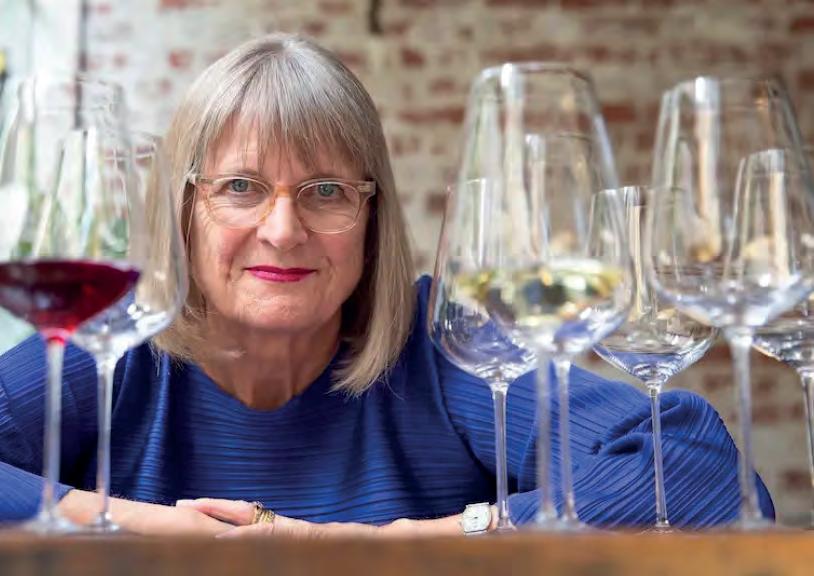
PROWEIN
10-12 March, Düsseldorf
Thanks to the generosity of VDP.Die Prädikatsweingüter (VDP) and Messe Düsseldorf, the IMW deepened its involvement in the exhibition with an expanded programme of activities.
2024 welcomed the launch of the new ‘Meet the Masters of Wine’ programme where delegates could learn about the IMW and what it means to be a Master of Wine. The VDP generously hosted the IMW stand where delegates could drop by and ‘ask an MW’. Assisting at the stand was Richard Bampfield MW, Mark de Vere MW, Michael Palij MW, Steve Charters MW, Rose Murray Brown MW, Beth Pearce MW, Demetri Walters MW, Cathy van Zyl MW and Simon Nash MW.
During the fair the IMW hosted two forum sessions to full audiences. These were:
‘Sustainability Across Markets’ presented by Richard Bampfield MW, Andreas Kubach MW and Martin Reyes MW.
‘How to become an MW: Taste like an MW’ presented by Wojciech Bońkowski MW, Caro Maurer MW and Richard Bampfield MW.
Monday evening saw the return of the Winemakers’ Winemaker Award reception co-hosted with the drinks business. More than 100 MWs, supporters and invited guests were in attendance. This year’s award was presented to New Zealand Chardonnay and screw cap pioneer Michael Brajkovich MW.
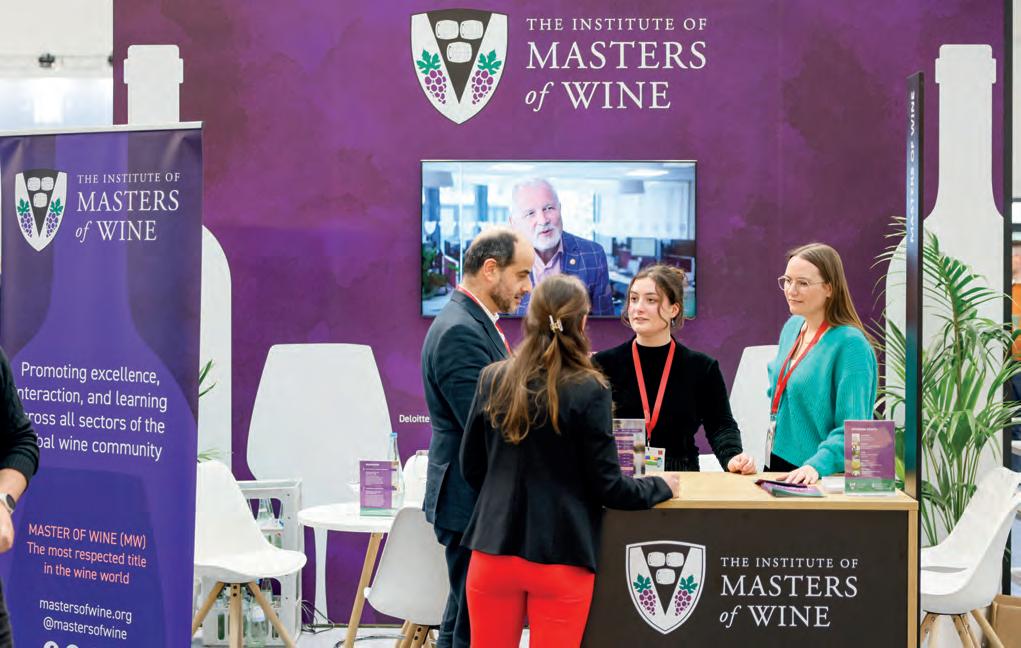
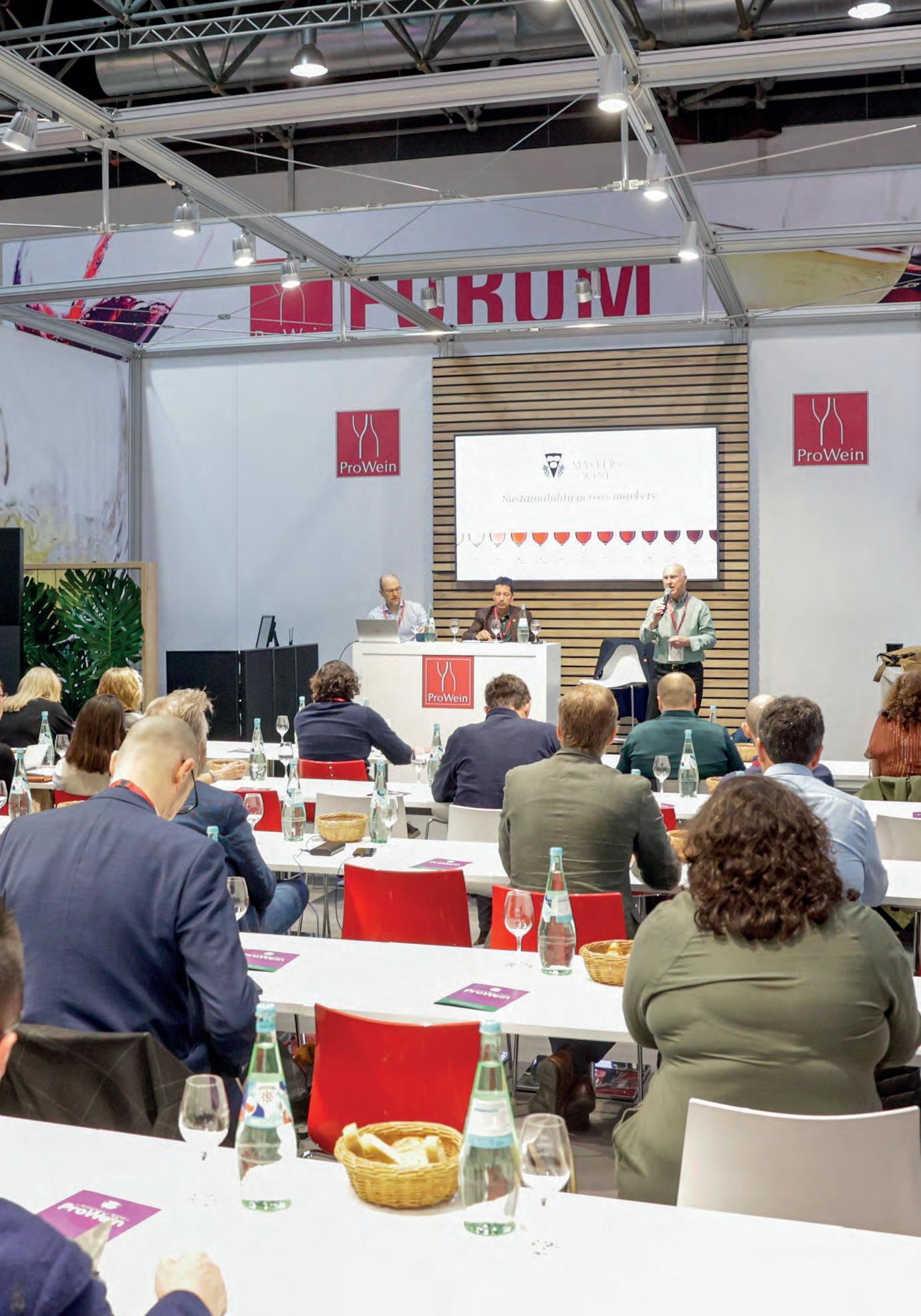
TRIPS COMMITTEE (TRIPSCOM)
CHAIR’S REPORT
I’m delighted to be able to report that the IMW’s trips programme is now back up and running smoothly after a slow post-Covid start at the end of 2022.
2023 saw the members of TripsCom organise two magnificent trips. The first of these, steered brilliantly by Olga Crawford MW, saw a group of 21 MWs visit the Peloponnese in October 2023. Over the course of five days, our hosts, the Greek Wine Federation and Wines of Greece, led participants on a fascinating exploration of the region’s indigenous grapes and PDO zones.
The following month saw many hours of hard work by Cathy van Zyl MW and Richard Kershaw MW bear fruit in the form of a 10-day visit to some of South Africa’s most exciting wine regions. This was a complicated trip to pull together, not least because some 28 different regional bodies, winegrowers’ associations, wine routes and other organisations were involved in the planning and implementation of the trip. Nevertheless, the trip was deemed a resounding success by the 41 Masters of Wine who participated, and who got to explore the country’s coastal and inland regions in considerable depth.
Trips kicked off in 2024 with a very exciting five-day trip to Alsace and the Jura, which TripsCom member Rose Murray-Brown MW organised in collaboration with Olivier Humbrecht MW. This was a unique opportunity for 22 MWs to explore these two regions of Eastern France together, reacquainting themselves with Alsace’s viticultural diversity before heading for the path less travelled, and a visit to the vineyards of the Jura.
Later this year, 15 MWs will enjoy a fabulous few days in Hungary on a trip put together by Natasha Hughes MW and Dr Ágnes Herczeg, a former MW student, while November sees a group of MWs travelling to the southern hemisphere for an eight-day exploration of Argentine wine regions under the guidance of Marina Gayan MW and committee member Ying Hsieng Tan MW.
The Trips Committee has grown in number in 2024, with the recruitment of Pedro Ballesteros MW and Siobhan Turner MW to its ranks, and together its members are working on a programme of visits for 2025 and 2026. Possible venues being discussed include Chile, Japan, Argentina, Sicily, the UK and Northern Greece.
The Trips Committee is keen to work with any MW whose close contacts with any winemaking region or country puts them in a position to help organise future visits. If you have any such leads for a potential trip, please get in touch with me – or any other member of TripsCom – as we hope to bring the number of such expeditions back up to pre-pandemic levels in future.
Natasha Hughes MW (UK)
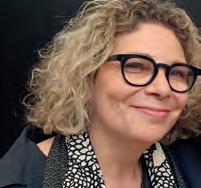
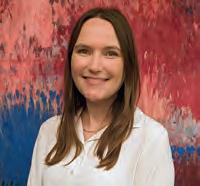

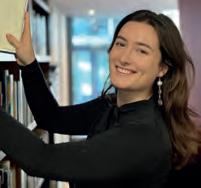
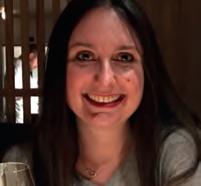
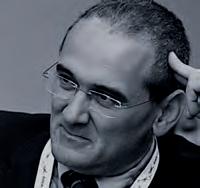
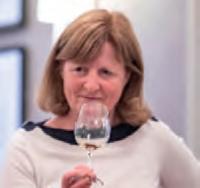
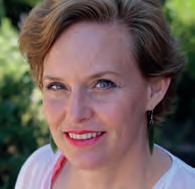
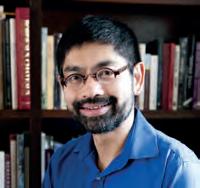
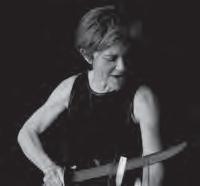

MW TRIPS
Greece’s Peloponnese, France’s Alsace and Jura, and South Africa’s Western Cape featured in a thoughtful trips itinerary offering MWs opportunities to build on their knowledge and continue their explorations in the world of wine.
PELOPONNESE, GREECE
8-13 October 2023
Organised by Olga Karapanou Crawford MW. Hosted by the Greek Wine Federation and ENOAP
Greece is a country whose ties to wine go back millennia and the Peloponnese is one of the oldest continually farmed viticultural regions in the world. It was only fitting, therefore, that this trip took MWs on a journey through history as well as wine, including a visit to the awe-inspiring Parthenon and sampling wines from the UNESCO protected Aigialeia region.
Vineyard visits were highly successful, especially the tasing of three different selected clones of Agiorgitiko in the vineyard in Nemea and the drive through Tselepos vineyards in Mantinia, where the tastings were well paced, and an optimum number of wines were presented.
Tastings were thoughtfully constructed and paired with a presentation or visit that complimented them throughout the trip, while the tasting of older vintages of Agiorgitiko, in the words of one MW, “changed their opinion” (positively) about the variety. Discovering the versatility of Moscofilero in Mantinia was particularly well received as well as two tastings at Monemvasia. The best of the panel discussions really engaged with the audience, were well paced and had a combination of good moderation, panellists and venue.
We are very grateful for the hospitality which was outstanding particularly when wines were paired with food.
TripsCom
WESTERN CAPE, SOUTH AFRICA
11-20 November 2023
Organised by Cathy van Zyl MW with help from Richard Kershaw MW and supported by 28 wine regions and producers
South Africa, and particularly the Western Cape’s wine country, is a nation of visual impact. No matter how many times one gazes across its weathered mountains, dramatic vistas, and vividly coloured scenery, one is astonished by its rugged primeval beauty. Add to this the melting-pot of cultures alongside a vinous culture as old as almost any in the southern hemisphere, then it comes as no surprise that South African wines are often deemed to sit stylistically betwixt the Old and the New Worlds (an increasingly unacceptable term, I know).
So, what was in store for 41 Masters of Wine from 16 countries spending 10 days attempting to better understand the Cape’s wine scene? The most startling revelation, even for those seasoned visitors to this country, was the variation in climatic terroir. We travelled from the cool climate coastal regions of
Hermanus and Elgin, through the variations in altitude, aspect and soil of Stellenbosch, to the baked-in heat and light of the Breede River, even tasting wines from extraneous regions along the way. This, then, isn’t a single wine story, but a patchwork of contributing texts.
What were the highlights? There were far too many to mention, and every day brought a surprise. For my part, one of the most useful exercises was (and bear with me here…) taking a Porsche 4×4 excursion up into the vineyards above Uva Mira in the Helderberg. Looking down on most of Stellenbosch, even across to the Kasteelberg in Swartland, suddenly made sense of the local terroir. Here were visible the various aspects of Bottlery, Simonsberg, Jonkershoek, and Banghoek, plus the influences of nearby False Bay, coming into reassuringly better focus. It was fascinating to pick out well-known properties and to better appreciate the manifold influences of aspect and elevation.
Other delights were found in the variety of regional tastings that sought to make sense of local terroir, grapes and stylistic imperatives. Some were outdoors under canvas, or even just outdoors in impossibly exotic settings, such as the striking natural amphitheatre at Oldenburg, or atop Table Mountain which shed its morning wreath of clouds to give us awe-inspiring views of the oceans that surround it and the sparkling lights of the City Bowl below when we descended late in the evening. Others were just too civilised to take in, whether in Anthony Hamilton Russell’s Hemel-en-Aarde garden, sipping Vin de Constance at Klein Constantia, or gazing out from lunch at Iona where you look out across the vast vista of vineyards, orchards, forests and natural vegetation that make up the high-altitude plateau circled by mountains that is Elgin. Some were delightful in their sheer exuberance and innovation; none more so than the infectious enthusiasm generated by the Zoo Cru.
Whatever the magic potion was — beautiful scenery, startlingly delicious wines, making new friends, catching up with old ones, or just enjoying the camaraderie in the company of professionals from the world over, all convening in this magical place — it was the welcome and enthusiasm that we witnessed that truly charmed us all and that led to many an epiphany. We know that South Africa can turn it on, and countless wine encounters proved it, but it’s the development of this country’s wine story that is so impressive. Michael Fridjhon’s closing address painted a challenging scene of a land haunted by the spectre of its past, though one with limitless potential bursting through seemingly insurmountable obstacles.
Today’s South African wine industry is increasingly one of inclusion and celebration. In this exciting but troubled corner of the world, there’s so much to celebrate. But no trip is possible without good planning. Cathy van Zyl MW pulled out all the stops to make this revelatory trip happen. In this she was aided and abetted by Richard Kershaw MW, who provided much needed technical know-how, and Natasha Hughes MW, who shared the heavy load. Belinda Eaton kept her cool with us all, which was nothing short of a miracle.
Demetri Walters MW (UK)
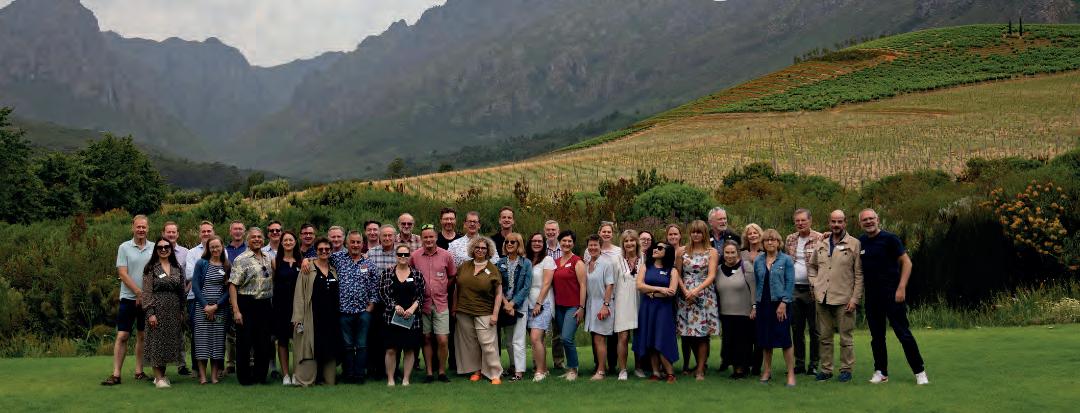
ALSACE AND JURA, FRANCE
14-20 April 2024
Hosted by Comité Interprofessionnel des Vins d’Alsace (CIVA), Alsace Crus et Terroirs (ACT), Stéphane Tissot and Comité Interprofessionel des Vins du Jura (CIVJ)
Like all the best ideas in life, this trip was dreamed up over a glass of wine (well, sherry actually) during the MW Jerez trip – when I asked Olivier Humbrecht MW if he would help me organise a trip to Alsace. Olivier also suggested that the tiny Jura region nearby could be combined as an interesting extension in a week’s tour.
So my challenge began - working with two small French regions with very limited budgets. I am extremely grateful to all our four hosts (CIVA and ACT in Alsace and CIVJ and Stéphane Tissot in Jura) and all the winegrowers in both regions who made it possible with their generosity and hospitality.
In Alsace, the generic body CIVA (Comitè Interprofessionnel des Vins d’Alsace) hosted our first two and a half days with a programme expertly organised and immaculately executed by CIVA’s Foulques Aulagnon and Lena Martin. On the itinerary were superb masterclasses on the potential of Sylvaner, Crémant d’Alsace and Pinot Noir led by Anne Krebiehl MW alongside leading wine producers. Evening dinners with Julien Schaal Wines at La Nouvelle Auberge and with Christian and Valerie Beyer of Domaine Emile Beyer at L’Epicurien were highlights - as well as a late-harvest focus at Hugel (members of Primum Familiae Vini), a vertical of Schlossberg Grand Cru from different growers hosted in Domaine Weinbach’s C17 kitchen and a delve into history at the enchanting Confrérie Saint-Etienne providing unique insights into the region.
ACT (Alsace Crus & Terroirs) hosted our final day and evening in Alsace. Nineteen member estates of this dynamic private association, who constitute many of the top producers in the region, entertained us royally with a fascinating series of events focused on terroir-driven wines — again executed with Germanic-style precision. Highlights included an epic masterclass on Dry Riesling from Lieux-dits and Grands Crus hosted by Olivier Humbrecht MW (which we all wished we had recorded as it was so good), an exposé of top Pinot Noirs with Jacky Barthelme of Domaine Albert Mann and growers’ dinner at La Taverne Alsacienne. Although the weather throughout our week’s visit was unseasonably cold, the sun shone at just the right time for our vineyard walk through Grand Cru Hengst with ACT members.
Anticipation was high as we set off to remote Jura – a region which many MWs on the trip had never visited before. In Jura the style of tasting moved to the more relaxed pace of rural French life. In the impressive Château Pecauld headquarters of CIVJ (Comite Interprofessionnel des Vins du Jura) we were welcomed by vine growers from across the region, enjoyed an overview of current statistics and challenges in Jura with director Olivier Badoreaux – and compared Chardonnay Savagnin ‘Ouille v Sous Voille’ around the region with a group of growers.
One of the highlights of our Jura trip was the visit to the beautiful hill-top village of Château Chalon, home of Vin Jaune, where the Savagnin grape and oxidative wines reign supreme. In the historic Maison de la Haute Seille on this rocky mountain spur, we compared Vin Jaune styles of Château Chalon and its surrounding villages - alongside Arbois and Côtes du Jura.
The second Jura highlight was our visit to Domaine A&M Tissot in Montigny-les-Arsures. Owner Stéphane Tissot gave us an incredible amount of knowledge, foresight and wine in an action-packed morning of vineyard walk, cellar tour and intensive mature vintage tasting showing the unique diversity of Jura, alongside other organic/biodynamic growers Jean-Etienne Pignier of Domaine Pignier and Marin Fumey of Domaine Fumey-Chatelain.
Just a few days after our visit to Jura, we heard news from Stéphane Tissot that the region had been badly affected by a devastating cold-snap frost with losses of about 50% in his vineyards – and with other growers up to 80-100% loss. This is the fourth bad frost in just eight years in this region and our thoughts are with all the vine growers and their families in Jura.
I would like to thank all our hosts in Alsace & Jura for making this such a memorable week offering us a deep dive into two small contrasting regional French gems. Thank you also to Olivier Humbrecht MW for helping me make it all happen.
Rose Murray Brown MW (UK)
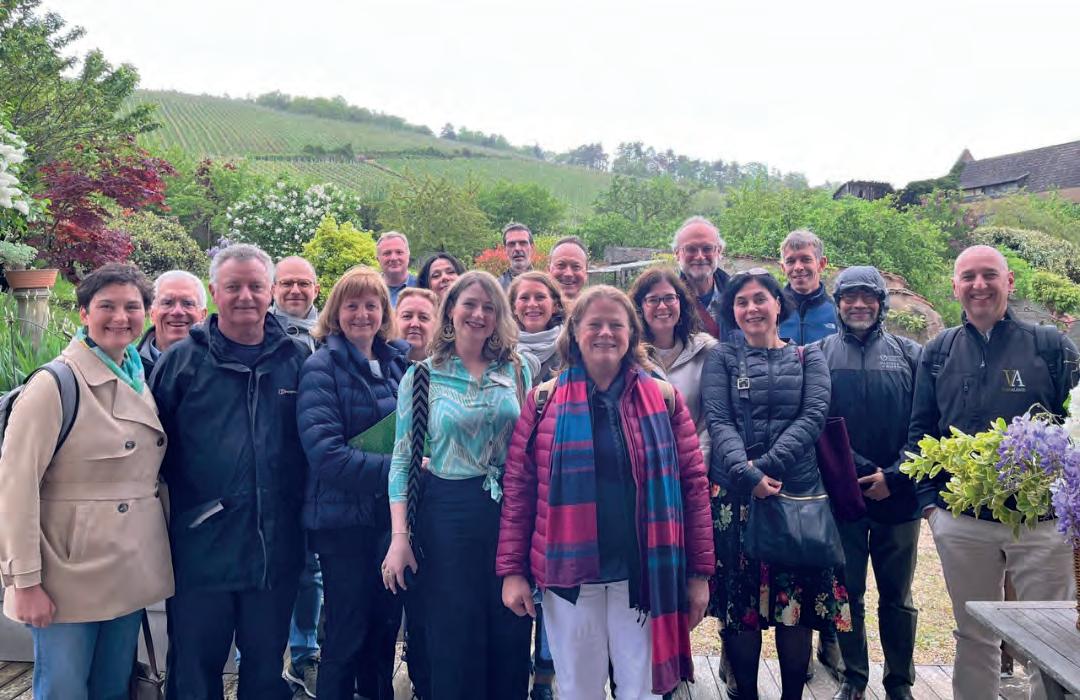
MEMBERSHIP COMMITTEE (MEMBCOM)
CHAIR’S REPORT
The Membership Committee (MembCom) exists to further the interests of individual members and keeps Council’s focus on ensuring the IMW remains aligned with membership needs.
MembCom’s primary activity is the design and execution of the member survey, run every 18 to 24 months. The most recent survey was launched in the fall of 2023 and the report published to members late spring, 2024. The next survey is scheduled to go out to members in spring, 2025. Similar to previous surveys, the goal of the 2023 survey was to gain MW insights and views on member engagement, current IMW activities, its future direction, and what MWs value most about the IMW community – particularly important as we expand in numbers and geographic reach around the world.
For consistency, many survey questions remained the same, meaning so that the results can be compared and act as an ongoing satisfaction benchmark. New questions in the 2023 survey addressed Continuing professional development (CPD), our strategic direction as a professional membership organisation and our role in policy development.
The survey highlighted once more the high level of engagement, with 90% of respondents actively involved in IMW activities and engaged in policy advancement. It also highlighted the opportunity for the IMW to build out member CPD activities and address key areas of policy such as sustainability, climate change, gender equality, diversity and inclusion.
Mary Gorman-McAdams MW (US)
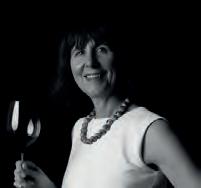
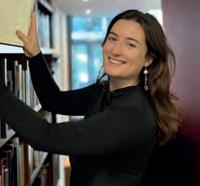
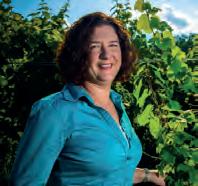
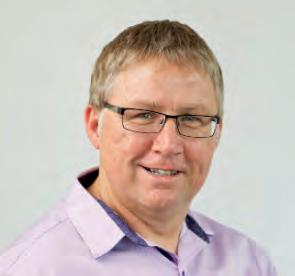
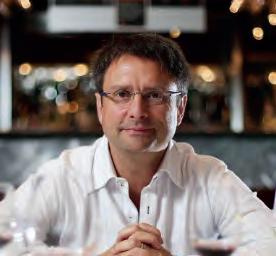
GOVERNANCE COMMITTEE (GOVCOM)
CHAIRS’ REPORT
The Governance Committee (GovCom) plays a crucial role in ensuring effective oversight and compliance and seeks to improve the Institute’s systems and processes for decision making and accountability.
GovCom continues to oversee the IMWs compliance with the Institute’s governing documents. It is called upon to draft, review and update governance policies and procedures, including those related to Council operations, voting, conflicts of interest, and ethical standards. It has also undertaken a year-long review of the Institute’s policies to ensure they are amended and updated. Through these activities, GovCom helps to ensure that the IMW is managed effectively, operates transparently, and adheres to best practices in governance.
Caroline Hermann MW (US)

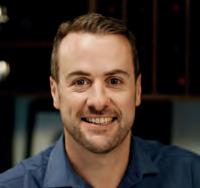
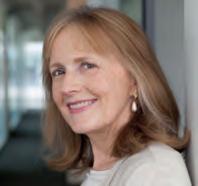
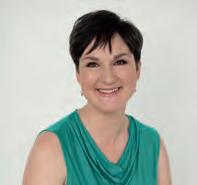
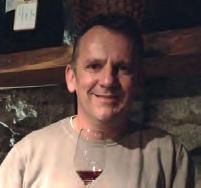
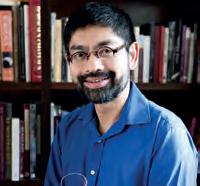
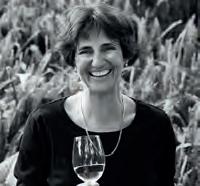
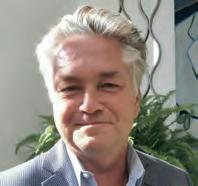
SUSTAINABILITY COMMITTEE
(SUSTCOM) CHAIR’S REPORT
The Sustainability Committee (SustCom) exists to develop and integrate sustainable practices into the IMWs operations and culture.
One key activity is monitoring and reporting. We now have a process in place for calculating the carbon impact of Institute-related events on a monthly basis. From January to April, student travel for seminars, course days, and trips accounted for the most CO2 emissions. In May and June, wine shipments contributed the most to the overall carbon impact. From the reporting, we have data-driven insight of our impact and areas for improvement.
Another focus is education and awareness. Sustainability sessions were presented at some of the 2024 student seminars by MWs and guest speakers on how winemakers are approaching challenges to climate change.
The Committee has engaged in numerous discussions regarding sustainability policies, and we are still in the process of formulating actionable strategies. Our focus remains on carefully evaluating all perspectives to ensure that the final policies we adopt are both effective and aligned with the membership survey outcomes. We welcome contributions from all members to assist the integration of sustainability into IMW operations and ethos.
Our thanks to Ulf Sjodin MW and Nicolas Quillé MW for their invaluable insight and advice.
Caroline Hermann MW (US)
SHARE OF CARBON EMISSIONS BY ACTIVITY
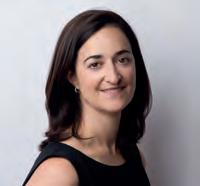

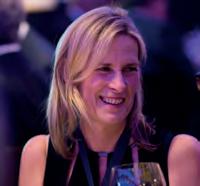
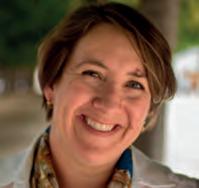
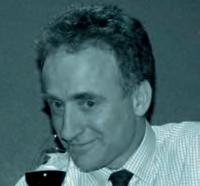
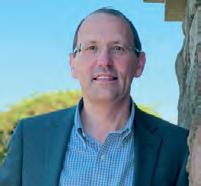
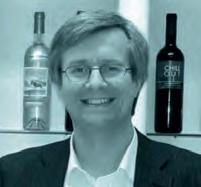
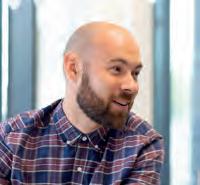
DIVERSITY, INCLUSION AND TRANSFORMATION COMMITTEE (DITCOM) CO-CHAIRS’ REPORT
In 2024 DITCom refined its remit to align with the charge given by Council.
The IMW recently joined with other stakeholders and members of the industry to support the start of a new UK drinks industry’s Equity, Diversity and Inclusion (EDI) initiative with safeguarding women as priority. This follows up on a survey commissioned by Curious Vines and PROOF Insight. Future plans are to update the IMW’s digital training programme. Naturally, the immediate challenge to delivering an exceptional offering is funding and work is currently underway by the IMW executive team to source funding for the project. DITCom is cognisant of the increasing urgency to deliver on its remit.
Members have been exhorted to reach out on their own to encourage a diversity of persons to consider following a path toward the MW. Additionally, DITCom members have taken it upon themselves to mentor (or at least signal their availability to) members of the wine industry who might find the IMW aspirational, but inaccessible. It is believed that the financial constraints on more resource-intensive forms of outreach or formal platforms necessitates this grassroots approach.
Short-form interviews in the form of podcasts will resume once the office has more bandwidth to edit and publish them. It is hoped that this can resume later this year, if not early next year at the latest.
DITCom is also now heavily invested in the upcoming 2026 IMW Symposium in Adelaide, two members of the committee have been appointed to coordinate with the Symposium Committee; one sitting directly in the Programme Committee and another providing additional liaison support along with sustainability oversight.
Lisa Granik MW (US) and Stephen Wong MW (New Zealand)
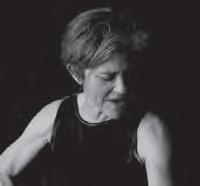

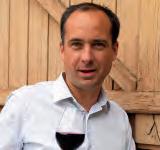
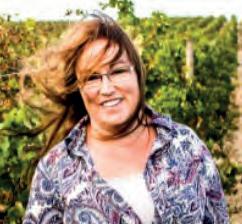
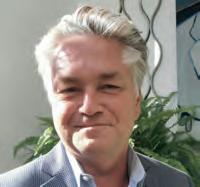
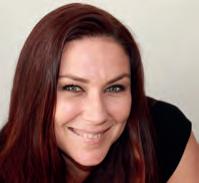
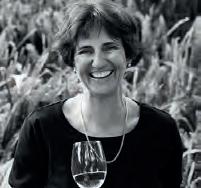
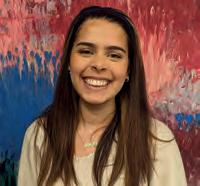
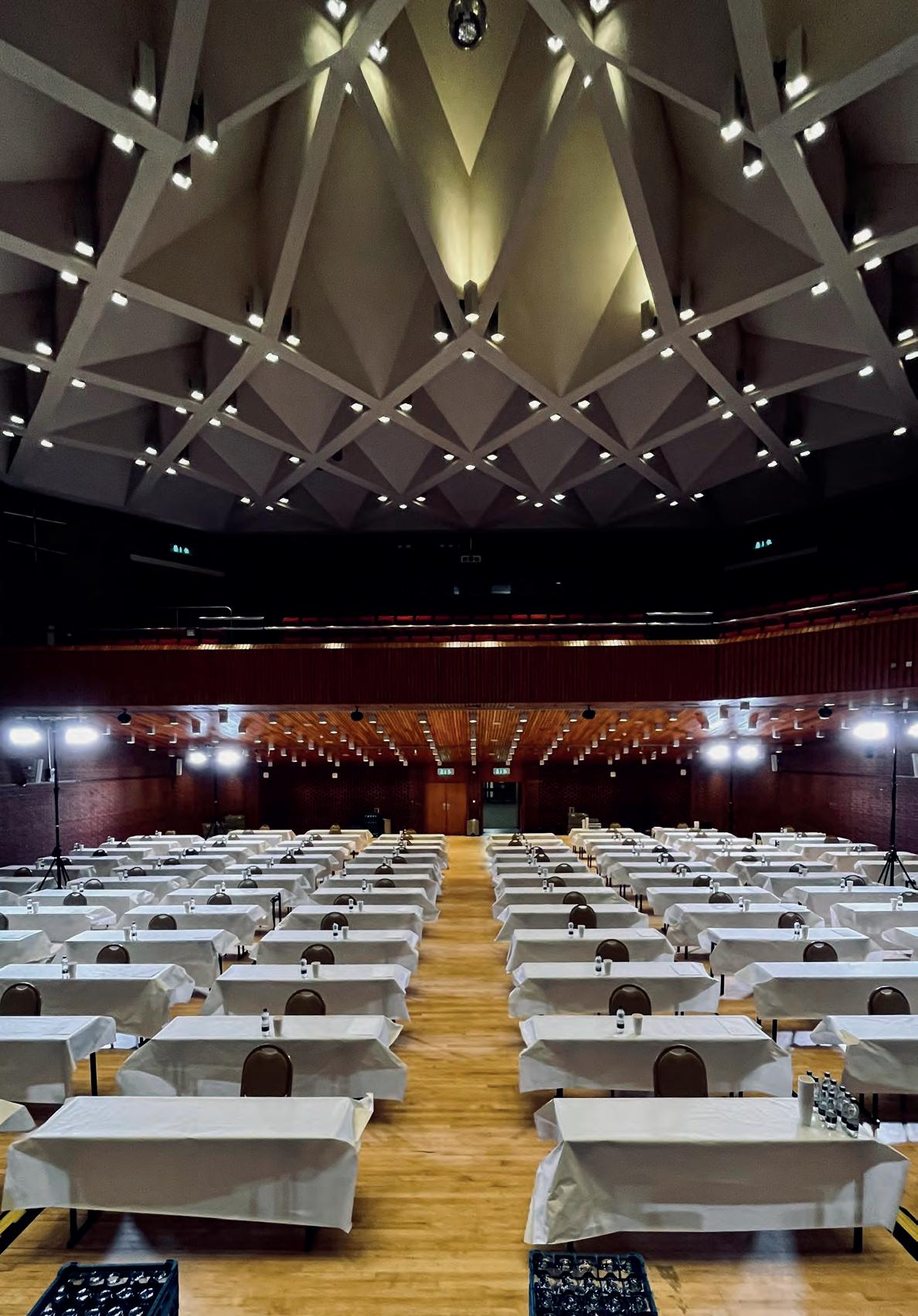
IMW NORTH AMERICA (IMWNA)
PRESIDENT’S REPORT
Last year at the AGM, the issue of how we might better utilise the IMW North America’s (IMWNA) status as a 501(c) (3) was raised. That led to a need to research the history and background of how we obtained our 501(c)(3) and what kind of 501(c)(3) the IMWNA is considered.
What this research revealed is that the IMWNA was not classified as a public charity or a standard private foundation. Rather, it was classified as a Private Operating Foundation 501(c)(3). What is a Private Operating Foundation (POF)? In general, a POF is a private foundation that devotes most of its resources to the active conduct of its exempt activities. A POF must continuously meet something called an “operating” test and if it does not, it defaults to being reclassified as a grantmaking private foundation. To remain classified as a POF, an entity must spend at least 85 percent of its adjusted net income or its minimum investment return, whichever is less, directly for the active conduct of its exempt activities. In addition, the foundation must meet one of the following tests: the assets test, the endowment test, the support test.
Essentially, the IMWNA was originally set up to manage an endowment (the funds for which were going to be raised by NA-based MWs and managed by the IMWNA Board), and to use that endowment to fund symposia, trips, events, and educational seminars.
Much has changed for the IMW as a global organisation since the IMWNA was first established and the 501(c)(3) status sought. For example, at the time it was established, IMW-NA had greater oversight of the North American seminars and was looking for ways to develop relationships with US-based distributors and wholesalers. Based on this newly discovered information on the requirements that IMWNA must meet to maintain the 501(c)(3) status, the IMWNA Board must now carefully consider a pathway to move forward.
The IMWNA Board continues to strive to coordinate with the IMW on activities in North America and to expand the awareness and understanding of the MW title. We look forward to more discussions as to how to effectively utilise the resources of the IMWNA to best serve the interests of the membership.
Sheri Sauter Morano MW (US)
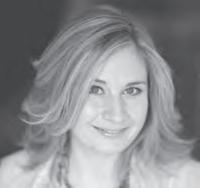
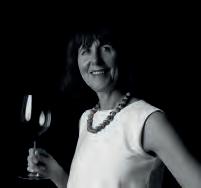
IMWNA BOARD
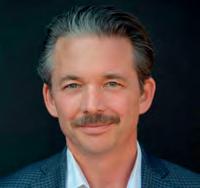
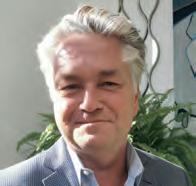
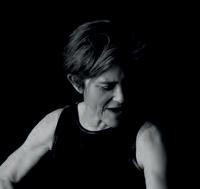
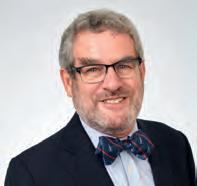
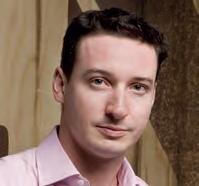

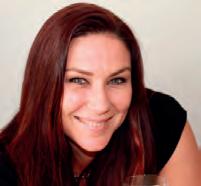
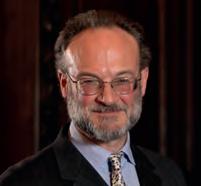
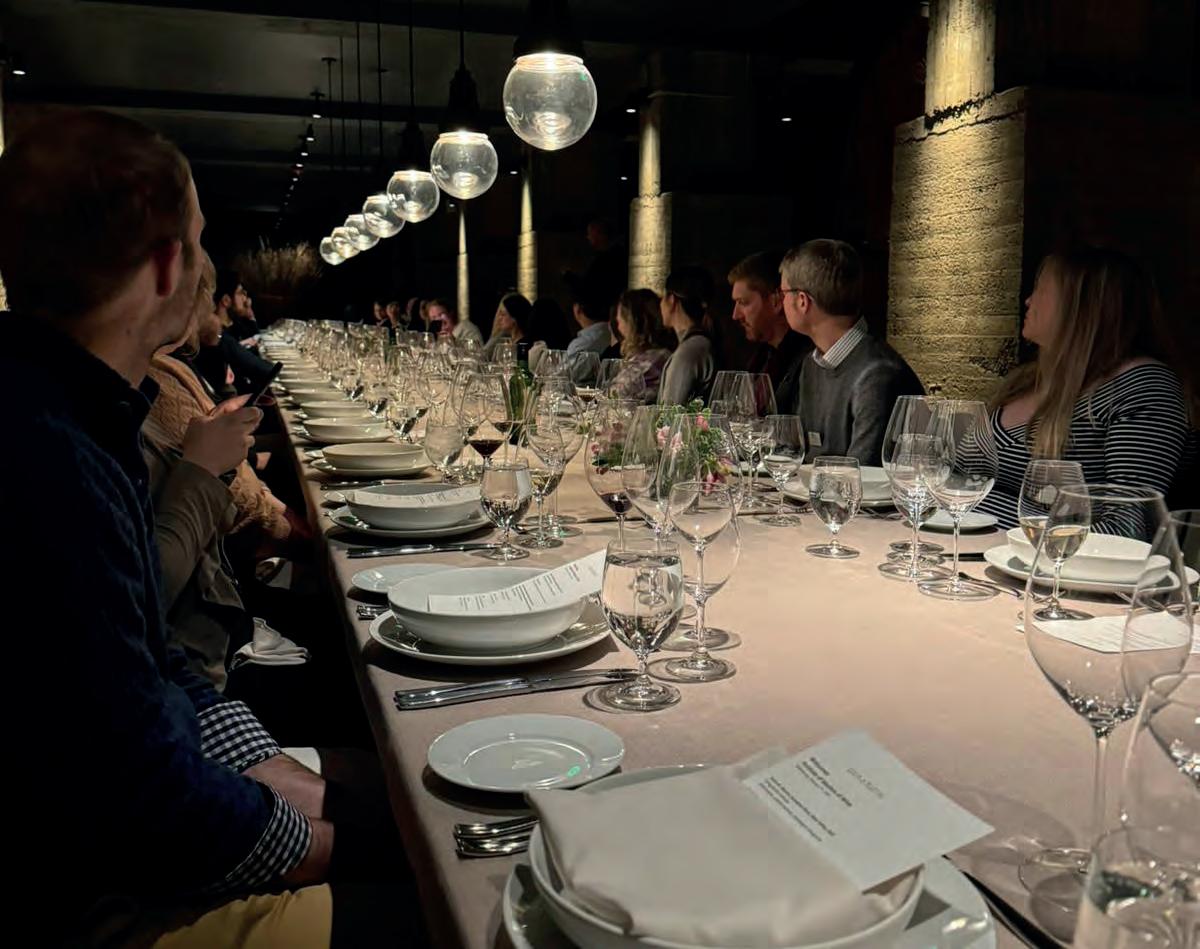
EDUCATION AND EXAM BOARD (EEB)
CHAIR’S REPORT
Finally, for the first time in five years, the Institute was able to offer a full educational and examination process for all our students, wherever they are situated in the world. It’s a relief to be back to normal – but we also have to recognise that over the last decade we’ve seen student numbers increase steadily, which has – even without Covid intervening – placed greater strains on the systems, our finance, the executive team, and the many MWs involved in the education and examination process. I’m deeply grateful to all of those who work hard for the Institute, often MWs who commit time for little or no reward, or members of the executive team who often endure long hours under immense pressure to ensure that everything runs effectively and to time.
It seems that our educational programme remains popular, despite its difficulty. This year we had 161 new applicants, 115 of whom were invited to join the programme; the increased numbers necessitated an extra seminar – with a great deal of added work for EdCom and the executive team. Additionally, 104 students took the theory examination and 140 the practical, compared with 92 and 134 last year. Following issues with exam irregularities last year we reviewed the regulations and invigilation system and rewrote our exam policies, as well as producing a new appeals policy. I’m pleased to say that –at the time of writing – no irregularities have arisen so far this year. We also introduced a new exam software system (Civica) this year.
The last AGM asked the EEB to examine the proposal to have a Single Paper Resit apply to the practical exam as it does to the theory exam. Thanks particularly to ExamCom we had a very comprehensive report on this, outlining differences between the two exam streams which makes this less appropriate, and which also showed that it would have little benefit for students. Tim Wildman MW proposed the motion and so he was included in the discussion. After a wide raging and constructive discussion, we have agreed not to change the existing rules.
As a result of the fallout from Covid and the way we responded to it, which used much of the Institute’s resources, we have had to work within some fairly tough financial constraints. This has made it hard to get EEB, EdCom and ExamCom together faceto face as often as normal and also meant that we were not necessarily able to advance our support for students as much as we would have liked. It also limited our opportunities for more strategic planning. Having said that, we continue to evaluate our educational provision – and perhaps more on that next year!
Steve Charters MW (France)
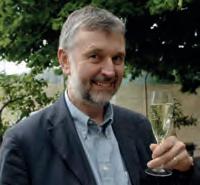
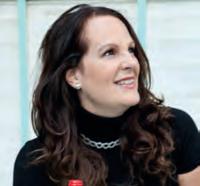
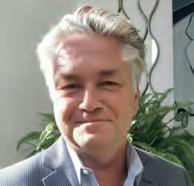


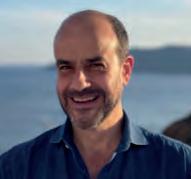
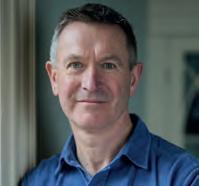

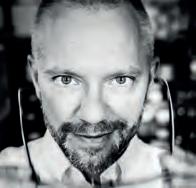
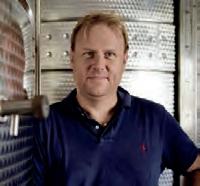
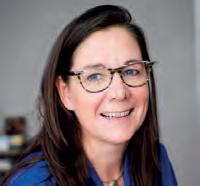
96% OF STAGE ONE STUDENTS 90% OF STAGE TWO STUDENTS
WOULD RECOMMEND THE MW STUDY PROGRAMME TO AN ELIGIBLE FRIEND OR COLLEAGUE 94% OF STAGE ONE STUDENTS STRONGLY AGREED OR AGREED 95% OF STAGE TWO STUDENTS STRONGLY AGREED OR AGREED
“THE SEMINAR HELPED ME BETTER PREPARE FOR THE PRACTICAL COMPONENT OF THE STAGE 1 ASSESSMENT/ MW EXAM” 83% OF STAGE ONE STUDENTS STRONGLY AGREED OR AGREED
“THE KNOWLEDGE GAINED DURING THE RP PROCESS WILL HELP ME IN MY FUTURE CAREER”
81% OF STAGE THREE STUDENTS STRONGLY AGREED OR AGREED
“THE ONLINE THEORY SESSIONS HELPED ME BETTER PREPARE FOR THE THEORY COMPONENT OF MY EXAM”
100% OF STAGE TWO STUDENTS STRONGLY AGREED OR AGREED
“OVERALL, I WAS SATISFIED WITH MY EXPERIENCE ON THE MW STUDY PROGRAMME THIS YEAR” 87% OF STAGE ONE STUDENTS STRONGLY AGREED OR AGREED 88% OF STAGE TWO STUDENTS STRONGLY AGREED OR AGREED
“OVERALL, HOW WOULD YOU RATE THE QUALITY OF THE COURSE DAYS YOU ATTENDED”
100% OF STAGE ONE STUDENTS SAID VERY GOOD OR GOOD 84% OF STAGE TWO STUDENTS SAID VERY GOOD OR GOOD
EDUCATION COMMITTEE (EDCOM) CHAIR’S REPORT
In 2023/2024 a record number of candidates were admitted to the programme, increasing the student pool to the largest in our history.
The stage one and stage two only seminars in North America were run over two consecutive weeks in Napa and we envision the same for 2025. Although not having the seminar in Seattle was unfortunate, having two seminars in the same place helped with logistics. The theory only seminar was held in the IMW offices in London (and will be again in 2025), taking advantage of our lecture space as well as the many MWs around the area. Adelaide, Pfalz, Rust and Cookham (Odney) all ran as normal. The large intake of new students necessitated an extra stage one seminar, held at the Bolney Estate in West Sussex.
For 2024/2025, given our increased student body, the Odney seminar will be split into two weeks, one week for practical only and the second week for stage two, which will allow for increased capacity and a better student experience.
Our changes to the stage one experience were highly rated by students so we will continue with the program in 2024/2025. Our goal is to monitor candidates as they progress to try and get an overall impression of how the program impacts successful candidates. Students also told us that they preferred having consecutive course days so we will do the same in the future.
We have continued monitoring our practical mock exam results versus actual exam results. These statistics have been informative, helping us see where students are struggling, and allow us to focus our course days and seminar content accordingly.
Goals for this year include continuing our monitoring of students to help us design future course day and seminar papers. We are also looking at the stage one experience at seminars, trying to see if we can have more consistency whilst allowing for individual seminar experiences. Finally, we will look at the theory side of the program to see how we can further enhance it.
We are ever mindful of our financial restraints and the loss/reduction of seminar sponsorship. To that effort we have tried to make changes to the programme to reduce costs where possible without compromising the student experience. Increasing course day numbers were a part of that effort with little impact. Our changes to the introductory stage one experience reduced wines but these changes were made to enhance the student experience with the side benefit of reducing wine costs. Seminars are normally one of the largest parts of the budget so effort was made by all coordinators to source extra wine from our own cellar, Supporters, general purchase and other contacts, something we will continue to do as well as further tightening of travel budgets.
In the past few years, we’ve had a record number of students who are deferring, in some cases for numerous years. A large deferral pool of candidates reduces the number of students we can admit to the Institute, so we are making efforts to help these candidates back onto the program — something that takes an enormous amount of time from the office staff and various members of the committee.
With the number of students involved in the education programme this year, it was no small feat to organise and run each event and my heartfelt thanks go to Sarah Harrison and the executive team as well as the entire education committee and all those MWs who have given up their time to help guide students.
2023/2024 says goodbye and many thanks to Sarah Knowles MW and Heidi Hansen MW and welcomes Siobhan Turner MW.
Michelle Cherutti-Kowal MW (UK)
EDCOM

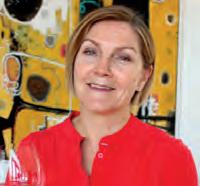
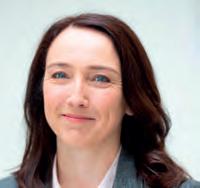
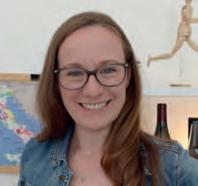
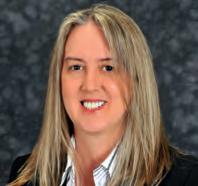
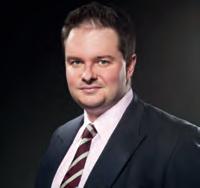

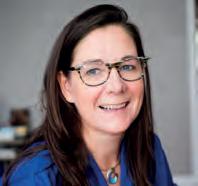
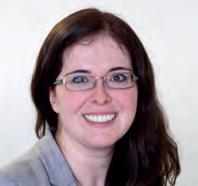
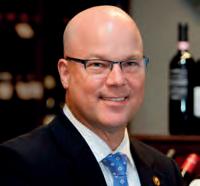
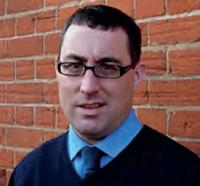
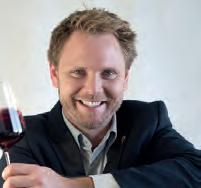
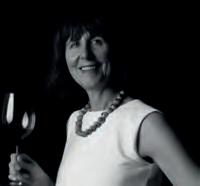
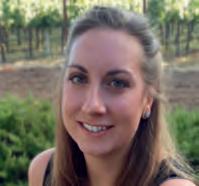
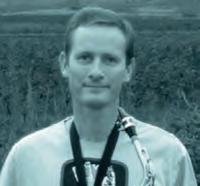

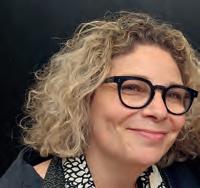
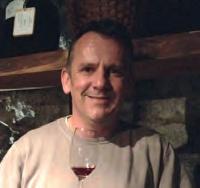
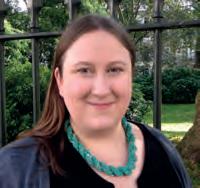
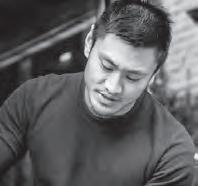
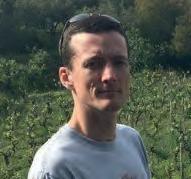

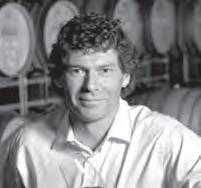
INTRODUCTIONS TO THE MW STUDY PROGRAMME
Featuring MW-led tastings and theory sessions, the Institute’s introductory courses provided prospective students around the world with an induction into what it means to participate in the MW programme.
INTRODUCTORY COURSES (IN-PERSON)
PORTUGAL WITH MARTIN’S WINE ADVISOR
26 - 27 February 2024
The Lodge Hotel, Vila Nova de Gaia, Porto
Led by Caro Maurer MW and Ray O’Connor MW
USA
22 - 23 March 2024
Capital Wine School, Washington D.C.
Led by Caroline Hermann MW and Jay Youmans MW
SPAIN WITH LA FUNDACION PARA LA CULTURA DEL VINO
19 - 20 April 2024
Bodegas Muga, Haro, La Rioja
Led by Jonas Tofterup MW, Almudena Alberca MW and Fernando Mora MW
GERMANY WITH VDP.DIE PRADIKATSWEINGUTER
25 – 28 April 2024
Rheinhessen and Mainz
Led by Ray O’Connor MW and Demetri Walters MW
INTRODUCTORY COURSES (ONLINE)
INTRODUCTION TO THE MASTERS OF WINE PROGRAMME
4 April 2024
Hosted from the UK by Demetri Walters MW
INTRODUCTION TO THE MASTERS OF WINE PROGRAMME
17 April 2024
Hosted from Canada by Elsa Macdonald MW
INTRODUCTION TO THE MASTERS OF WINE PROGRAMME
23 April 2024
Hosted from Australia by Phil Reedman MW
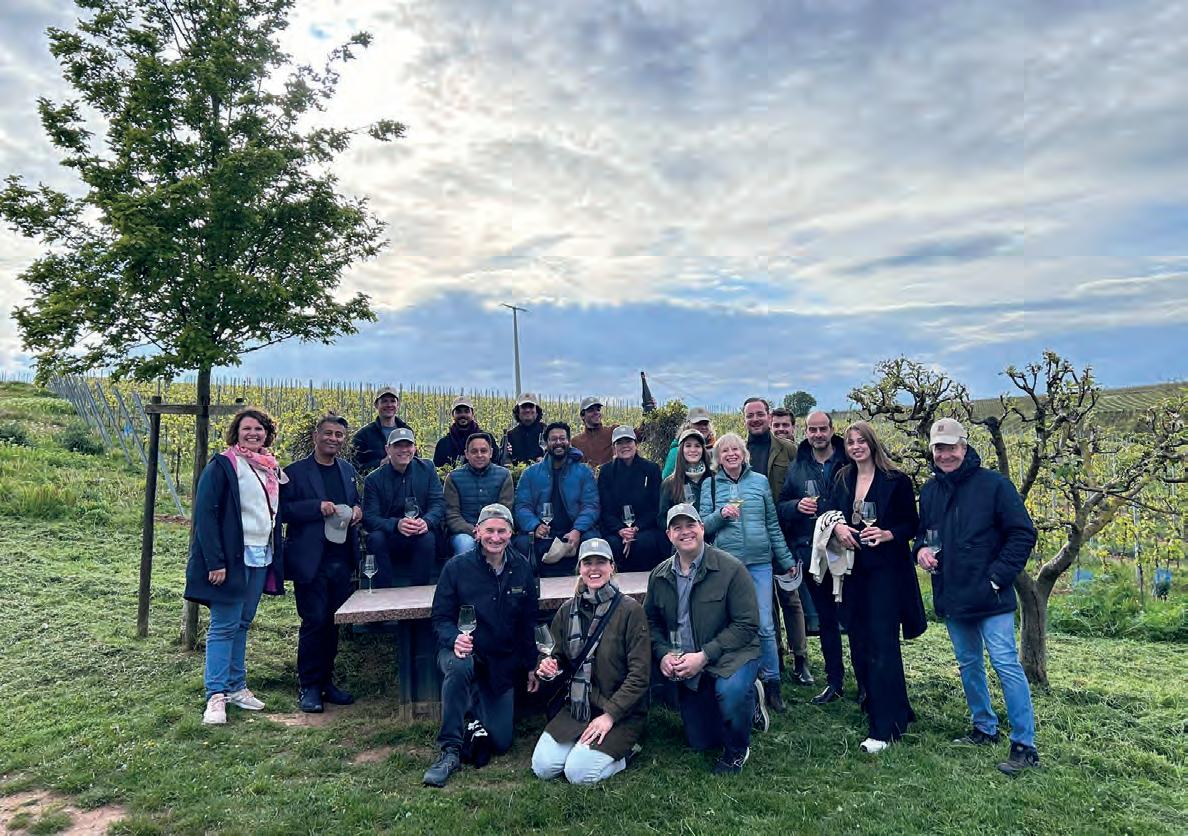
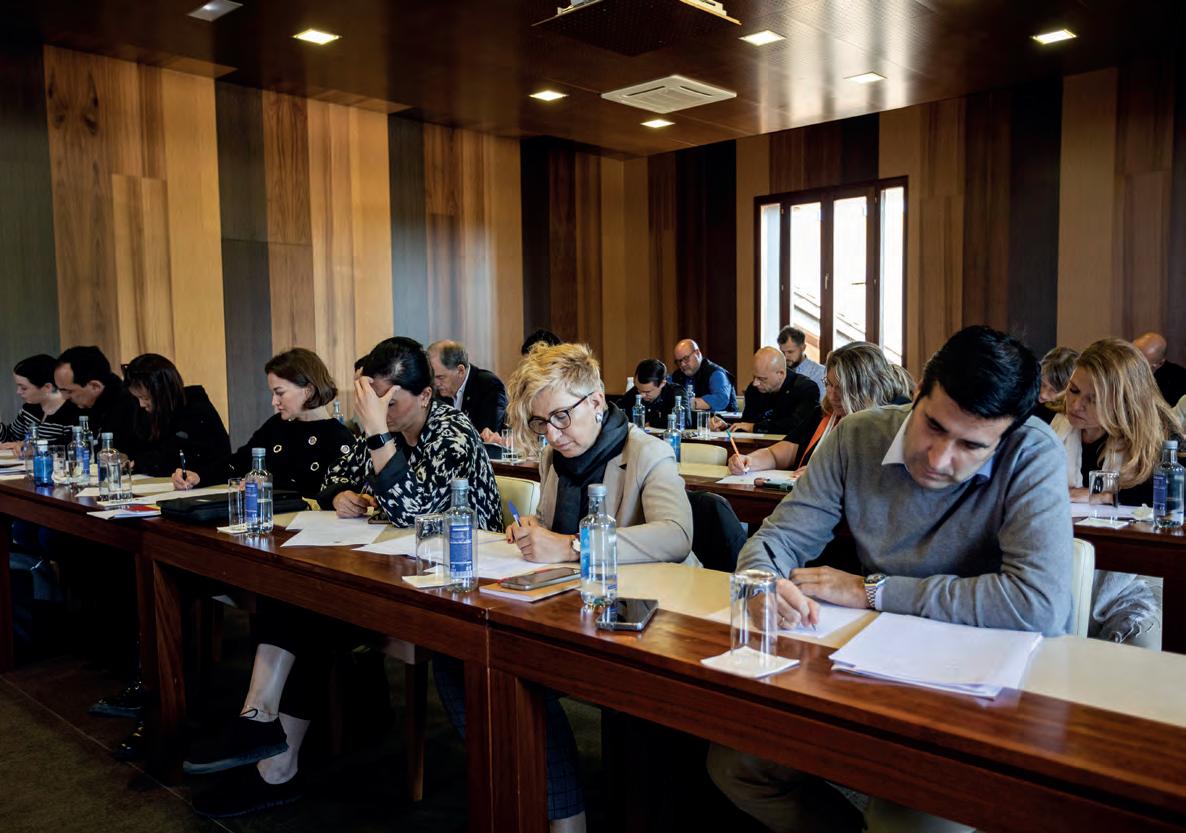
STUDY PROGRAMME COURSE DAYS & WEBINARS
STAGE ONE COURSE DAYS
28 Course Days in 5 countries: London, UK
Washington DC, US Napa, US
Singapore
Sydney, Australia
STAGE TWO COURSE DAYS
32 Course Days in 5 countries: London, UK
Washington DC, US Napa, US
Singapore
Sydney, Australia
WELCOME WEBINARS FOR STAGE ONE STUDENTS
2 and 3 November 2023
Led by Sarah Harrison
INTRODUCTION TO THEORY WEBINARS
15 November 2023
Led by Michelle Cherutti-Kowal MW
29 November 2023
Led by Phil Reedman MW
SHERRY WEBINAR
5 December 2023
Led by Natasha Hughes MW
ROSÉ WEBINAR
19 February
Led by Elizabeth Gabay MW
STUDY PROGRAMME SEMINARS
RUST, AUSTRIA
14 – 21 January 2024
Hosted by Weinakademie Österreich and Austrian Wine
Stage one students
58 students attended from 16 countries
Coordinated by Mike Best MW
ADELAIDE, AUSTRALIA
28 January – 2 February 2024
Stage one and two students
48 students attended from 12 countries
Coordinated by Annette Lacey MW and Edward Ragg MW
PFALZ, GERMANY
5 – 9 February 2024
Hosted by Deutsches Weininstitut, VDP, Pfalzwein Werbung and the City of Neustadt
Stage two students
42 students attended from 20 countries
Coordinated by Jonas Tofterup MW
NAPA, US
5 – 9 February 2024
Stage one students
40 students attended from 7 countries
Coordinated by Dilek Caner MW
NAPA, US
12 – 16 February 2024
Stage two students
39 students attended from 11 countries
Coordinated by Elsa Macdonald MW and Eric Hemer MW
LONDON, UK (THEORY ONLY)
12 – 16 February 2024
Stage two students
5 students from 5 countries.
Coordinated by Phil Reedman MW
COOKHAM, UK
19 – 23 February 2024
Hosted by The Odney Club
Stage two students
70 students attended from 21 countries
Coordinated by Christine Marsiglio MW and Sarah Knowles MW
HAYWARDS HEATH, UK
26 February – 1 March 2024
Stage two students
29 students from 13 different countries
Coordinated by Michelle Cherutti-Kowal MW
RUST, AUSTRIA (S1)
This was my first time leading the programme at Rust for the stage one seminar and I’m very pleased to report it was a success. It is a strange feeling to come full circle from being a student to being at the helm in seven years but this is also a good reflection of the opportunities the MW provides and I am very grateful for it. My thanks go to Rod Smith MW for handing over a seminar in such good condition.
The 2024 seminar was the twentieth anniversary of Rust. It was perhaps fitting that it was therefore the largest with 58 students and 15 MWs attending. Despite some considerable challenges in a post Brexit world (superbly dealt with by Sarah Harrison), the wines arrived just in time and the papers put together by Barbara Boyle MW and Jonas Rojerman MW struck a great balance between pushing the students and letting them show their abilities. The tasting briefings led by former examiners, John Hoskins MW and Matt Stubbs MW, provided hugely valuable information and technical details that benefitted the students enormously. Phil Reedman MW gave a very valuable theory presentation also.
For brevity, thanks to Carlos Agrellos of Quinta do Noval for a superb Douro masterclass. To Charles Heidsieck, Plaimont, Zahel & Orin Swift for their session on how to sell wine in a mature market. To Professor Dr. Monika Christmann for her presentation on the state of wine production. To IMW principal supporter Austrian Wine and Chris Yorke for his talk and of course thanks for the wonderful hospitality, generosity and effort from the many growers who shared their time and wines with the students.
Also, a huge thank you to the inimitable Dr. Pepi Schuller MW. He has overseen twenty years of Rust and my allotted word count is not able to do justice to his efforts.
On a personal note, it was very special for me to share a glass of wine at Rust with Wojciech Bonkowski MW as we roomed together as students in 2017. We also paid tribute to the dearly departed Phil Tuck MW who did so much to get so many of us across the line.
Mike Best MW (UK) Seminar Coordinator
ADELAIDE, AUSTRALIA (S1&2)
The IMW Australasian Seminar for stage one and stage two students was held at the National Wine Centre in Adelaide from 28 Jan — 3 February 2024. There were 52 students in attendance and 15 MWs participating. We were especially grateful to have Peter Marks MW and Justin Howard-Sneyd MW as our out-of-continent participants which, as in previous years, made the marking of the mock exam and other paper dissections all the easier.
It was a highly successful week with highlights including an oxidative fortified masterclass with Symington and Pfeiffer wines (with Jen Pfeiffer in person) – MW student Jorge Nunes having hand-carried the new 50-year-old Tawny category for everyone to taste – as well as a Californian masterclass with Peter Marks MW and Matt Deller MW (with California Wine Institute and US Embassy staff from Canberra present). There was also a revealing Australian Pinot Noir masterclass supported by Wine Australia with winemakers Kate McIntyre MW, David Lemire MW and Liam van Pelt.
The plenaries proved equally captivating with sessions on regenerative viticulture hosted by Justin Howard-Sneyd MW and viticulturalist Mary Retallack (Eco-Vineyards) and on wine microbiology with Sam Harrop MW and Dr Eveline Bartowski (Applied Microbiologist/R&D Manager, Lallemand).
After the Wednesday mock and one-on-one feedback, students enjoyed a trip to Wirra Wirra for a ‘speed-dating tasting’ with McLaren Vale winemakers followed by a remarkable dinner featuring Wirra Wirra wines of various vintages.
The week rounded off with a field trip to Alkina winery (Barossa) with groups rotating between vineyard and tasting followed by a very enjoyable final dinner with students.
We are already well advanced with planning the next seminar, not least because this will happen in November 2024 as the Adelaide seminar returns to its pre-Covid timetabling which we hope will assist students and MWs alike.
Edward Ragg MW (China) & Annette Lacey MW (Australia) Seminar Coordinators
PFALZ, GERMANY (S2)
We welcomed almost 50 students for the full programme stage two seminar in Neustadt, hosted by the German Wine Institute, Pfalz Wine, VDP and the City of Neustadt. We kicked off with an outstanding opening dinner at Von Winning with a selection of Pfalz wines. Monday evening, we split up into small groups having dinner with different local producers.
Tuesday and Wednesday were nights off for the students, while the MWs were invited for wonderful dinners at Weingut Ring and Karl Schaefer respectively. Thursday was a Gala dinner at the beautiful Heim Sektkellerie, with a wide selection of German wines. Friday, we finished off with the famous BYOB dinner.
Led by a team of MWs, daily practical papers were supplemented with a series of masterclasses: examiner insight with John Hoskins MW and Matthew Stubbs MW, insight into Lufthansa’s wine program with Frank Roeder MW, wines of Germany with Steffen Schindler, climate change impact on aromatics with Professor. Ulrich Fischer, California tasting with Konstantin Baum MW, RP insights with Colin Gent MW, Champagne Bollinger with Denis Brunner & Pierre Damidot, essay insight with Alison Flemming MW, theory behind the practical exam with Fernando Mora MW and Jonas Tofterup MW, thinking about wine (differently) with Robert Joseph, VDP classification & GG tasting with Steffen Christmann, Hilke Dahlem, Caro Mauer MW and Moritz Lueke MW. Students also tasted a selection of Sekts and 80+ different Spanish wines, kindly sponsored by the producers.
This week would not have happened without the hard work of the executive team, particularly Sarah Harrison. A special thanks goes to our German supporters, Katharina Huber from the VDP and to all the MWs who gave up their time to take part in this intense and fun week in Germany. My heartfelt thanks go out to all of you.
Jonas Tofterup MW (Spain) Seminar Coordinator
NAPA, USA (S1)
The stage one North American seminar in Napa took place at the beginning of February. 14 Masters of Wine and 43 students joined together for this week of learning and mentoring.
Morning tasting sessions were held as usual, with three MWs assigned to each session.
On Monday afternoon, we hosted the South Africa Workshop with Jim Clarke and Caroline Hermann MW. Tuesday afternoon began with Napa Rocks presented by Connor Best of Napa Valley Vintners, followed by small group sessions at various Napa Valley producers where students practiced vineyard and winery tasks and chatted with qualified personnel for technical insights.
Scott Kozel’s seminar on “Cost Inputs into Making Wine” explored how costs contribute to wine pricing across different price points, offering valuable real-life examples for candidates.
The “Identifying Origin Workshop: Australia,” presented by Mark Davidson (Head of Education –Americas, Wine Australia) and Jacqueline Blisson MW, was a seminar highlight. It emphasized application of presented information in the practical portion of the MW exam and received overwhelmingly positive feedback from candidates.
A panel on “Challenges of Climate Change,” moderated by Nicolas Quillé MW and featuring Beth Liston of E. & J. Gallo, Brianne Engles of Chamisal Vineyards, and Chrissy Wittmann of The Prisoner Wine Co., was followed by Rod Smith MW’s session on “Methods of Production,” which discussed common pitfalls and how to avoid them regarding production methods for the practical portion of the exam.
Our last plenary session on Friday, “Expressions of Zinfandel in Sonoma AVAs,” showcased a superb array of wines. Morgan Twain-Peterson MW of Bedrock Wine Co. led an excellent panel joined by Joel Peterson of Ravenswood Winery and Jake Neustadt of Bedrock Wine Co. Gus Zhu MW’s “Theory Overview” and Michelle-Cherutti-Kowal MW’s “RP Introduction” provided candidates with essential tools for planning and focusing their studies.
Evening activities included a dinner and tasting at Cakebread Cellars, a Robert Mondavi Reception at Arch & Tower, and an evening at Louis M. Martini
Winery with Gallo, all of which received excellent feedback from candidates.
Very special thanks to our executive team Nancy, Sarah and Lindsay, and great thanks to all the MWs who gave the seminar their time and their mental and intellectual resources to make it into this great experience for all of us.
Dilek Caner MW (US) Seminar Coordinator
NAPA, USA (S2)
43 candidates, 14 MWs and three members of the executive team spent an intense week at Napa Embassy Suites. The week was opened with welcome words from Elsa Macdonald MW, seminar co-ordinator, Michelle Cherutti-Kowal MW, EdCom chair and from Rod Smith MW, vice-chair of the IMW.
Exam readiness activities included a presentation by examiners Peter Marks MW and Lisa PerottiBrown MW, two individual feedback sessions, small group RP sessions and the global daily exams with MW feedback.
MWs developed and delivered education sessions including a “Palate Primer” to illustrate diverse winemaking influences featuring personally crafted samples by winemaker Nova Cadamatre MW and co-presented with Gus Zhu MW. “Tackling Vintage Questions” by Mary Gorman-McAdams MW, Curtis Mann MW and Billo Navarane MW leveraged Bordeaux samples donated from four châteaux, covering three key vintages. An Italian tasting by Michelle Cherutti-Kowal MW and Eugene Mlynczyk MW focused on how theory and practical knowledge complement each other. A sparkling presentation by Charles Curtis MW and Susan Lin MW contrasted Champagne, Crémant and Cava whilst “Mastering the Known Unknowns” by Olga Crawford MW and Geoffrey Moss MW demonstrated several keys to unlocking exam strategy. The practical session wines were acquired and expertly directed by Eric Hemer MS MW.
Sponsored dinners with walk around tastings and winemaker discussions were very much appreciated by the whole group at Grgich Hills (for Napa Valley Vintners), Louis M. Martini (Gallo) and
at the new Robert Mondavi Arch and Tower. An MW-only dinner was hosted by Clare Tooley MW at The Oakville Grocery, courtesy of Jean-Charles Boisset.
We are grateful for supporter education events including Napa Valley Vintner’s ‘Down & Dirty’ small group intern experiences at local estates and a walk around tasting and global overview of the fortified business provided by Taylor-Fladgate’s global sales leader, Chris Forbes. We are also grateful to the executive team, in particular Sarah Harrison and Nancy Johnson for their constant efforts and support.
Elsa Macdonald MW (Canada) Seminar Coordinator
LONDON, UK (S2, THEORY ONLY)
The 2024 theory only seminar at the IMW HQ hosted five candidates. Candidates spent three days working on essay writing technique, sitting a mock exam and hearing from guest presenters. Visits to Encirc Bottlers and Hattingley Valley completed the programme.
Phil Reedman MW, Alun Griffiths MW and Demetri Walters MW led the sessions. Demetri Walters MW took candidates through a presentation on Critical Thinking. Alun Griffiths MW provided candidates with insights on examiner expectations of essays. Alun also led a session on developing Paper four answers and marked 15 mock exam essays. Phil Reedman MW kicked off the seminar with a comprehensive refresher on essay writing technique.
Floyd Johnson, technical manager for wine at CoOp, presented an invaluable session on ensuring quality and safety in wine. Simon Lawson from Casella Family Brands shared his wisdom and experience of building and managing mass market brands. Robert Joseph gave his views on the state of the wine industry.
Dr. Chris Borman hosted the group at Encirc’s The Park bottling facility where candidates saw the packing process from receipt of bulk wine through to dispatch of finished goods. The visit gave candidates the opportunity to gain real-life
examples for Paper three questions.
Rob MacCulloch MW and James Davis MW jointly led a session on the commercial aspects of the production of sparkling wine at Hattingley Valley Wines. Hattingley Valley and Bolney Estate both supplied a range of their wines for us to taste.
The executive team provided an enormous amount of support throughout the week, contributing to the seminar’s success.
Candidates commented that a dedicated theory only seminar was of great benefit to them.
On a personal note, I would like to thank all those who contributed to the seminar’s success and who gave their time and expertise so willingly.
Phil Reedman, MW (Australia) Seminar Coordinator
COOKHAM, UK (S2)
We had 70 students at Odney this year, with 31 Masters of Wine volunteering their time over the week to run theory and tasting sessions, offer feedback on the practice papers and importantly, mark the mock papers giving 45-minute one-toone feedback sessions for each student. We were also wonderfully supported by the IMW executive team who managed the 6000 glasses, helped with rotating the 800 bottles of wine through the fridges and emptied countless spittoons, while of course also managing the students and MWs!
Over the week theory sessions were run on a range of topics from sustainability to the business of wine and the students had informative Q&As with both theory and practical examiners. We had in depth tastings on Italian classics, an update on the breadth of Spanish wines, a deep dive into Californian chardonnay, a true masterclass from Château Ducru-Beaucaillou and a detailed look at wines in alternative packages to name just a few. With great help from our supporters, Wine Australia, Istituto Grandi Marchi and Viña Leyda we hosted three informative and relevant dinners and our usual Champagne Bollinger and BYOB Gala dinner finished the week on a high.
With students at various stages of study including first time second year, full programme second or third attempt and practical only, a lot of work was done this year to ensure a positive and productive atmosphere that respected students at whichever stage. The overwhelmingly positive student feedback we received at the end of the week suggested that we managed to achieve this and for that I want to thank all involved Masters of Wine, the executive team and the students for focusing on the privilege it is to take a week out of our usual lives for this professional development opportunity.
Sarah Knowles MW (UK) and Christine Marsiglio (UK) Seminar Coordinator
HAYWARDS HEATH, UK (S1)
Due to the record number of candidates admitted in 2023-2024, an extra stage one seminar was added and took place in late February at the Bolney Estate in West Sussex.
Students arrived on Sunday for the opening dinner held at the estate and were given the plans for the week. Mornings were filled with the usual practical tasting papers and supplemented each day with various practical masterclasses: quality comparisons, fortified and sparkling wine comparisons as well as two geographical tastings — Barolo MGAs and styles of Chardonnay and Shiraz in Australia. Many thanks to Matthew Stubbs MW, Demetri Walters MW, Lydia Harrison MW, Richard Ballantyne MW and Emma Symington MW who brilliantly led these sessions.
For the theory side of the seminar, students spent an afternoon in the vineyards and winery of Bolney gaining valuable insight into the English wine industry. That insight was deepened further by the Roberts Family of Ridgeview Wine Estate who spoke candidly about the financial side of running a winery and then hosted us for dinner at their new restaurant.
We had an overview of the UK retail market, with Richard Ballantyne MW talking about independent merchants, Victoria Stephens-Clarkson MW on online retailing, Beth Pearce MW on fine wine and
Anne Jones who represented the supermarket side. To finish, Dave Cowderoy from BevTech gave us an illuminating presentation on the challenges of contract packaging.
There was fun between the formal sessions with a walk around tasting of top communes of Bordeaux from the 2016 vintage as well as the Bollinger reception and BYOB dinner.
Many thanks to James Davis MW, Kelly Markwick and the entire team at the Bolney Estate who were both accommodating and gracious with their help and support. To all the MWs already mentioned along with Barbara Boyle MW, Jonas Rojerman MW, Sarah Knowles MW, Mike Best MW and Sam Caporn MW who heard the call and gave up their time to come and help out. And finally, thanks to the executive team for their excellent support and dedication.
Michelle Cherutti-Kowal MW (UK) Seminar Coordinator
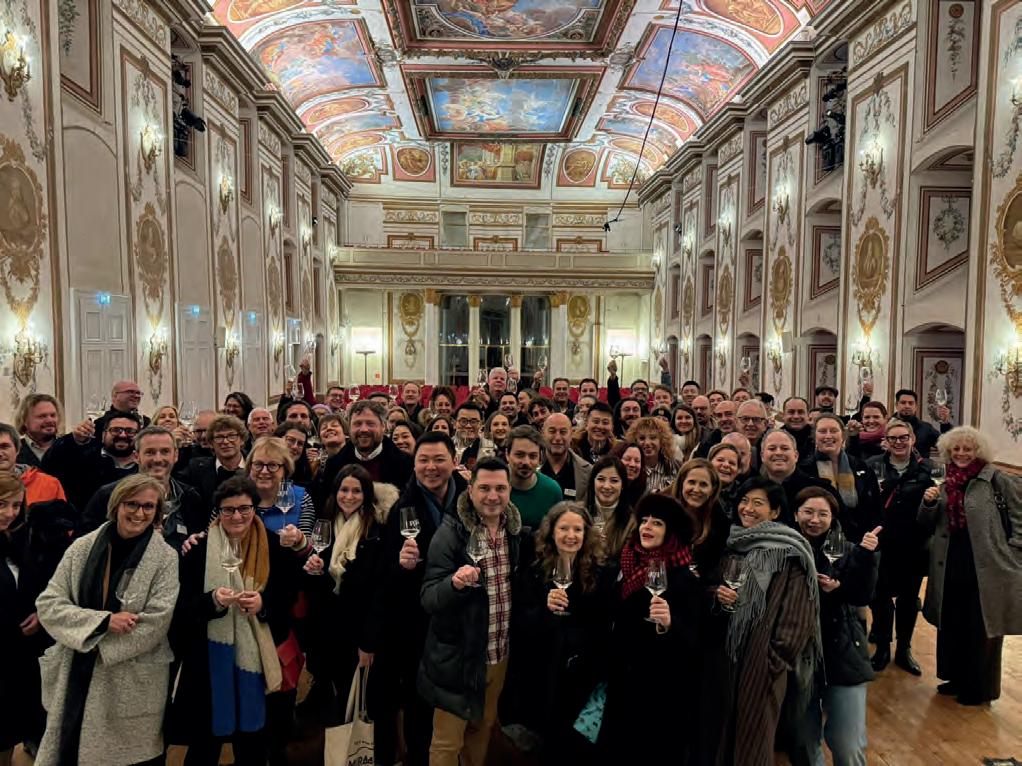
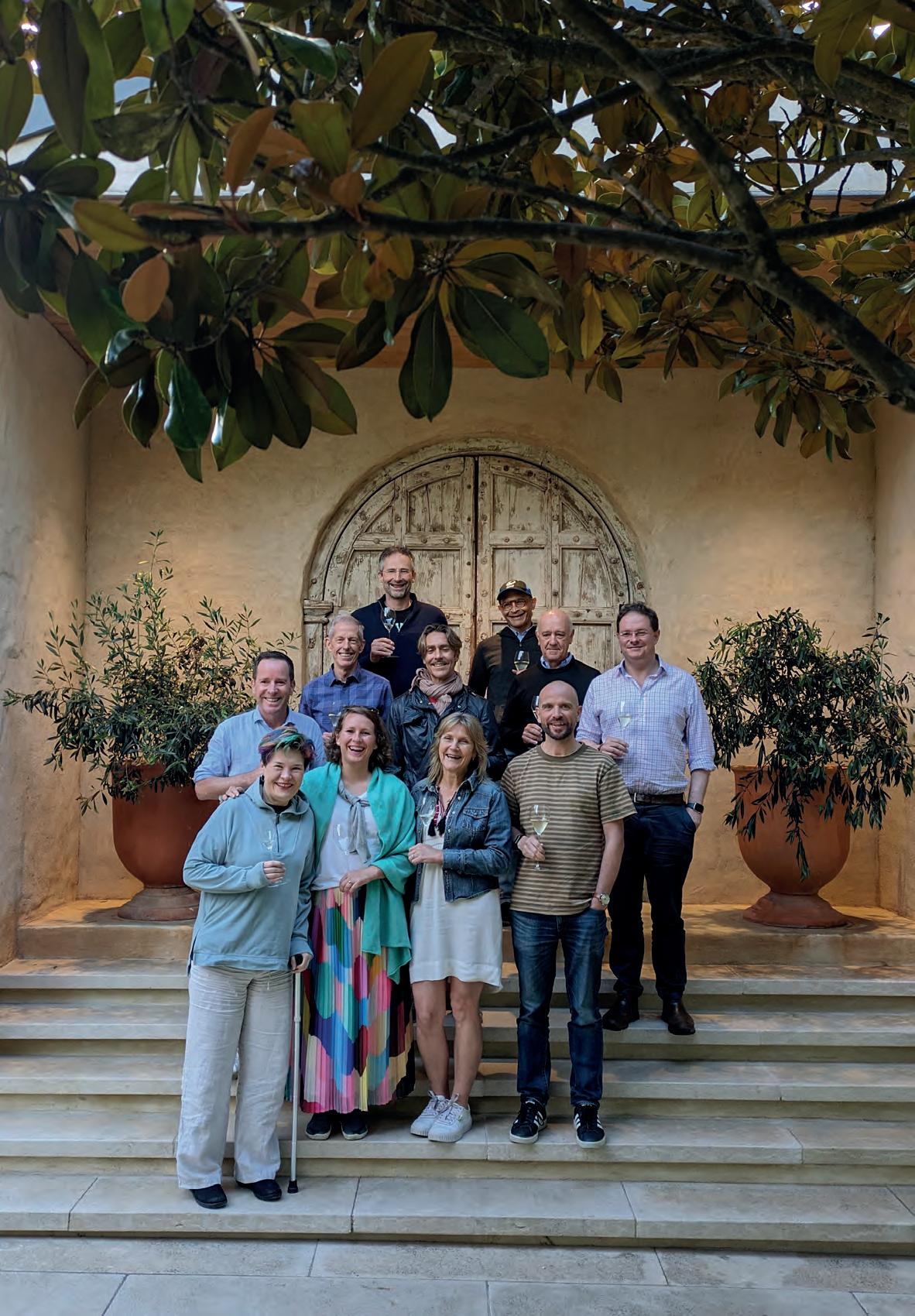
CHIEF EXAMINER’S REPORT
In writing this report I am very conscious that I represent a significant body of MW examiners who all work tirelessly to set, mark, moderate and report on our exam.
As one of the few people in our process who witness at close hand the workings of all three stages of the exam, I am constantly aware of not only the terrific amount of time that is devoted during the exam “season” and throughout the year, but also the intellectual and emotional energy given by our teams of examiners. The vast majority of the 50 or so MW examiners based around the world carry out their work anonymously although some examiners, as far as our confidentiality policies allow, also participate at MW seminars and provide direct feedback on the exams.
Why do we do it? I suspect that all examiners would give somewhat different answers to that question but we all share the common objectives of upholding the standard of the MW exam and with it the MW qualification itself.
Consequently, we are very mindful of the results of this process in which we are all so heavily invested. Every year we are acutely aware of the years of study, research and tasting practice that our candidates invest in order to hopefully achieve success in all parts of the MW exam. As such, no decision is taken lightly, and all marking and moderation is carefully scrutinised.
It is therefore gratifying to be able to report that following the 2023 stage two, closed book exam we have 17 candidates proceeding to stage three, the research paper (RP), resulting in a much-increased pool of candidates working their way towards submitting their papers. This is a no-less critical part of our exam, which requires thinking about ideally ahead of success in the closed book part of the exam. Emma Jenkins and her team of RP coordinators, advisors, examiners and moderators dedicate much time and energy guiding candidates through this part of the MW exam.
It is notable that in 2023 we had five clear passes on both the theory and practical exams, four of these candidates sitting the exam for the first time. This is unusual in the recent history of the exam and I believe should be taken as a very good sign. The 2023 theory exam had a 24.4% pass rate and practical held steady with 2022 at 13.5%. The number of candidates in the exam rooms was 50% greater than in 2022 and much closer to numbers the examiners would normally expect.
An interesting question was raised by Tim Wildman MW on whether the introduction of a single paper resit on the practical exam might yield a higher pass rate. In response to this the examiners took a very detailed look at how this might work and also at how, if this had been possible in previous years, outcomes may have been different. It was a healthy process to question this, and reassuring to understand that the current format of the practical exam is fairest for our candidates.
Neil Tully MW (UK)
EXAMCOM
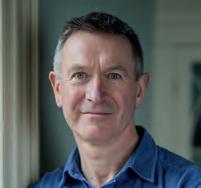
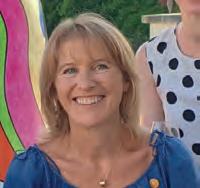

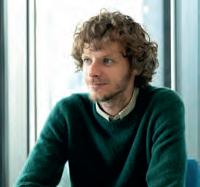


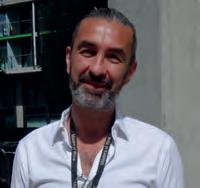
EXAMS
STAGE ONE
121 students sat the Stage 1 Assessment across the three centres:
Adelaide, Australia
London, UK
Napa, USA
STAGE TWO
145 students sat the exam across the three centres:
Adelaide, Australia
London, UK
Napa, USA
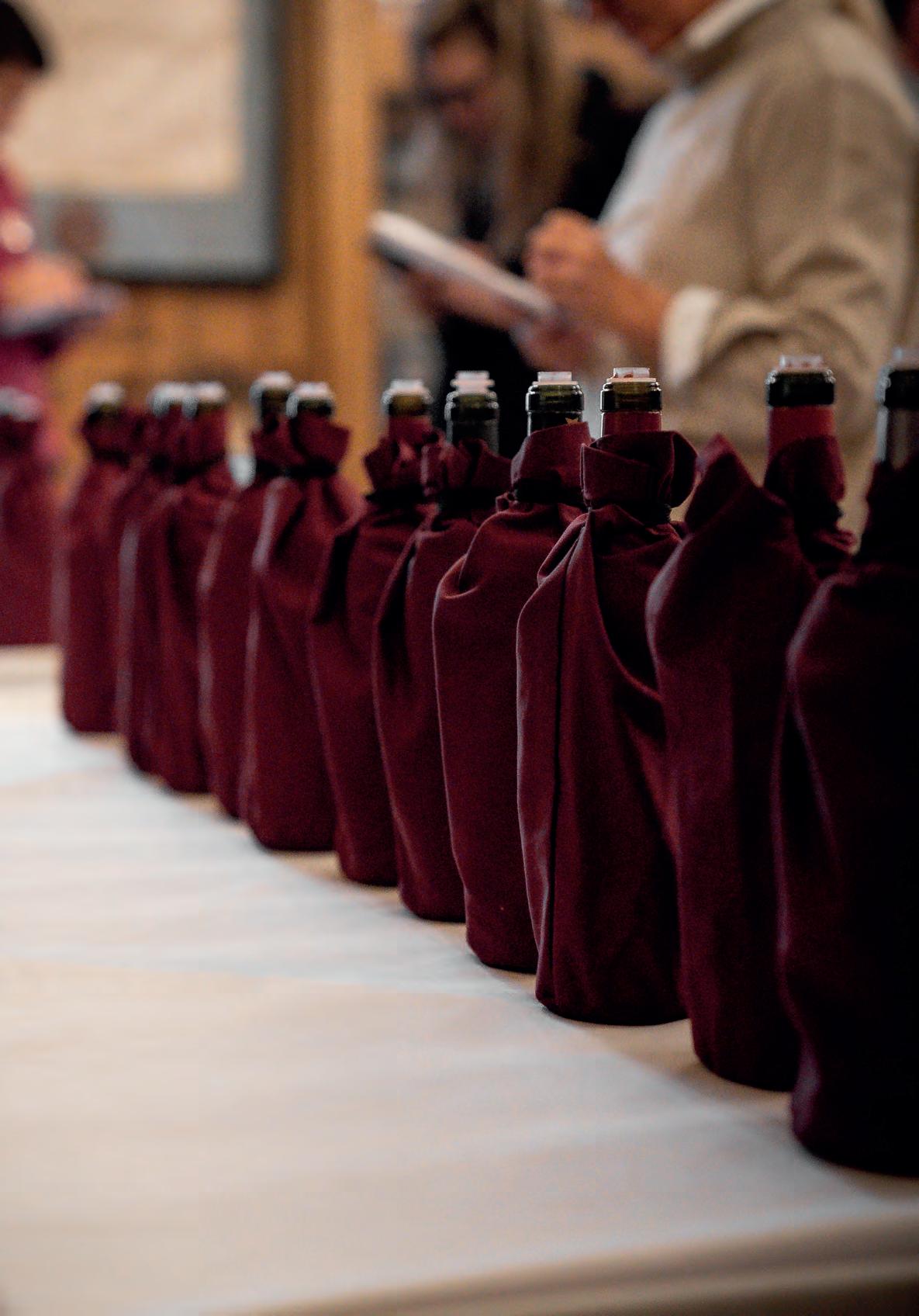
RESEARCH PAPER (RP)
CHAIR’S REPORT
At the time of writing, the Research Paper (RP) examinations are underway and we very much hope to soon be welcoming further new Masters of Wine to the Institute – always the most satisfying part of the process! They will join the two MWs who passed in August 2023 and the five new MWs from February 2024.
Sadly, in the past year we have also had three further candidates timeout, two electively and one via receiving a fail grade. While these outcomes oblige them to begin anew (if desired), recent rule changes thankfully mean they can now apply for readmission directly into Stage three rather than having to begin again at the very start of the education programme as was the former system.
There are currently 31 candidates in stage three, still a relatively low number as the post-Covid lag from the stage two exam (and general life) disruptions endures, but nevertheless a definite improvement upon the previous year’s 24 and the 15 before that. However, with the results of the stage two exams also imminent, we look forward to the arrival of a new intake of candidates ready to develop their chosen research topics.
Pleasingly, this past year has seen a notable improvement in candidate engagement with the preparation for stage three. This has always been a daunting task, as they have so much on their plates preparing for the closed book exams, but we know it pays dividends for those who do undertake research papers. In this regard, assistance from EdCom in terms of familiarising stage one and stage two candidates with the RP scope and requirements, and underscoring its key tenets (research skills, critical thinking, organising data to develop and write an argument) at seminars has been invaluable and we are grateful for the productive working relationship between EdCom and RPCom.
Candidates are also better applying themselves to the practice assignments in developing research paper proposals, the feedback for which has allowed many to hit the ground running when they do enter stage three.
Emma Symington MW and Victoria Mackenzie MW continue to work tirelessly supporting candidates throughout their time in stage three, and last November we were thrilled by the arrival of Vicky’s first child, Emily.
As ever, we remain greatly indebted to the diligence and dedication of our wonderful team of advisors and examiners. These roles are rewarding and we welcome interest from all members who may wish to get involved with the stage three programme.
If nothing else, I urge you to read the RPs available on the Institute’s website –the diverse array of subjects and the wealth of information contained therein is truly fascinating.
Emma Jenkins MW (New Zealand)
RPCOM
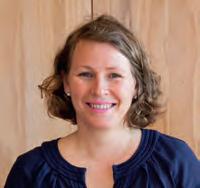

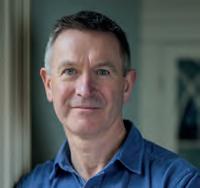
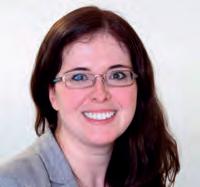

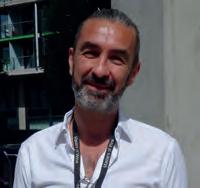
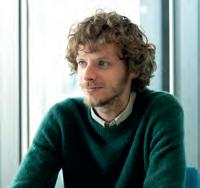
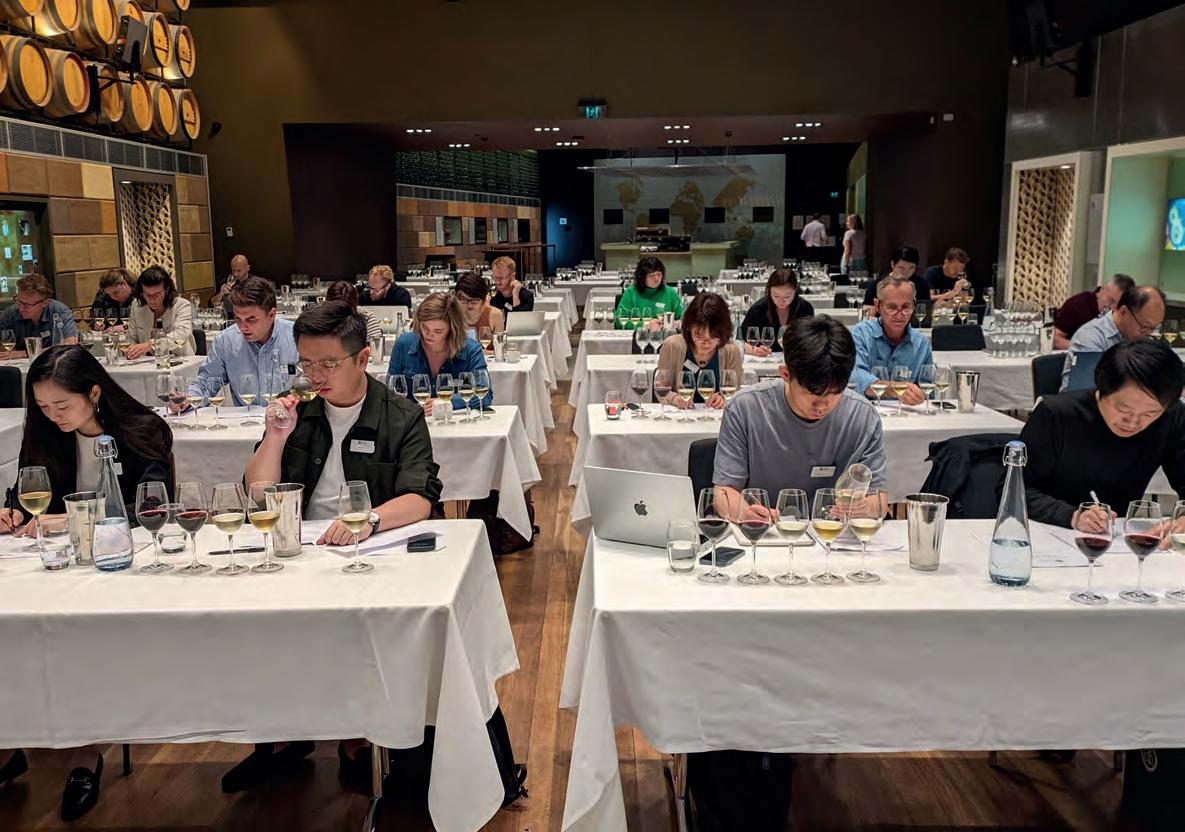
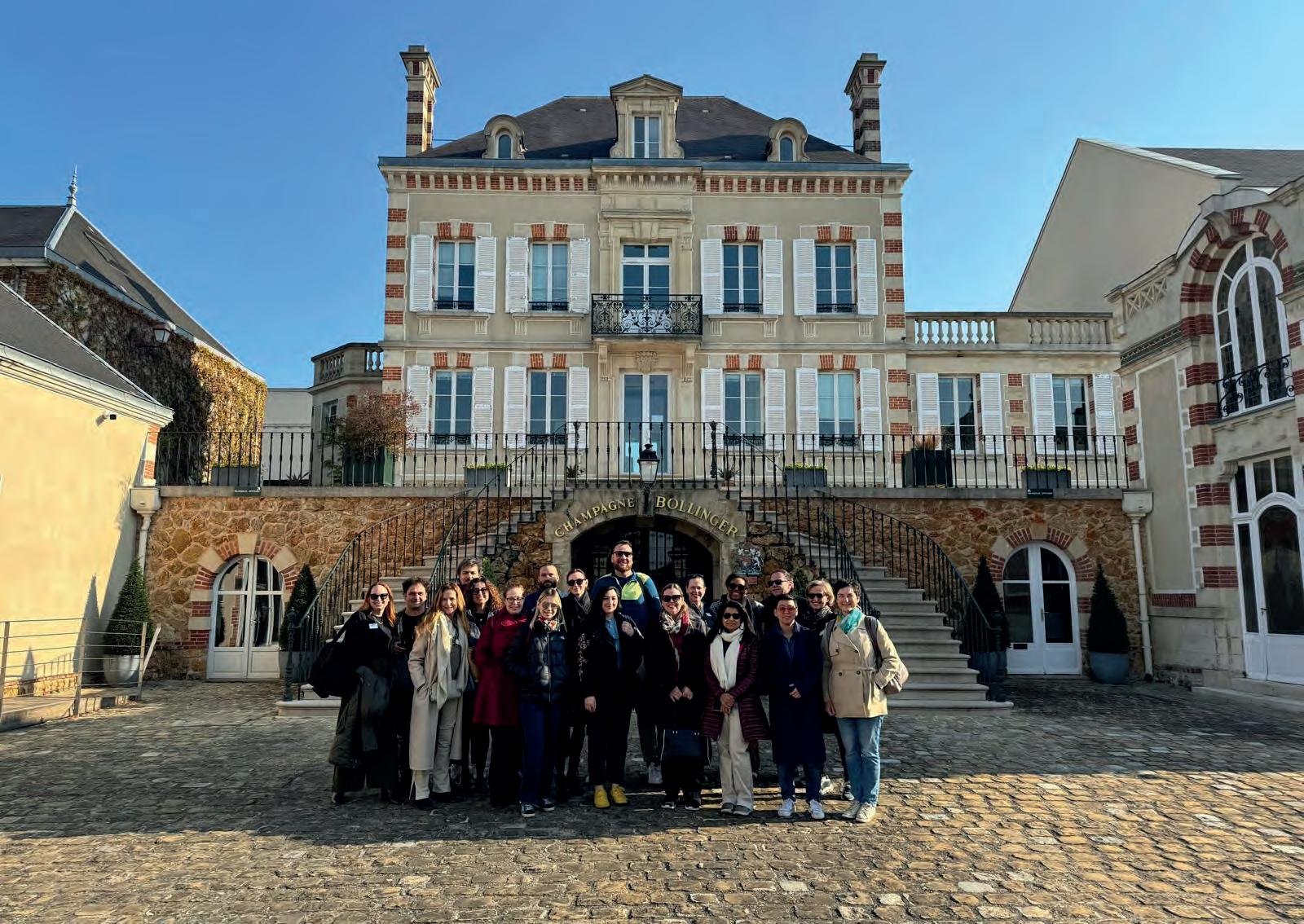
ADMISSIONS COMMITTEE (ADCOM)
CHAIR’S REPORT
The Admissions Committee (AdCom) is committed to encouraging applicants who possess the professional experience, intellectual curiosity, enthusiasm and determination that will optimise their chances of passing the Master of Wine course.
To this end we have tightened-up the eligibility criteria in order to enable only those people in the business of wine to enter the study programme. This way we can better ensure that successful candidates will, in their turn and once they have passed the MW exams, be readily equipped to give back to the student body. Because candidates come from so many different countries, all their qualifications need to be rigorously checked and their academic achievements assessed for equivalence.
We also desire a diverse cadre of people from all over the international business of wine and, in conjunction with the IMW as a whole, we are set on better promoting what it means to be a Master of Wine. This year we have conducted four in-person introductory sessions in: Rheinhessen & Mainz (Germany), Vila Nova de Gaia & Port (Portugal), La Rioja (Spain), and in Washington DC (US). To add to this, and to appeal to potential candidates who were unable to attend the in-person courses, we have also conducted three online introductory sessions.
At the time of writing, the application exams have been taken and are presently being marked. The Admissions Committee will then review every application, taking a closer look at borderline candidates. During this process we cast a spotlight on the balance between a candidate’s exam scores and their academic and professional background. The process is thoroughly holistic and I would like to thank my co-members for their input and ideas, as well as thanks to all the assistance afforded by the patient Lindsay Jones and Sarah Harrison. Over the course of the summer, we shall commence the whole system all over again, seeking to improve and refine it, and ensuring that we are fair to all those who have applied.
Last year (2022/23) we experienced the largest number of applications ever at 161. This year we received a return to around the average for the last five years at 144 applicants. The largest contingent of these came from the US, followed by the UK, China, and France. There were multiple applicants from each of a great many countries, including Australia, The Netherlands, Germany, and even an applicant from Cyprus; in all from 34 countries. These figures are broadly in-line with recent years, though we hope that clearer and more stringent application criteria, as well as the continued promotion of the Master of Wine programme, will optimise our chances of attracting the right applicants through a process that should better prepare them for the demanding journey ahead.
Demetri Walters MW (UK)
ADCOM
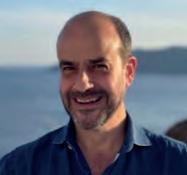

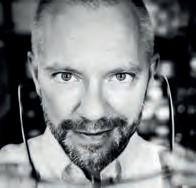
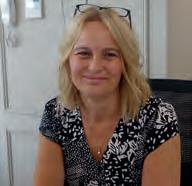

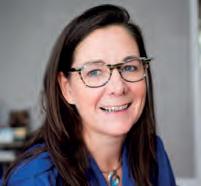
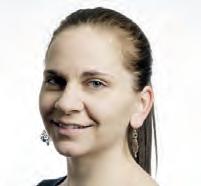
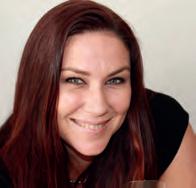

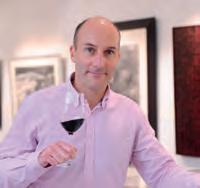

STUDENT TRIPS
The IMW is grateful to its supporters and wine industry contributors for providing students with another compelling lineup of educational experiences. 2023–24 saw exceptional opportunities for those on the study programme to immerse themselves in regions ranging from Margaret River to Bordeaux.
MARGARET RIVER, AUSTRALIA
3 - 6 February 2024
Hosted by Margaret River Wine Region
LODI, USA
10 - 11 February 2024
Hosted by Lodi Winegrape Commission
ROUSILLON, FRANCE
19 – 21 March 2024
Hosted by Supporter Diam Bouchage
BORDEAUX, FRANCE
25 - 28 March 2024
Hosted by IMW Supporter
Conseil des Grands Crus Classés en 1855
PORTO, PORTUGAL
7 - 10 April 2024
Hosted by IMW Supporter Symington Family Estates, The Fladgate Partnership and Quinta do Noval (with AXA Millésimes, Principal Supporter of the Institute)
CHAMPAGNE, FRANCE
21 - 25 April 2024
Hosted by Comité Interprofessionnel du vin de Champagne (CIVC)
SUPPORTER EVENTS
In addition to their generous support of the IMW and MW study programme, our supporters hosted two events to provide exclusive opportunities to MWs and students, including the book launch of Bordeaux Grands Crus Classés 1855 Wine Châteaux of the Médoc and Sauternes by Hugh Johnson and Franck Ferrard.
TASTING THE DIFFERENT ORIGINS OF CAVA
30 November 2023
Hosted by Sarah Jane Evans MW and Pedro Ballesteros Torres MW in collaboration with D.O. Cava
BORDEAUX 1855: BOOK LAUNCH
7 December 2023
Bordeaux Grands Crus Classés 1855 Wine Châteaux of the Médoc and Sauternes by Hugh Johnson and Franck Ferrard. Hosted in collaboration with Le Conseil des Grands Crus Classés en 1855
BURSARIES AND SCHOLARSHIPS
MW students were once again given opportunities to apply for bursaries and scholarships from IMW supporters and friends in the trade.
IWSC SCHOLARSHIP

The IWSC has awarded two Master of Wine students with a £5,000 scholarship to use towards their studies. Jane Dunkley and Gaston Guibert were the recipients of the coveted award.
Students were asked to write an article that acts as a ‘love letter to wine’. Whilst the IWSC were greatly impressed by the entries they received, Jane’s and Gaston’s stood out as exemplary. As part of their award, their articles were published in Club Oenologique, the sister magazine of the IWSC.
Originating from South-Western Australia, Jane Dunkley got her start in the wine industry as a teenager and never looked back. She holds a Bachelor of Applied Science in Wine Science from Charles Sturt University and is a stage two Master of Wine candidate, winning the Commanderie de Bordeaux Scholarship for exceptional performance in the stage one exam in 2021. Her quest to craft world-class wine has led her around the globe, with over two dozen vintages in four different countries. Based in Paso Robles, California she is winemaker for Cakebread Cellars’ new Central Coast project, Bezel.
Gaston Guibert is a native San Franciscan and product of the Portland, Oregon wine community. His wine journey began with an inspiring walk and talk in the vines with Aimé Guibert at Mas de Daumas Gassac in 2012, and has taken him through stages in distribution sales, fine wine retail, production, and the Master of Wine programme. He looks forward to enjoying a lengthy final chapter of that journey as a farmer of southwestern French varieties in the Willamette Valley.

CATENA INSTITUTE OF WINE SCHOLARSHIP
Two Master of Wine students were awarded the Catena Institute of Wine scholarship. The scholarship was launched in 2023 after the Catena Institute of Wine became a research and industry associate of the Institute of Masters of Wine.
Students were asked to write an essay on a specific topic ranging from the genetic diversity of vines or Terroir in a South American location to the role of Science and Art in Winemaking.
The winning candidates were Amanda Barnes and Florencia Gómez. Amanda, who is in stage three of the programme, and Florencia, who is in stage two, both specialise in South American wine and were chosen by Laura Catena, founder of the Catena Institute of Wine, who judged the submissions anonymously.
Amanda Barnes is an award-winning wine writer who has been based in Argentina since 2009 where she writes about the wine regions of South America for multiple international wine publications. She is author of ‘The South America Wine Guide: The definitive guide to the wines of Argentina, Chile, Uruguay, Brazil, Bolivia and Peru’, and when she isn’t studying or writing about wine she enjoys jumping into soil pits with agronomists and riding horses with gauchos in the Andes mountains.
Florencia is an Argentinian wine professional with over 15 years of experience across the wine industry. After getting her winemaking degree, she spent the first six years making wine in Argentina, the US, France, and Croatia. This international approach inspired her to work as an Export Manager for Europe, where she discovered her passion for communicating wine. In 2023, she started Grand Crew Studio, her own marketing
agency, where she uses her 360° experience to rethink wine communications from a unique, holistic perspective. She is a brand ambassador, content creator and communications strategist. She is passionate about modern wine brands with a shared love for innovation, sustainability, technology and consumer trends.
The students were awarded a $2,000 scholarship annually towards their studies, for up to two years. This scholarship will be offered to students every two years.
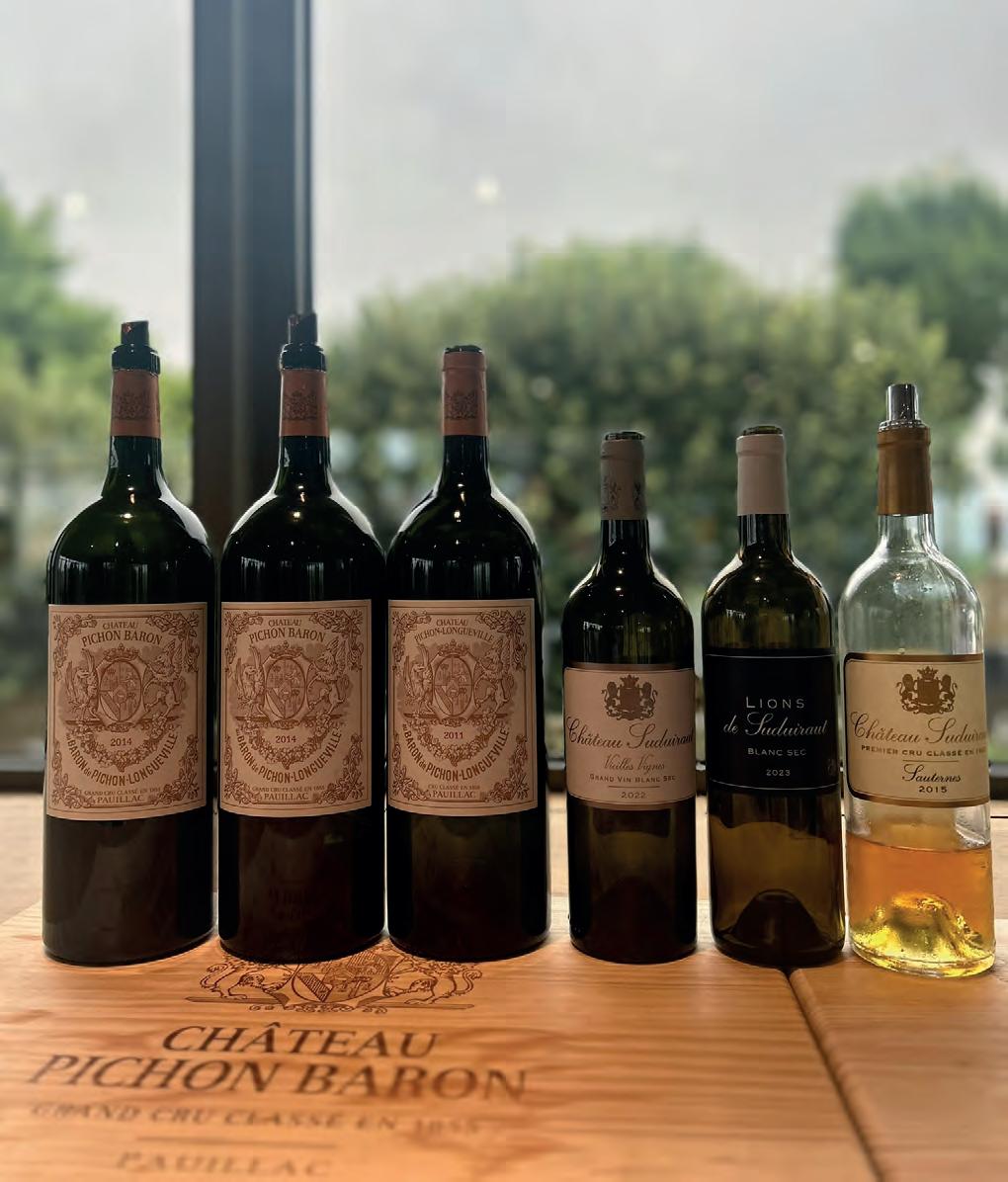
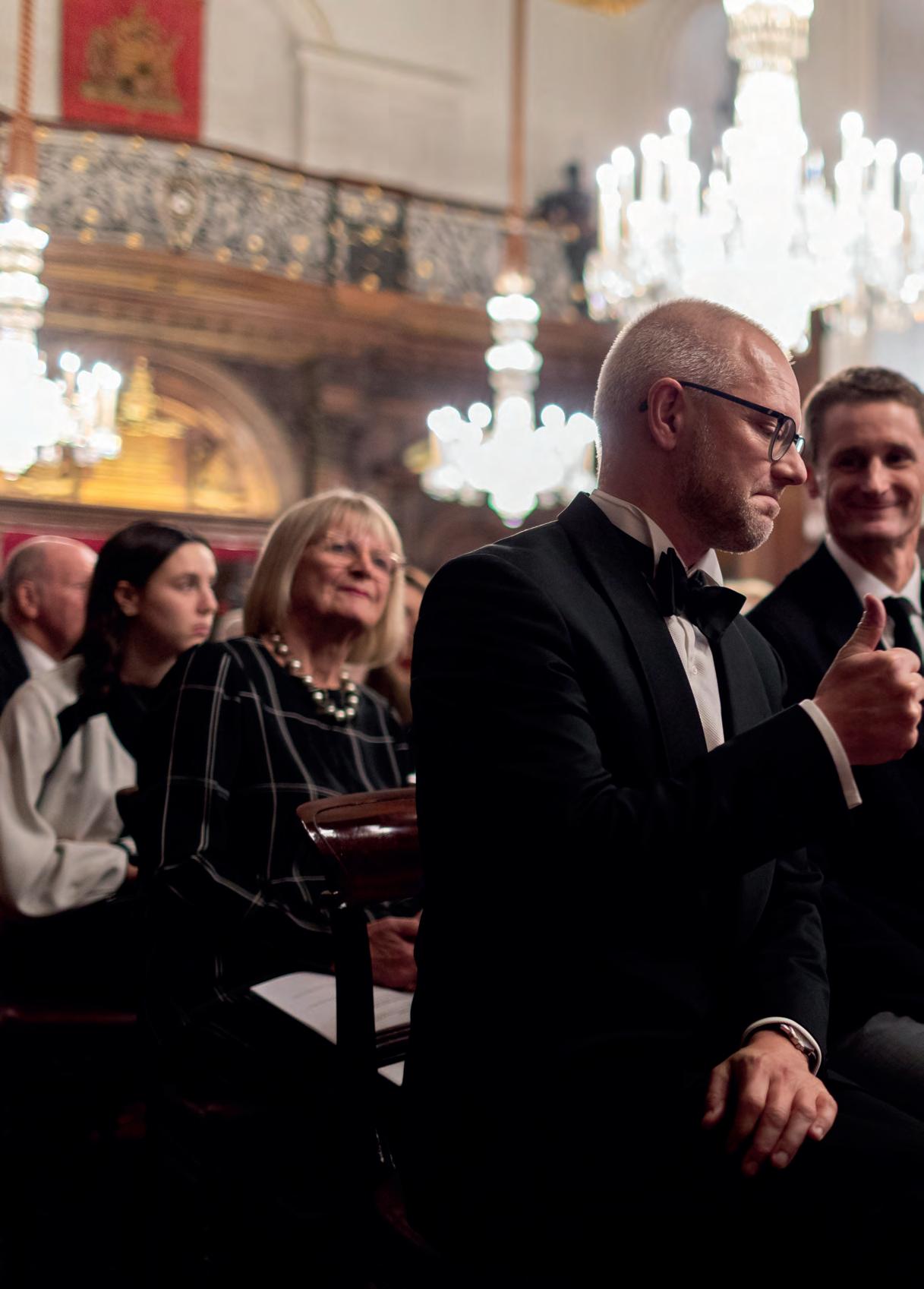
ANNUAL AWARDS CEREMONY:
31 OCTOBER 2023, VINTNERS’ HALL, LONDON
The Institute of Masters of Wine officially welcomed four new Masters of Wine to its membership at an awards ceremony at Vintners’ Hall in London. The four new MWs inaugurated at Vintners’ Hall were Wojciech Bońkowski MW (Poland), Joshua Grainer MW (US), Erin Jolley MW (United States) and Andrea Lonardi MW (Italy). As well as celebrating the new Masters of Wine, the ceremony honoured members who had reached their 50th year as MWs. Hugh Cochrane MW and David Cossart MW passed their MW examination in 1973 and were joined at the ceremony by close family to celebrate the milestone.
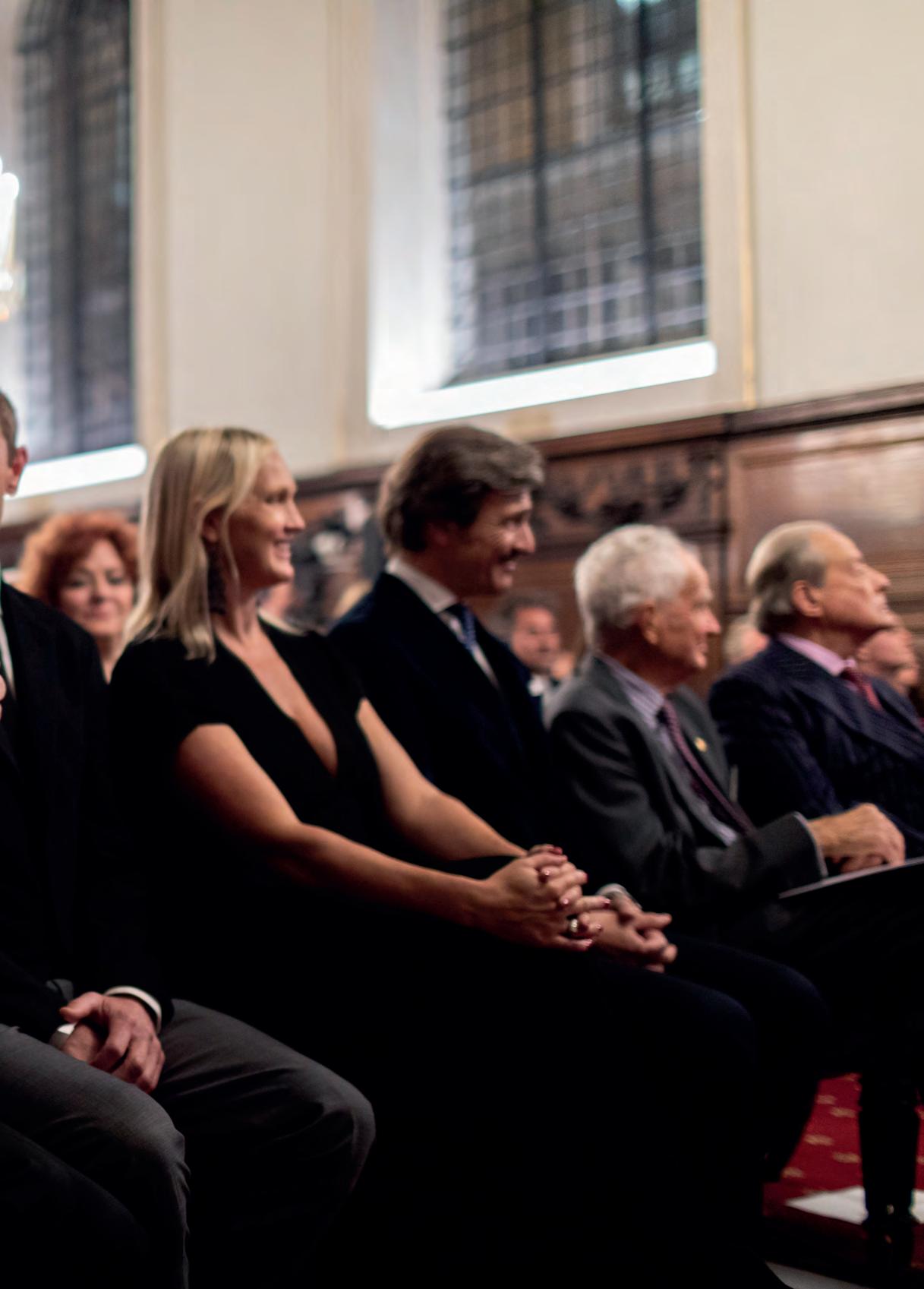
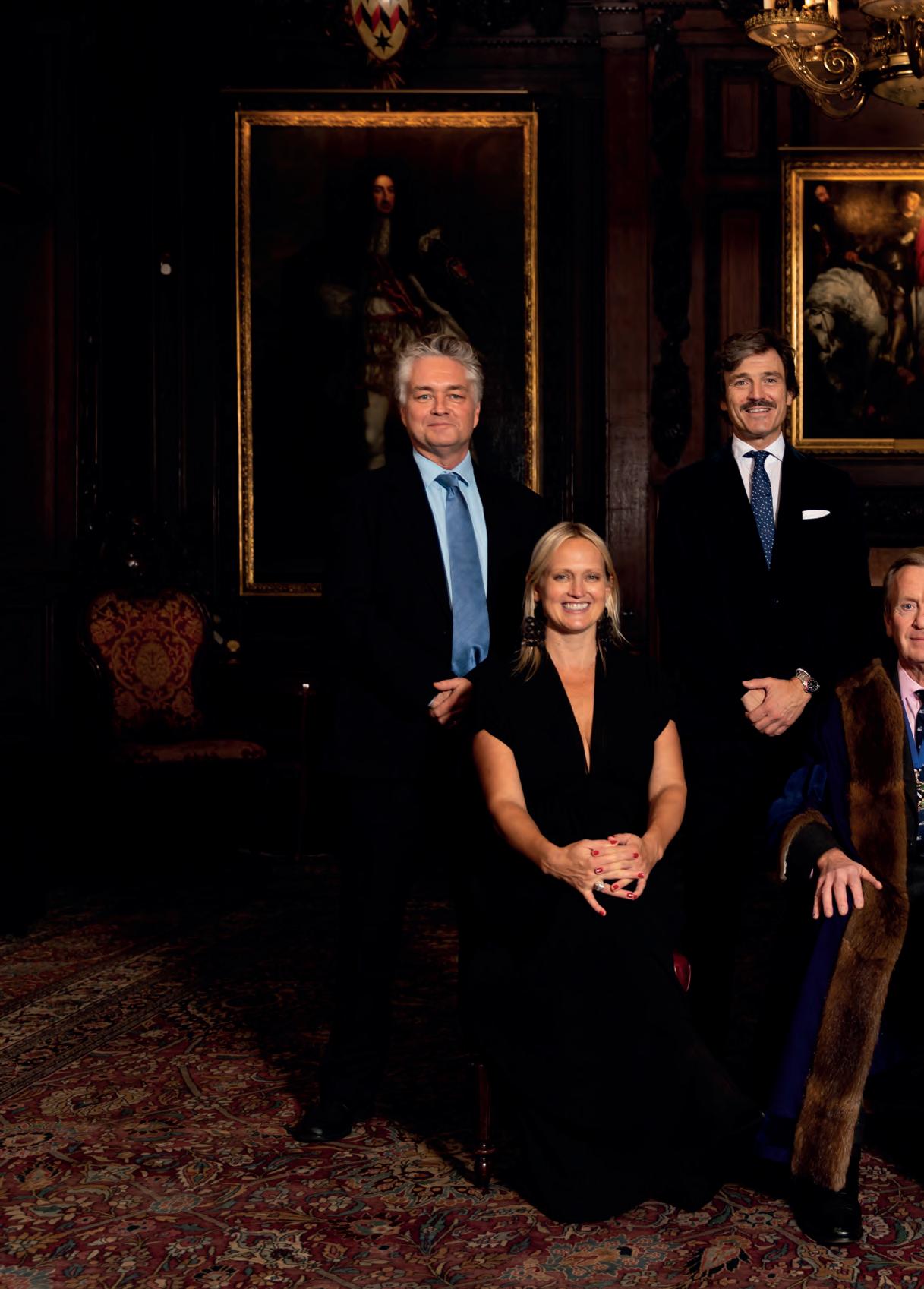
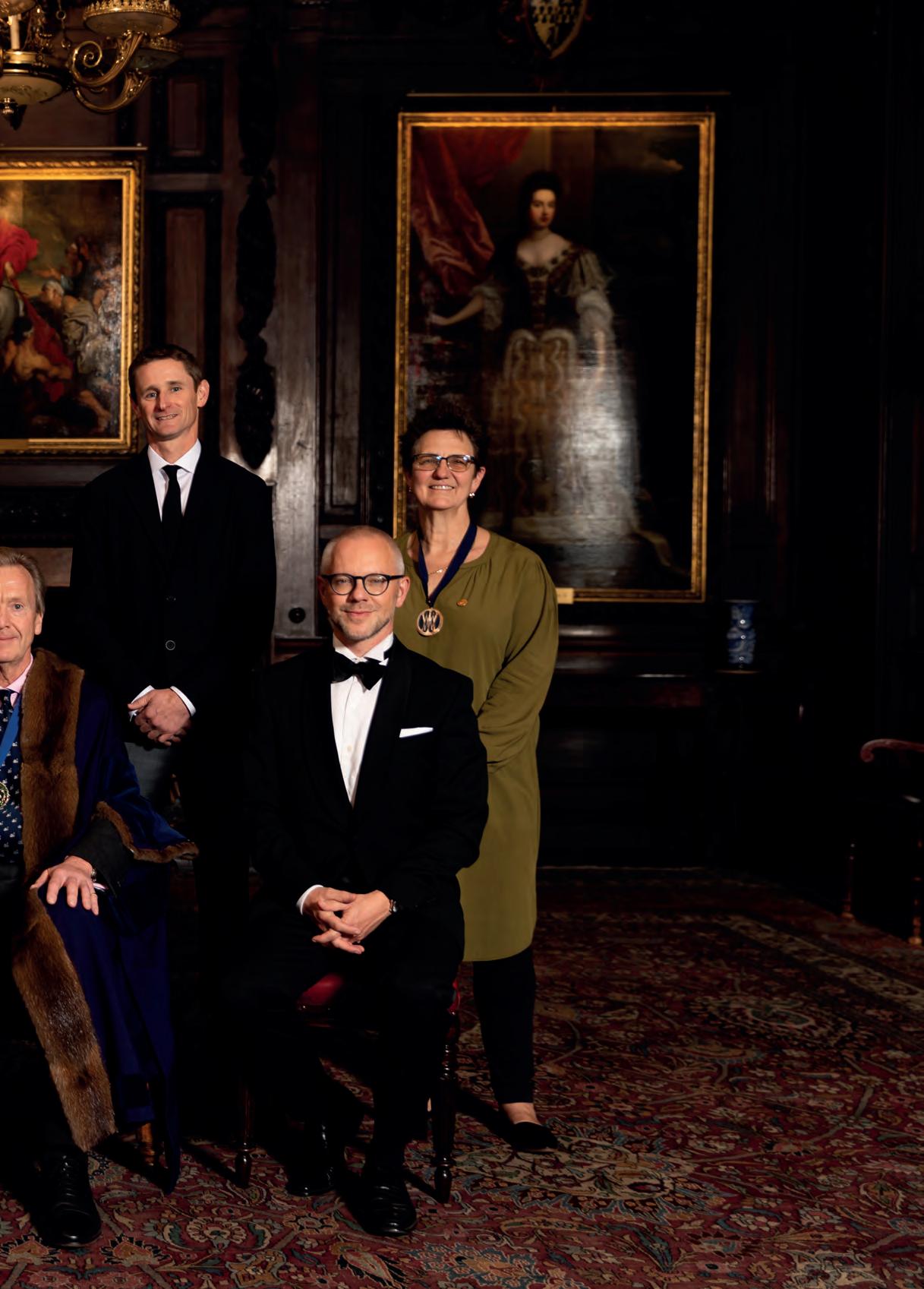
MW AWARDS NOVEMBER 2023
Seven individual awards were given during the ceremony by IMW Supporters and the IMW chair to the MWs who performed exceptionally in a particular area of the MW exam.
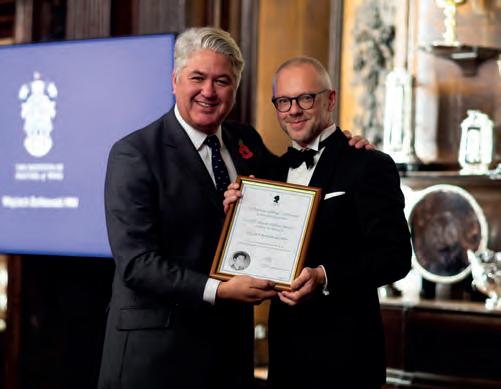
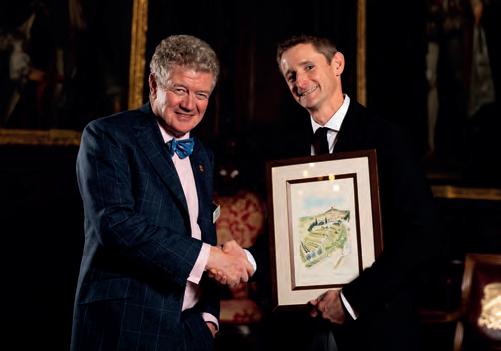
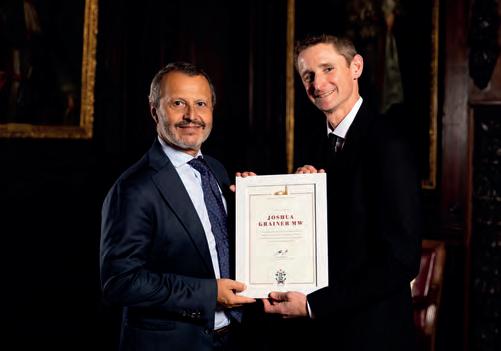
THE MADAME BOLLINGER MEDAL FOR HIS OUTSTANDING TASTING ABILITY
Wojciech Bońkowski MW
Presented by Justin Liddle, Managing Director of Mentzendorff on behalf of Etienne Bizot, CEO of Bollinger Group
THE QUINTA DO NOVAL AWARD
FOR THE BEST RESEARCH PAPER
Joshua Grainer MW
Presented by Christian Seely, Managing Director of Axa Millésimes
THE ROBERT MONDAVI WINERY AWARD
FOR THE BEST PERFORMANCE ACROSS ALL THE THEORY PAPERS
Joshua Grainer MW
Presented by Sandro Sartor, President and Managing Director of Ruffino, a Constellation Brands Company
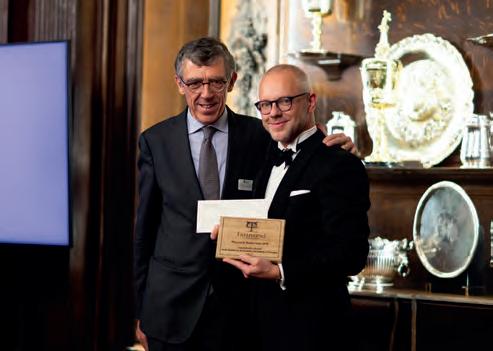
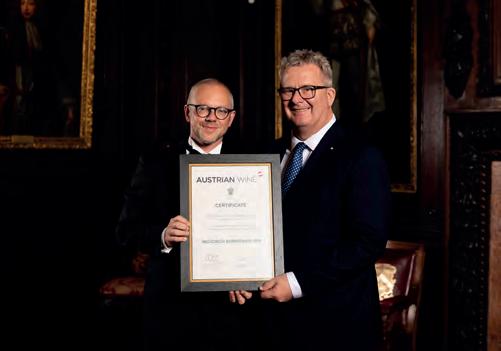
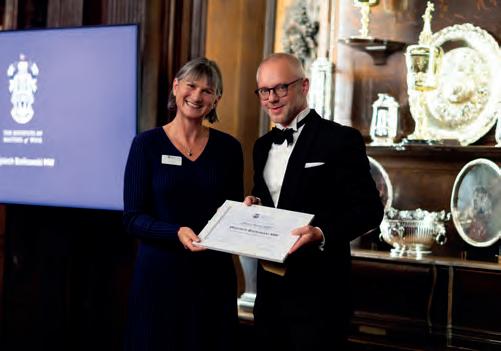
TARANSAUD TONNELLERIE AWARD
FOR EXCELLENCE IN THE PRODUCTION AND HANDLING OF THE WINE PAPER
Wojciech Bońkowski MW
Presented by Henri de Pracomtal, Chairman and CEO, Taransaud Tonnellerie
IMW OUTSTANDING ACHIEVEMENT AWARD
SPONSORED BY THE AUSTRIAN WINE MARKETING BOARD (AWMB)
Wojciech Bońkowski MW
For overall performance in all areas of the MW exam
Presented by Chris Yorke, Managing Director of Austrian Wine
CHAIR’S AWARD
FOR THE TOP PERFORMANCE IN THE BUSINESS OF WINE PAPER
Wojciech Bońkowski MW
Presented by Kate Tuck in memory of Philip Tuck MW
VINTAGE MASTERS OF WINE
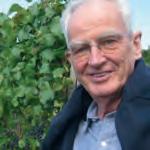
50 YEARS OF MEMBERSHIP
Hugh Cochrane MW
Hugh was educated at Bryanston School, Dorset (1953 - 1958). On leaving he entered the wine trade as a trainee with Findlater Mackie Todd & Co Ltd. and in 1959 took a three-month break to study wine production in France. In 1960 he joined Fergusons Ltd, Reading, until 1965 when he joined Saccone & Speed Ltd. After several appointments he became wine development manager and director of Percy Fox & Co Ltd. with responsibility for the group’s wine buying, product knowledge training and representation at external trade organisations. In 1984 Hugh became managing director of City Vintagers London Ltd. until 1987 when he was appointed buyer of the Wines and Spirits Department at Harrods. From 1991- 2001 he served as vice president, European sales at Penfolds Wine Group (Southcorp Wines).
Over the years he has been a member of the IMW Council and chairman of the Education Committee. He also chaired the Wine and Spirit Association’s French, German and Spanish Wines Committees. In 1983, he was awarded the Chevalier de l’Ordre du Mérite Agricole.
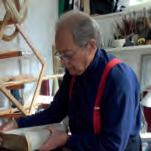
David Cossart MW
David Cossart was born in Madeira, as part of the seventh generation of the Cossart family since the establishment of Cossart Gordon & Co. Ltd in 1745. David’s vocational entrance into wine began with his training with Stowells of Chelsea, a member of the Whitbread Group. In 1963, David spent four months visiting major European wine regions, and whilst in Porto, was invited to join Croft & Co after completing his travels. Following 18 months there, David returned to the UK and began working for Gilbeys and I.D.V., the parent company of Crofts. He worked for other member companies of the group, including being assistant to David Peppercorn MW at Peter Dominic, and later starting the Education Course for Shop Managers.
In 1969, David joined Michael Broadbent MW at Christie’s Wine Department, where he was responsible for handling overseas clients, mainly in America. It was four years later, in 1973, that David passed the Master of Wine exam.
Subsequently, ‘Christie’s Wine Publications’, run by Michael Broadbent MW, published the book “Madeira, the Island Vineyard”, which David assisted his father, Noel Cossart, to write, and in 1974 David joined Ellis Son & Vidler Ltd, owned by Major Bruce Shand M.C., as a director. He later became buyer and managing director.
The Agency for the UK and US, for Cossart Gordon and Co was incorporated and it was during this time that David was invited to join the committee of four Masters of Wine, then headed by Major John Surtees, serving the ‘Government Hospitality Fund’. In the late 1980s, David joined his old friend John Avery MW at Avery’s of Bristol, together with the Agency for Cossart Gordon and Co Ltd.
After serving an extensive career in the industry, David decided to retire from the wine trade to pursue various other passions and interests, including book binding and restoration, making picture frames, doing gold-leaf work, and achieving a Diploma in painting Faux Marbre and Faux Bois.
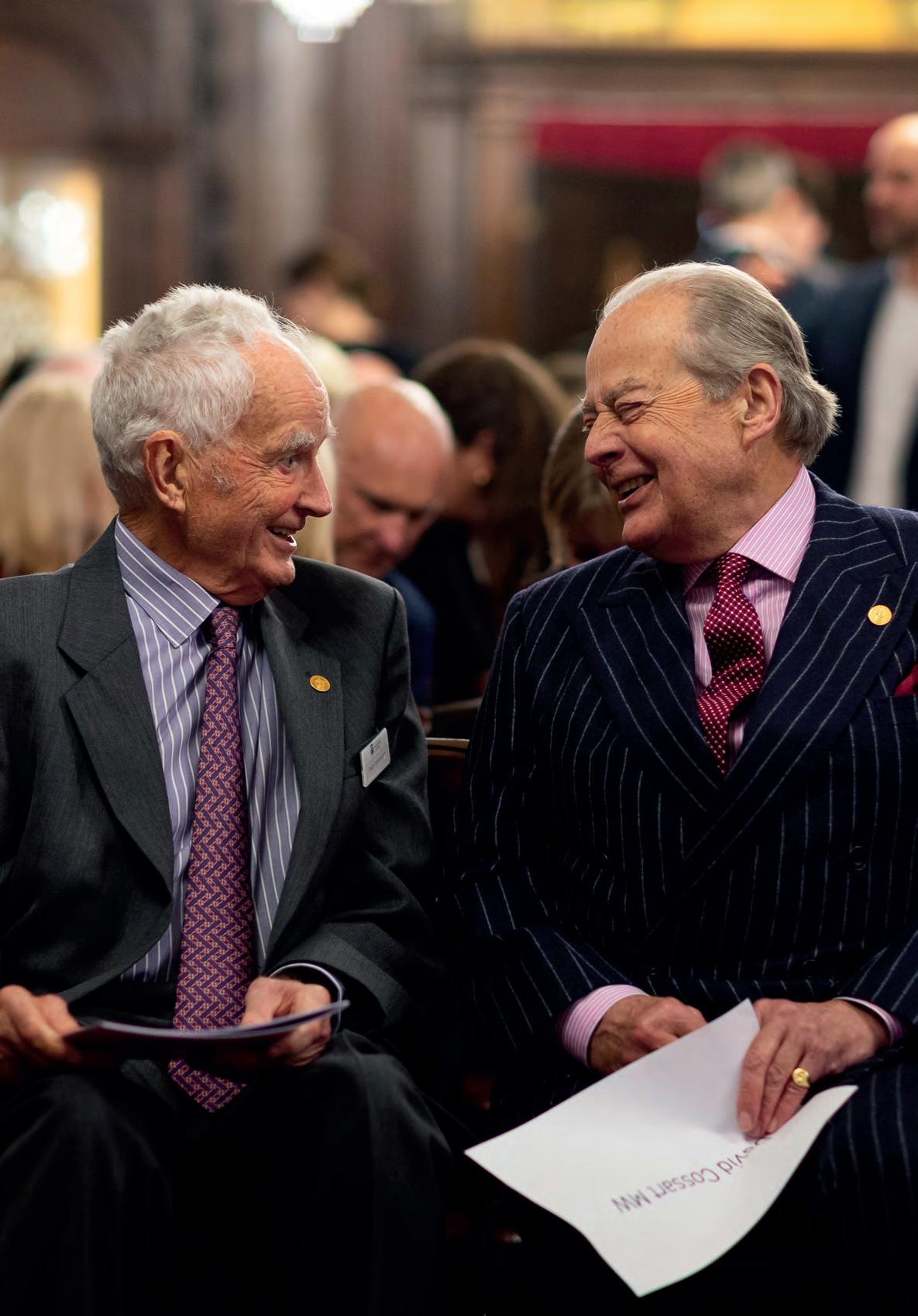
SUPPORTER SUMMIT
28-30 June 2024
Hosted by AXA Millésimes at Château Pichon Baron, Bordeaux, France
In June 2024 the IMW, with the generous support of Axa Millésimes, hosted 34 delegates from across the IMW and its supporter network for a weekend of fruitful discussion. It was a pleasure to be able to bring together representatives from 20 of our supporters under one amazing roof at Château Pichon Baron. This was the first face to face supporter gathering since 2017 in the UK office, previously Porto in 2016 (hosted by Symington Family Estates) and at Aÿ in 2014 (hosted by Champagne Bollinger), when a smaller number of supporters met together with the IMW Council.
Over two packed days we were able to share IMW’s plans for the future, highlight some of the challenges faced by the organisation and by the wine industry in general, and learn from our supporters as we identified ways to maximise the value of our relationships and considered how best to work together for the future.
Huge thanks to AXA Millésimes and to the entire team at Château Pichon Baron for hosting us throughout. To Château Lascombes for putting on a lovely opening dinner, and to Châteaux Pichon Baron, Pédesclaux, Lilian Ladouys and Lynch-Moussas for providing accommodation.
Without its supporters the IMW would not be able to offer the quality, depth and variety of activities that we do. Our students and members all benefit from this. I am only sorry that capacity limitations meant we could not include all our supporters at the summit as nothing beats getting together. To be repeated.
Julian Gore-Booth
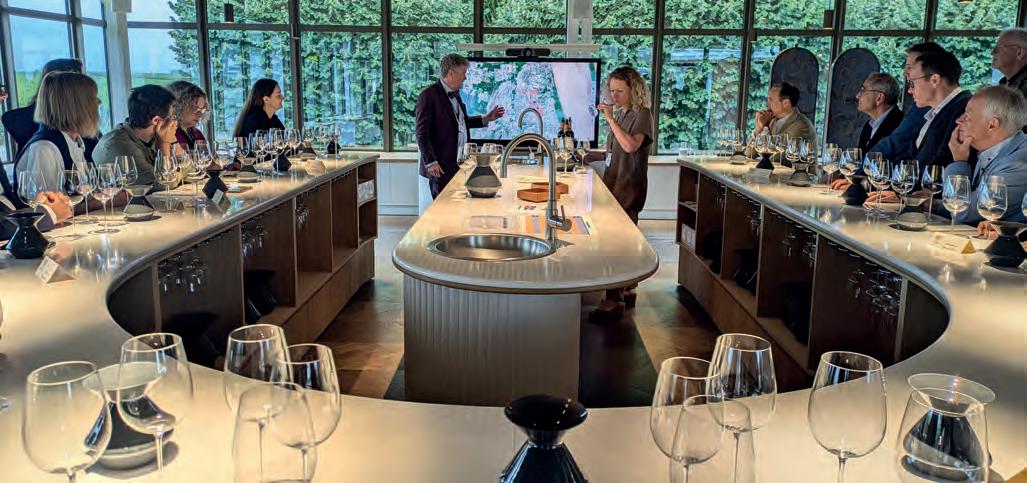
IMW SUPPORTERS (2023-24)
The IMW could not fulfil its mission without the generosity of its supporters. Their contributions of time, expertise, venues, wines, funding and other services are a huge benefit to both students and the membership, and enable the Institute to continually strengthen its operations in an evolving industry landscape. This past year the IMW is proud to welcome six new supporters into the fold.
PRINCIPAL SUPPORTERS
Austrian Wine
AXA Millésimes
MAJOR SUPPORTERS
Deloitte & Touche LLP
Deutsches Weininstitut (The German Wine Institute)
E. & J. Gallo Winery
Jackson Family Wines
SUPPORTERS
Bottlebooks
Le Conseil des Grands Crus Classés en 1855
Casella Family Brands
Diam Bouchage
D.O. Cava
González Byass
Grupo Rioja
Hatch Mansfield
FOUNDING PARTNER
The Vintners’ Company
Constellation Brands
Champagne Bollinger
VSPT Wine Group
Octavian Wine Services
Riedel
Taransaud Tonnellerie
Washington State Wine Commission
Wine Australia
Wine Institute (California Wines)
Hillebrand Gori
Istituto Grandi Marchi
Lallemand
MACH Flynt, Inc./DC Flynt MW Selections
Maison Louis Latour
Moët Hennessy Wine Estates
67 Pall Mall
Primum Familiae Vini
Südtirol/Alto Adige Wines
Swiss Wine
Symington Family Estates
Trentodoc
VDP.Die Prädikatsweingüter
Waitrose & Partners
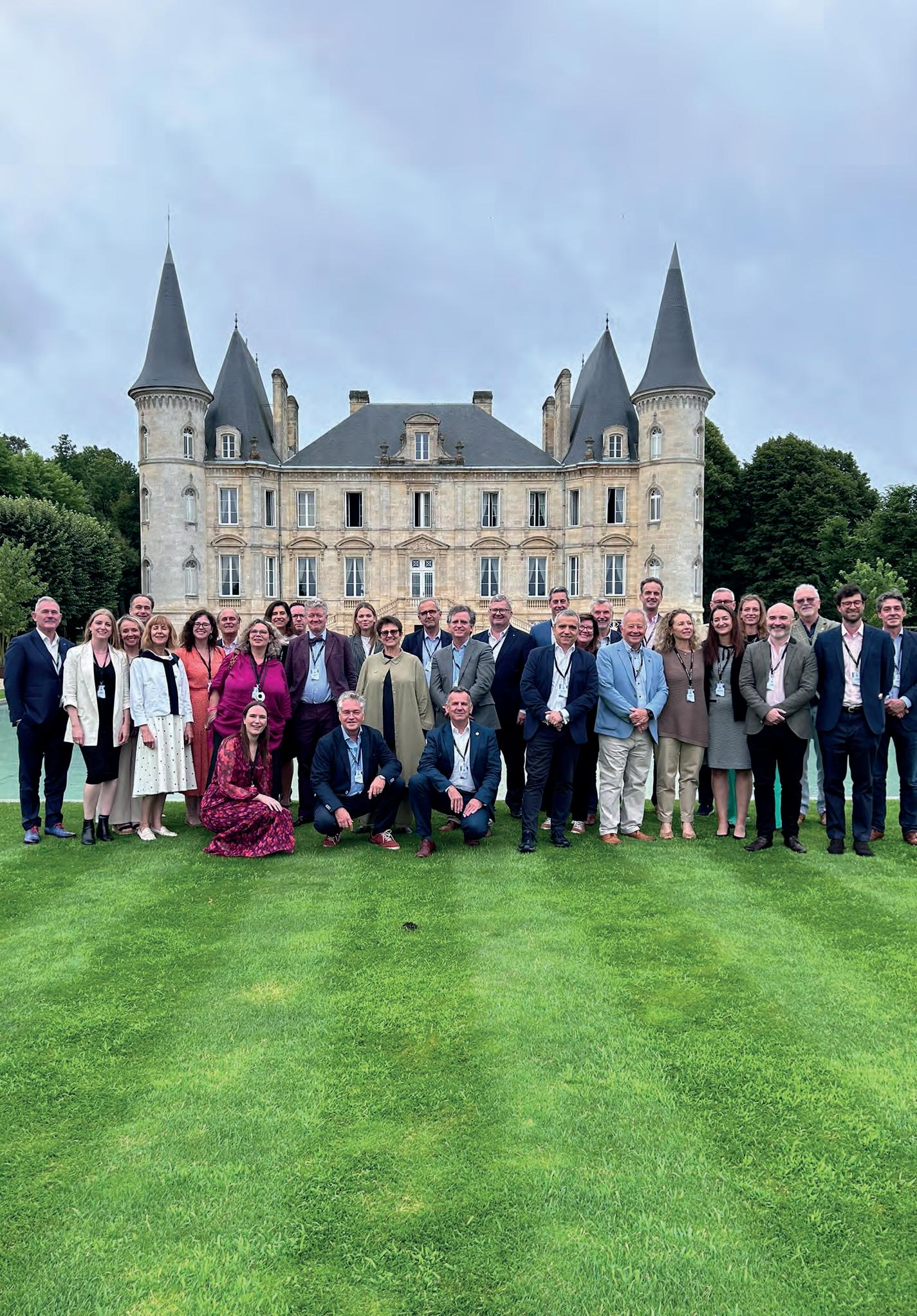
IMW RESEARCH AND INDUSTRY ASSOCIATES
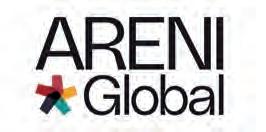

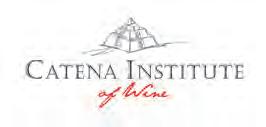
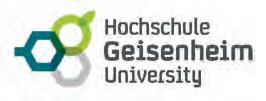

NEW SUPPORTERS
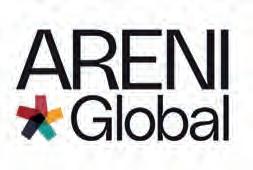
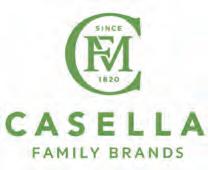
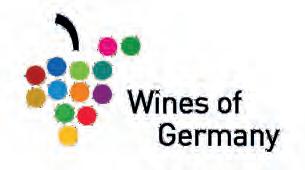
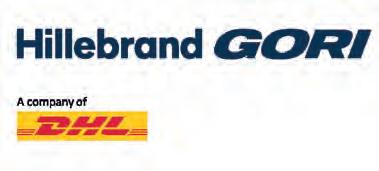
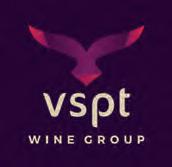
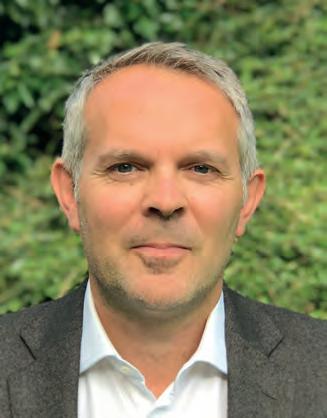
HONORARY TREASURER’S REPORT
Accounts for the year ended 31 March 2024
OVERVIEW
The finance committee had lain dormant for a while and was reconvened in May 2022, with P Harden MW (Honorary Treasurer) as chair, B Boyle MW, D Forer MW, C van Zyl MW and D Halford FM and A Garforth MW ED.
In September 2023 the Finance Committee was renamed the Finance and Audit Committee (FAC), to better reflect its scope of responsibility and given the very challenging audits the IMW experienced during Covid, in 2021/22 and again in 2022/23.
The finance function at the IMW has undergone a huge amount of change in the last two years. Daleen Halford, finance manager, left in early 2023 and a new role, head of finance & resources, was then taken up by Gary Honeyman. Saso Janeski, the finance officer, left early in 2024 with Holly Hyde joining in July 2024.
This period of change and long periods with reduced capacity caused a lot of disruption combined with the financial pressures the IMW has faced due to Covid.
FAC adopted new terms of reference in early 2024 and changed its composition, broadening its membership from outside of Council with new members Jonny Orton MW, Beth Pearce MW and the departure of David Forer MW.
FAC is tasked by Council to oversee and report on the IMW’s financial situation and to recommend improved financial practices where appropriate.
FAC has been meeting quarterly to keep abreast of the current financial situation, the operational needs and challenges of the finance function and to monitor audit progress.
The IMW changed auditors this year from Kingston Smith to Azets after running a tender process in early 2024. FAC oversaw this process.
The IMW has now also adopted a reserves policy which the executive team, FAC and Council are working extremely hard to fulfil.
Hopefully the IMW finance function is entering a period of stability and FAC will try and help where possible in achieving this. Things will be a lot less stressful when the IMW has rebuilt its reserves.
Philip Harden MW (UK)
INCOME, DIRECT EXPENDITURE AND GROSS SURPLUS
On to the good news. Student numbers were robust in the financial year, seminars were full and therefore study program income has continued to rebound to £1.88m, up from £1.72m in the previous year. Direct costs associated for the provision of student education have therefore also risen but specific items such as wines and wine freight have risen significantly more than inflation. Attendance for the Symposium in Wiesbaden was strong, as was supporter income, resulting in revenues of £637k in the year. This additional revenue along with management of controllable costs resulted in an increase in the surplus from the previous year to £84.7k from £44k.
The table below shows the breakdown of income by area of activity:
The table below shows the breakdown of direct expenditure (including salaries) by area of activity:
The financial results for the year were as follows:
More detailed analysis and explanation of the results follows.
Corporate support
Supporter income has increased to £476k, up from £340k in the previous year. The strength of the brand is evident with almost all of the current Supporters renewing their contracts and new Supporters wishing to become involved. This commitment from our Supporters was witnessed in June 2024, where many of our principal and major supporters attended the Supporter summit held at Château Pichon Baron for a comprehensive meeting about what all the related parties can gain from this continued relationship. The current outlook for 2024/25 remains positive.
Education and exam
In the year ended 31st March 2024 we achieved a gross surplus of £333k versus £533k in the previous year and £31.4k in 2021/22. Student numbers remain buoyant with a strong field of applicants for stage one in May 2024. An additional seminar was held in Bolney in 2023/24 to accommodate the increased size of the stage one applications, and this is being considered again for the 2024/25 academic year. The total student body has shown an increase to 367.
EDUCATION AND EXAM INCOME AND EXPENDITURE
increased slightly to £109.3k, up from £102.4k in the previous financial year due to increase in fees and additional members. Events and trips
Both revenues and attendees in events and trips continued to bounce back from the restrictions of previous years. There were nine MW and student trips around the world which varied from South Africa to France to Australia. This has seen income increase to £114.8k from £40.1k in the previous financial year.
CENTRAL CHARGES: ADMINISTRATION, GOVERNANCE, MARKETING AND COMMUNICATION EXPENSES
The following table shows a breakdown of overheads for the year:
Central charges decreased over the year, as although many costs increased, there were several areas where savings and reductions were realised.
There were several employee changes in the year, a new Head of Finance and Resources and a new Education Assistant. The departures of the Exam and RP Coordinator and the Finance Officer were not replaced in the year but have subsequently been filled since April 2024.
‘General expenses’ decreased by nearly 25% with savings being made in audit fees through better preparation, legal and professional fees, exchange rate differences and sundry costs. Further savings are being sought for the 2024/25 year within this area but is proving challenging with the constant increases in costs across the board.
The movement in ‘financing charges’ is due to the increase in transactions being made by credit cards which carry a high percentage charge. The IMW is exploring ways of controlling these charges as they continue to increase year on year as more transactions are made in this way.
Central overheads
£400,000
There was no tax to be paid in the 2023/24 financial year. £150,000 £350,000
£300,000
£250,000
£200,000
£100,000
2023/24 2022/23
Balance sheet
A summarised balance sheet is set out below:
Fixed assets
Fixed assets have decreased to £6.9k vs £8.9k the year before due to assets being fully depreciated but not needing to be actively replaced.
Current assets
Debtors have reduced due to the repayment of the £300k loan to the MWEC in 2018. Other debtors are now being actively chased to reduce this further in the 2024/25 year.
Creditors
The CBIL (Covid Business Interruption Loan) of £250k taken out in 2020 was fully repaid by September 2023. The outstanding loan of $65k from IMWNA was also repaid in the year. As with the debtors, continued work on this area to resolve historical issues has started so the number is expected to reduce over the course of the coming year.
CONCLUSION
It was stated in last year’s review that the IMW needs to focus on rebuilding its reserves and this has been evident throughout the year as cash flow challenges continue in the ‘pinch’ months of September and March. Although the £84.7k added this year has increased the size of the reserves, it is forecasted that the Institute needs to have a reserve of more than £250k to be able to manage these ebbs and flows efficiently. The budgeted surplus for 2024/25 should again add to this building reserve and certainly bring the Institute closer to this target.
With the applications for the study programme being significantly more than the available spaces, the continued engagement from our supporters and an increasing number of events being held, the revenues for 2024/25 are expected to be in line, if not slightly ahead of budget. The challenge will be in the controlling of costs. The IMW has seen significant increases in the costs associated with running the study programme, especially in areas such as freight and the costs of the wines themselves, and with the cost of travel and accommodation also rising at above inflationary levels then the support needed to run these will also be challenging.
Although the brand remains strong, there are some challenging times ahead for the IMW in being able to continue to offer the study programme in its current format with the current pricing structure in place.
Philip Harden MW (UK) Honorary Treasurer
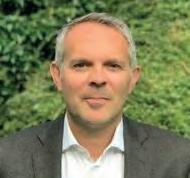
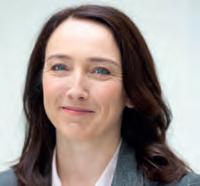

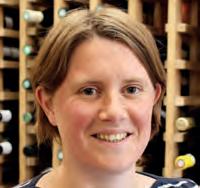
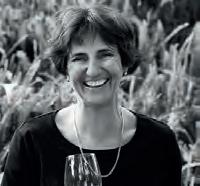
EX-OFFICIO
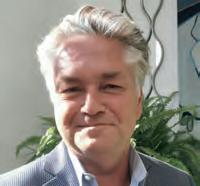

MASTERS OF WINE ENDOWMENT COMANY (MWEC) CHAIR’S REPORT
Whilst MWEC has an over-arching objective to grow the endowment fund to provide long-term stability for the IMW, much of the year has been committed to providing short-term cash support as the Institute navigates the post-covid period with negligible reserves, albeit with higher student numbers. High inflation and rising interest rates have prompted the Board to work with Julian and his team to understand how we can strike the balance between growing the fund in the most cost-effective manner whilst providing short-term support. As detailed earlier, the good news is that the Cazenove investment has grown by 8% year on year, whilst the property valuation remains stable, but there is recognition that MWEC needs to become more proactive in identifying new sources of revenue if we are to grow the fund to a significant size that can support the IMW, including through the provision of bursaries and high value wines in support of the education program.
As part of this work, we are delighted to welcome Matt Deller MW and Will Lowe MW in March of this year and look forward to the appointment of 2 new co-Chairs at the AGM. I would therefore like to take this opportunity to thank Pierpaolo Petrassi MW and Philip Goodband MW, who will leave the Board in September having completed two three-year terms of office. Their wisdom and guidance has been gratefully received, particularly during the turbulence of covid. I would also like to take the opportunity to formally thank Laura Evans MW who stepped down as Chair of MWEC last year with little fanfare. It would be difficult to overstate the commitment that Laura has made to the IMW & MWEC in over 15 years in office. She stepped away quietly, as is her style, hence I would like us all to acknowledge her most significant contribution to our organisation, which remains all the stronger for her hard work and commitment.
Adrian Garforth MW
INCOME
More detailed analysis of the results follows:
All turnover is derived from rental on the Riverlight Quay property.
ADMINISTRATIVE EXPENSES
The credit towards property repairs and maintenance relates to the release of an accrual from the previous year that proved not to be needed. Legal and professional expenses were paid to HSBC for them to revalue the building to reassure themselves of the security of their loan over it. Audit fees reduced substantially because of the change in auditors and the increased professionalism of the finance team.
BALANCE SHEET
A summarised balance sheet is set out below:
The investment portfolio has seen returns of 7.8% before fees, 6.5% after fees, significantly higher than the change in the FTSE100 index over the same period, which was 4.2%.
The substantial movements in current assets and creditors due within one year reflect the repayment of the loan of £300,000 made from the Institute of Masters of Wine to the Masters of Wine Endowment Company.
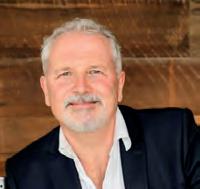
MWEC BOARD OF DIRECTORS

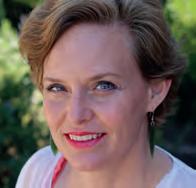
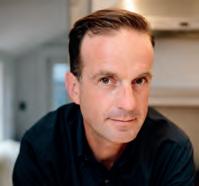
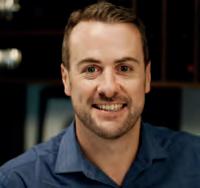
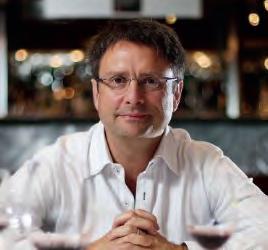
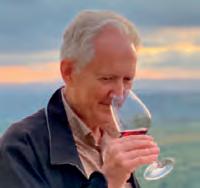
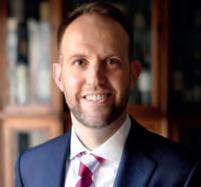
EX-OFFICIO
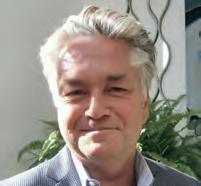
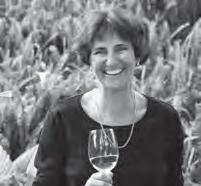
INVESTMENT OFFICERS
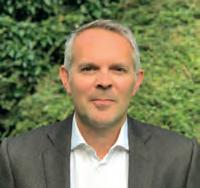
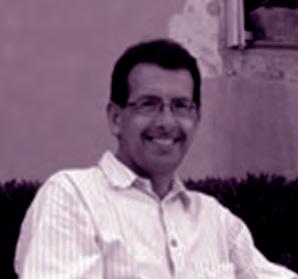
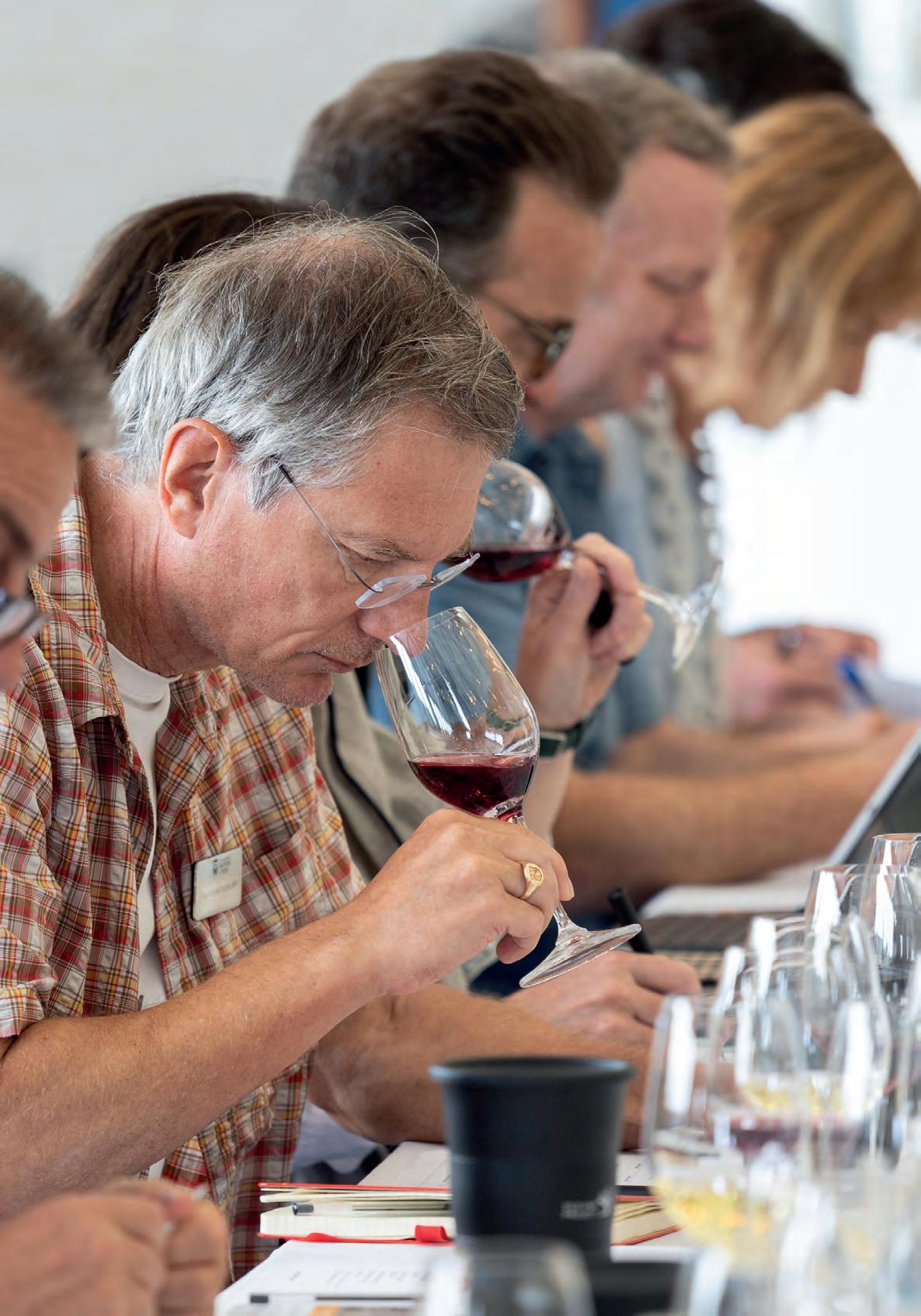
OBITUARIES
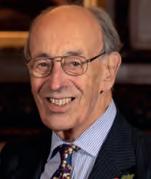
PATRICK GRUBB MW
17 May 1932 - 23 March 2024
Patrick Grubb passed the MW exam in 1958 aged 26, the youngest to have attained the title by that time. Respected and recognised by his colleagues, Patrick was chair of the education committee, then chair of the IMW 1976-77 and in 2018 enjoyed his 60-year MW celebration at Vintner’s Hall. During his career he was also selected for membership of numerous wine fraternities including La Commanderie du Bontemps de Medoc et des Graves, La Jurade de Saint-Emilion, and La Confrérie St. Etienne. In 1984 he was also inducted into the Confraria do Vinho do Porto as an Honorary Confrade and Cavaleiro (or Knight), having been proposed as a member by Quinta do Noval Vinhos, SA.
Born in Malaya, the son of a rubber planter, Patrick attended Wellington College in Berkshire before entering the wine industry in 1952, commencing a 76-year love affair with wine. His first experience was in Bordeaux, as ‘Stage’ with the prominent French wine shipping company Sichel & Co. His first role included him picking grapes alongside Corsican migrant workers, with some of the more roguish workers knife-fighting around the campfires in the evenings. It was here that Patrick became truly fluent in French, a skill that served him well throughout his career.
On returning to England, he began his lengthy career with Hedges & Butler in London and then Hay & Son in Sheffield. Hay & Son were subsequently acquired by JLP Lebegue & Co, where Patrick remained for a decade and rose to deputy managing director. During this time, in addition to having already been commissioned during National Service, he was also commissioned into the Honourable Artillery Company in 1954, which then became a venue for many of his Madeira tastings in later life.
In 1973 he was invited to join Sotheby, Park & Burnett (Sotheby’s) as director and head of their wine department. It was whilst at Sotheby’s that he was first approached to be the chief auctioneer for the then embryonic Nederburg wine auction in South Africa, which he continued to enjoy working with for the next 33 years. During this time Patrick also established and sponsored a bursary programme for young black South Africans entering the wine industry to study wine making abroad, principally in France. He also led auctions in Sonoma County, California and in Boston, Maine, as well as charity auctions in Grand Cayman, for Docklands Settlements in London, and numerous others.
On leaving Sotheby’s in 1986 Patrick joined Fine Vintage Wines in Sloane Street, London, and in 1987 Patrick moved with his family to Oxfordshire where he established Patrick Grubb Selections, which he ran until his retirement aged 82, and where he imported French, Californian, New Zealand, and South African wines. Most of all, however, and perhaps the specialty for which he became most known, was his focus on Madeira – an enduring passion of his.
Throughout his life Patrick was known for his gentility, kindness, generosity, and chivalrous nature, with his daughter-in-law even nicknaming him the “walking honeypot” because of his warm, sweet and kind nature.
Patrick is survived by his wife, Jennie, and two sons, Hugo and Harry.
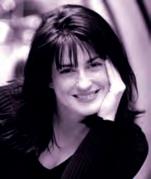
JEAN REILLY MW
1 October 1965 - 2 February 2024
Jean became a Master of Wine in 2010, just the fifth American woman to earn the coveted title at the time. Jean was an event host, public speaker, educator and a consultant to wine collectors with offices in New York and Orlando. She travelled to over 60 wine regions across four continents and ran the purchasing operations for prestigious wine retailers such as Morrell & Co in Manhattan and JJ Buckley in California. Jean was also a dedicated mentor to many MW students over the years. She worked harvest both in Burgundy (Domaine de la Vougeraie) and in New Zealand (Sileni).
Jean shared her passion for wine on television and radio and with readers of magazines such as Fortune, Wine Enthusiast and American Airlines’ Latitudes. Outside of wine, Jean was also a professional skydiver, having completed over 1000 jumps. Without a doubt Jean lived life to the fullest, right up to the very end.
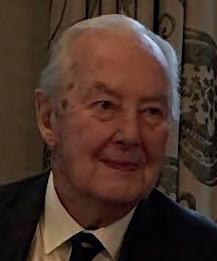
JOHNNIE PATRICK MW
24 January 1929 - 13 November 2023
Johnnie passed the Master of Wine exam in 1965 and served 58 years as a member. He spent 42 years of his career with IDV (International Distillers & Vintners) and was first responsible for wine and spirit producing companies in the UK and Europe before becoming the assistant director with responsibilities for overseas companies in the North American, African and Australasian continents. Johnnie had an extensive knowledge of Bordeaux wines, and a particular fondness for Chateau Loudenne (Haut Medoc) which he visited more than a hundred times.
Johnnie was an active member of the Institute and served as Chair of the Institute in 1991. He was also a director of the WSET between 1997 and 2002 and was delighted to appoint Ian Harris as CEO in 2002. In addition to his wine credentials, Johnnie was a Liveryman of the Worshipful Company of Distillers and a life-long J&B Rare Scotch whisky drinker.
Johnnie was a true gentleman and inspired huge loyalty in those who worked with him. It was very fitting that Paul Brandon gave the eulogy at Johnnie’s funeral. Paul, now a Deacon, worked for Johnnie in the 1980’s when he was the local MD in Kenya for IDV.
Above all, Johnnie was a family man, and he ranked his sixty-eight-year marriage to his wonderful wife, Jennie, as his greatest achievement. She pre-deceased him by only two months. They leave behind three children, seven grandchildren and three greatgrandchildren.
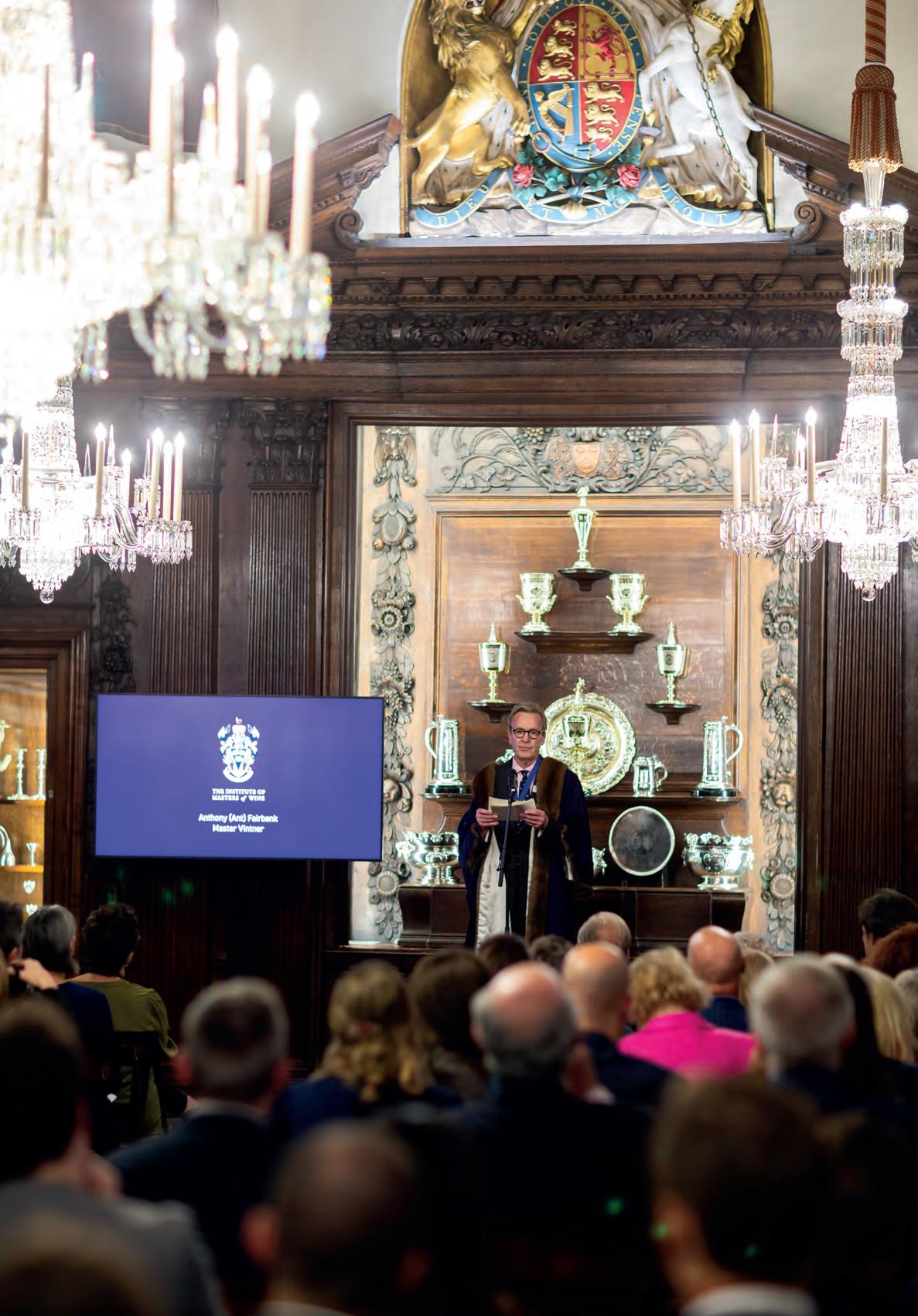
Awards Ceremony, London
PRINCIPAL SUPPORTERS
• Austrian Wine
• AXA Millésimes
• Champagne Bollinger
MAJOR SUPPORTERS
• Deloitte & Touche LLP
• E. & J. Gallo Winery
• German Wine Institute/Deutsche Weininstitut
• Jackson Family Wines
• Octavian Wine Services
SUPPORTERS
• Bottlebooks
• Le Conseil des Grands Crus Classés en 1855
• Casella Family Brands
• Diam Bouchage
• D.O. Cava
• González Byass
• Grupo Rioja
• Hatch Mansfield
• Hillebrand Gori
• Istituto Grandi Marchi
• Lallemand
• Constellation Brands
• VSPT Wine Group
• Riedel
• Taransaud Tonnellerie
• Washington State Wine Commission
• Wine Australia
• Wine Institute/California Wines
• MACH Flynt, Inc./DC Flynt MW Selections
• Maison Louis Latour
• Moët Hennessy Wine Estates
• 67 Pall Mall
• Primum Familiae Vini
• Südtirol/Alto Adige Wines
• Swiss Wine
• Symington Family Estates
• Trentodoc
• VDP.Die Prädikatsweingüter
• Waitrose & Partners
RESEARCH & INDUSTRY ASSOCIATES
• Areni Global
• Australian Wine Research Institute
• Catena Institute of Wine
FOUNDING PARTNER
• The Vintners’ Company
• Hochschule Geisenheim University
• Wine in Moderation
The Institute of Masters of Wine 6 Riverlight Quay Kirtling Street London SW11 8EA +44 (0)20 7383 9130 info@mastersofwine.org
facebook.com/mastersofwine @mastersofwine
instagram.com/mastersofwine
linkedin.com/mastersofwine
www.mastersofwine.org
